









Gaming America evaluates the hand Tribes are playing from. In California and across the US, can Tribal and commercial operators work in tandem, or is the divide too great?

CASINO REVIEWS: Gaming America continues touring Indiana's properties
OPERATOR POV: We speak to Ocean Casino, Fanatics and Soloviev Group
TOP FIVE: Oliver Lovat gives us his five properties that changed Las Vegas






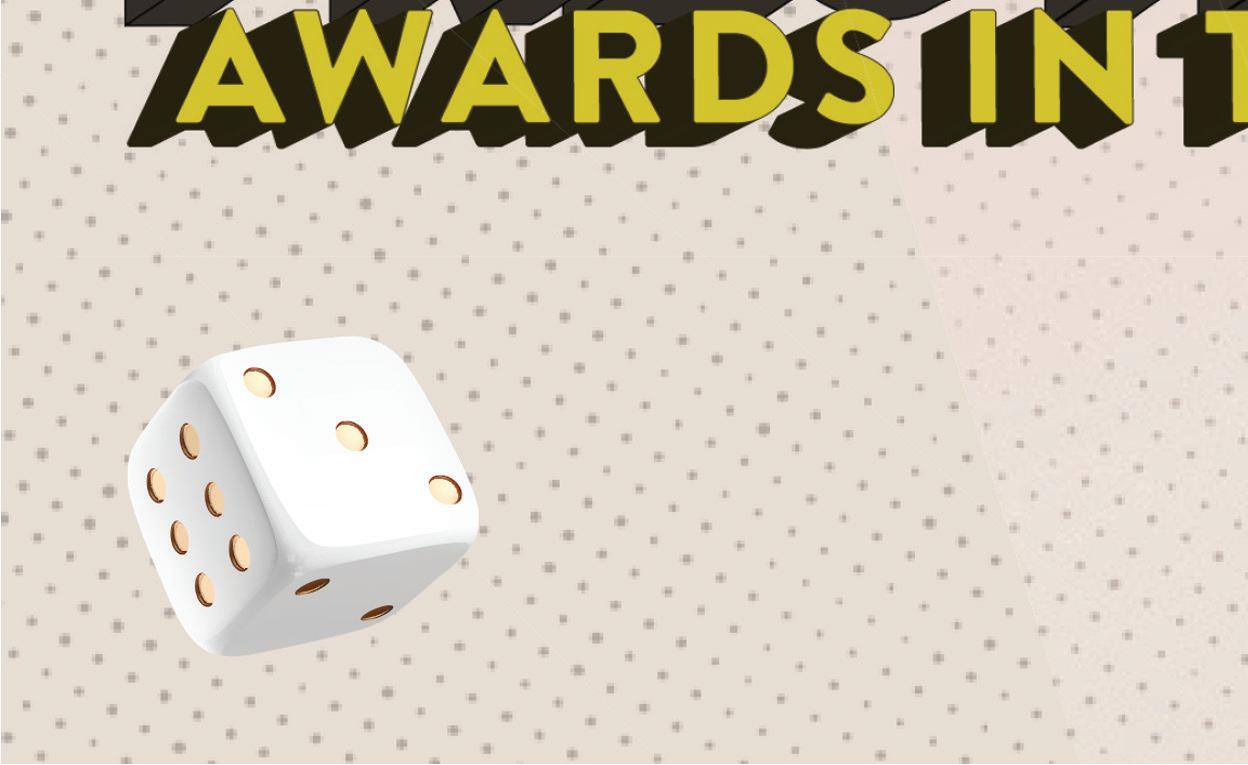







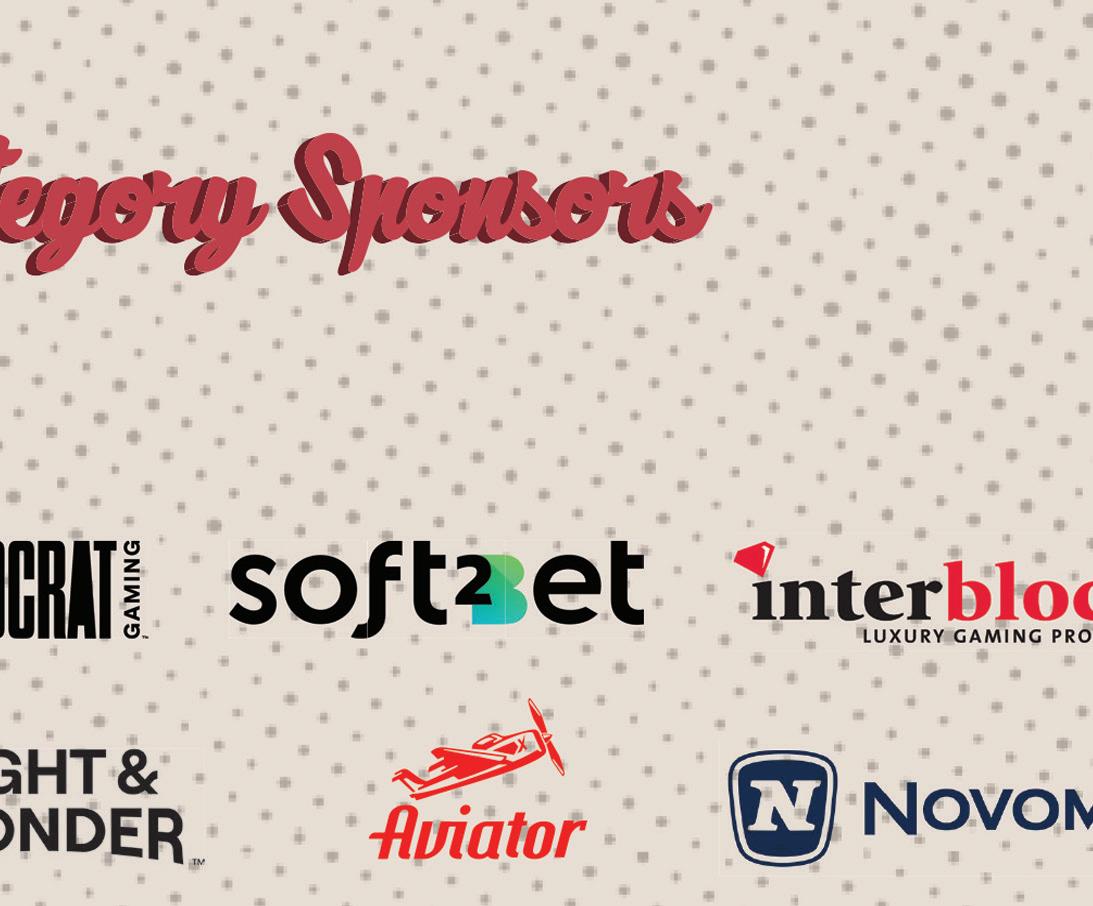





COO, EDITOR IN CHIEF
Julian Perry
CONTRIBUTING EDITOR
Tim Poole
STAFF WRITERS
Laura Mack, Brian Joseph, Kirk Geller, Beth Turner, Ciaran McLoughlin, Will Underwood
LEAD DESIGNER
Olesya Adamska
DESIGNERS
Claudia Astorino, Callum Flett, Gabriela Baleva
JUNIOR DESIGNER
Medina Mammadkhanova
ILLUSTRATOR
Maria Yanchovichina
MARKETING & EVENTS MANAGER
Mariya Savova
FINANCE AND ADMINISTRATION ASSISTANT
Dhruvika Patel
PUBLISHING ASSISTANT
Rachel Worth
IT MANAGER
Tom Powling
COMMERCIAL DIRECTOR
Deepak Malkani
Deepak@playerspublishing.com
Tel: +44 (0)207 729 6279
SENIOR U.S. BUSINESS DEVELOPMENT MANAGER
Aaron Harvey
Aaron.Harvey@playerspublishing.com Tel: +1 702 425 7818
SENIOR ACCOUNT MANAGER
Michael Juqula
Michael.Juqula@gamblinginsider.com
Tel: +44 (0)203 487 0498
ACCOUNT MANAGERS
William Aderele
William.Aderele@gamblinginsider.com Tel: +44 (0)207 739 2062
Irina Litvinova
Irina.Litvinova@gamblinginsider.com
Tel: +44 (0)207 613 5863
Serena Kwong
Serena.Kwong@gamblinginsider.com
Tel: +44 (0)203 435 5628
Max NGarry
Max.Ngarry@gamblinginsider.com Tel: +44 (0) 207 7290643
AWARDS SPONSORSHIP MANAGER
Michelle Pugh
Michelle.Pugh@globalgamingawards.com Tel: +44 (0)207 360 7590
CREDIT MANAGER
Rachel Voit
WITH THANKS TO:
Horseshoe Indianapolis, Four Winds Sou th Bend, Ocean Casino Resort, Scot McClintic, Lazarus Legal, Victor Rocha, James Siva, Rikki Tanenbaum, Oliver Lovat, Andrew Burke, Mike Brennan, Michael Hershman, Fabio Kujawski, Paul Gordon, Je Baldi, Matthew Morgan, Erica Tessier, Justin Culp, Bluberi, AGS, Incredible Technologies and SuzoHapp. Gaming America magazine ISSN 2632-766X


Within the states of Florida and California, Tribal gaming finds itself in a fascinating position. In Florida, only the Seminole Tribe, and Hard Rock, can provide mobile sports betting, with continued legal challenges falling well short of credibly challenging this state of play.
In California, meanwhile, the Tribes hold all the power – a truth commercial operators like FanDuel and DraftKings know all too well. After failing to get laws passed to allow mobile sports betting in the Golden State in 2022, FanDuel CEO Amy Howe admitted at IGA 2024 that the Tribes are in pole position; they must be respected by any new brands hoping to make Californian sports betting a reality.
Therein lies the central philosophical theme, though, and one the cover feature of this issue aims to explore. Whether it’s Florida, California or anywhere else in the US – and whether its sports betting, online casino or any other vertical – Tribes now will be facing choices in the next few months that could lead to irreversible paths either way.
In states like California, where Tribes hold all the cards, should they protect their current status and existing power, fending off the risk of commercial cannibalization?
Or should that viewpoint be considered short-sighted? Could Tribes and commercial operators – together – partner up to increase the overall size of the market, and therefore both benefit?
Only recently, the National Indian Gaming Commission announced record-breaking Tribal gaming revenue numbers for 2023: $41.9bn nationwide. But that number only bears true meaning with wider context: commercial US gaming revenue for the same year totaled $66.5bn.
The equation for Tribes to determine is whether their $41.9bn will increase in the long run with increased collaboration, or whether their share falls and only the commercial sector grows.
Many Tribal executives, including some outspoken panelists at IGA earlier this year, are firmly on the ‘protect’ side, buoyantly dictating terms and declaring that any commercial brands will have to follow Tribal rules.
And this is an understandable position. Tribal gaming has not only built a prestigious reputation based on heritage and tradition, it is a financial stronghold that creates gaming proceeds to help fund the wider foundations of Tribal existence. That is especially true in Florida and California.
For years, these two states have been discussed as potential game-changers for US betting. It is no surprise, then, that Tribes are right at the heart of the discussion in both.
JULIAN PERRY, COO, Editor-in-Chief


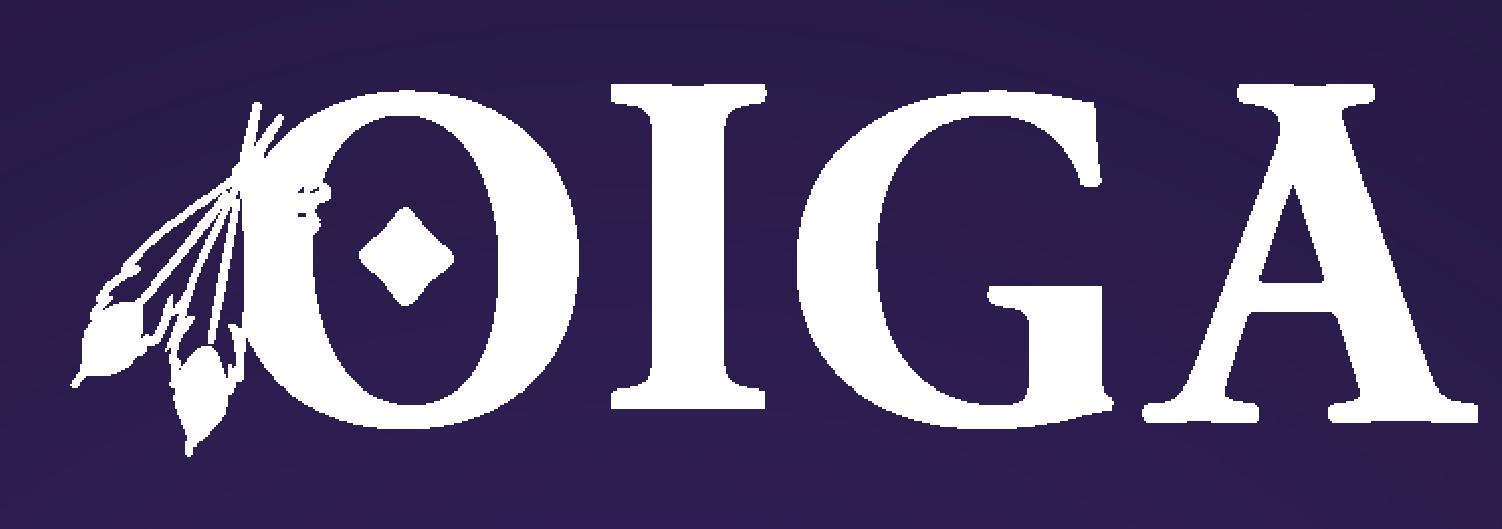

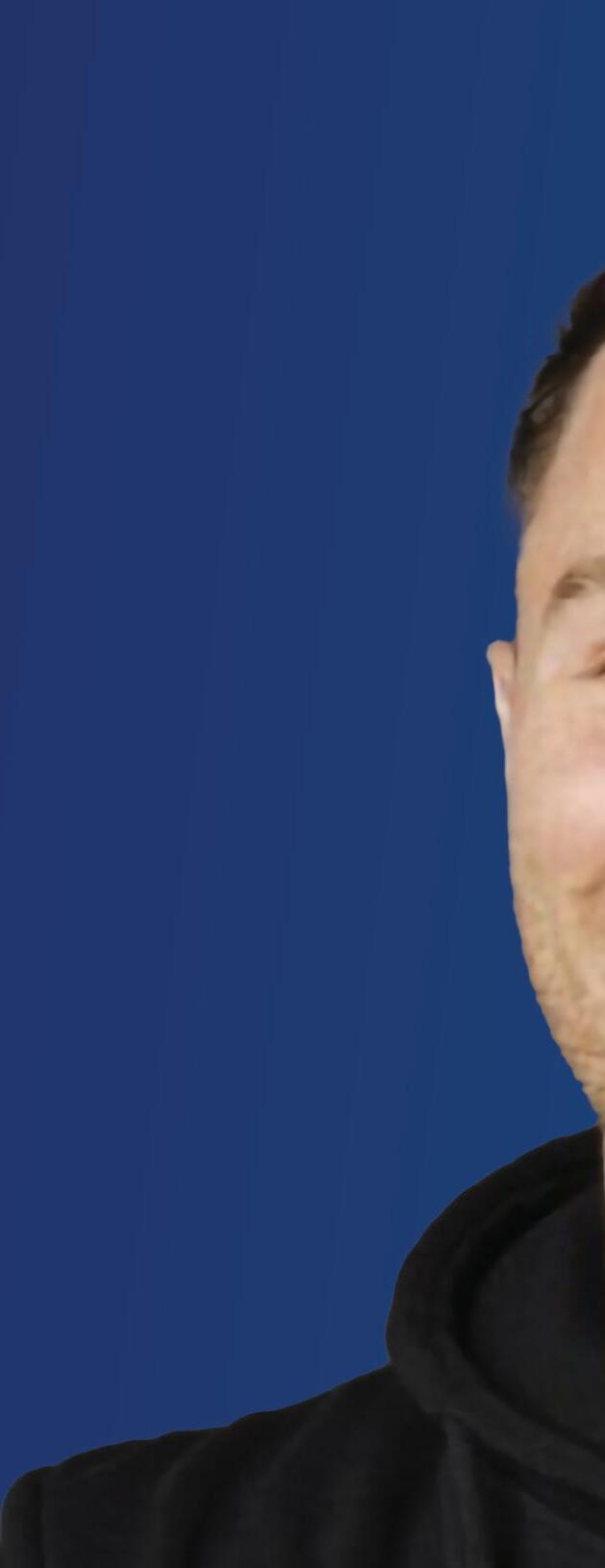
8
10
12

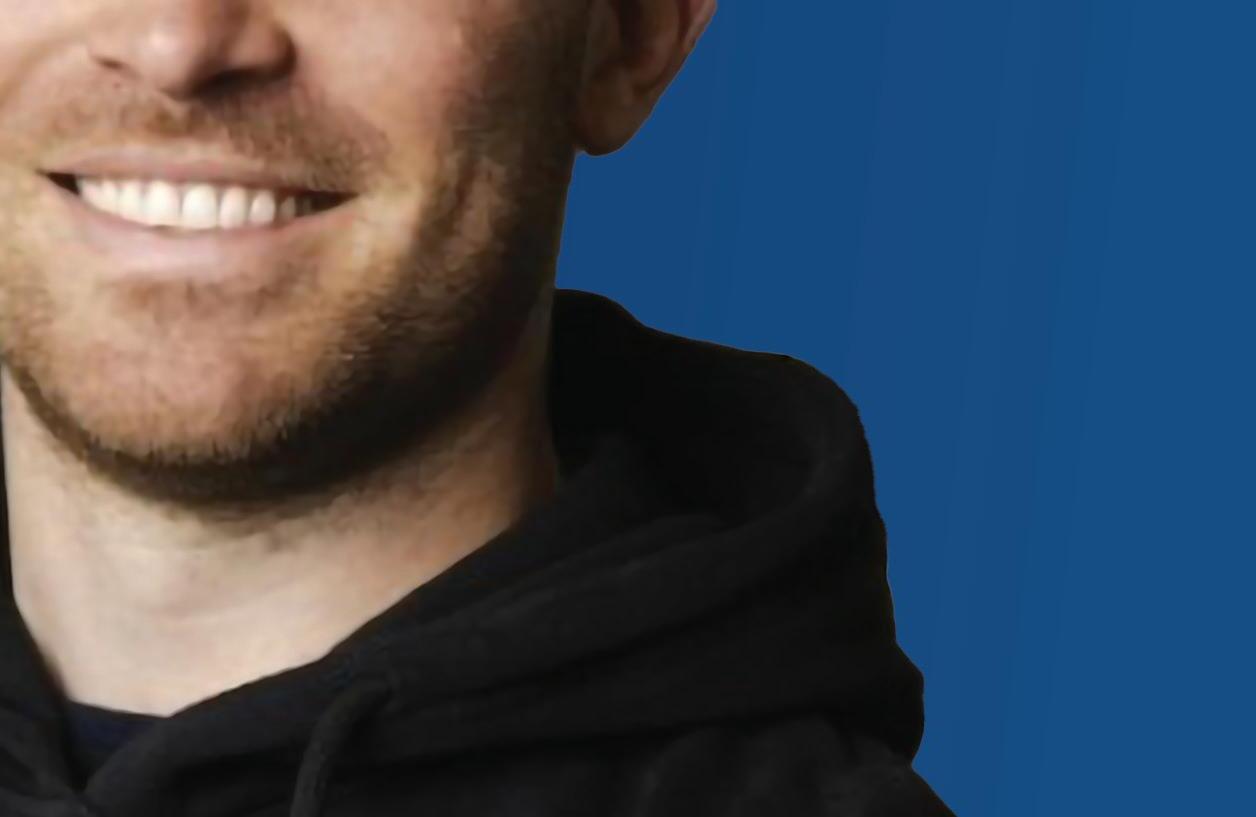
WHICH US STADIUMS HAVE SPORTSBOOKS?
Given the popularity of sports wagering across the US, both online and retail, Gaming America looks at some of America’s in-stadium sportsbooks.
TIMELINE: PASPA OVERTURNEDSIX YEARS ON
Just how much has US sports betting progressed since PASPA was overturned?
GLOBAL GAMING AWARDS
We preview the upcoming Global Gaming Awards Americas in Las Vegas this October.
14 FROM THE TOP
Resorts World and Fontainebleau are offering something new for Vegas visitors...
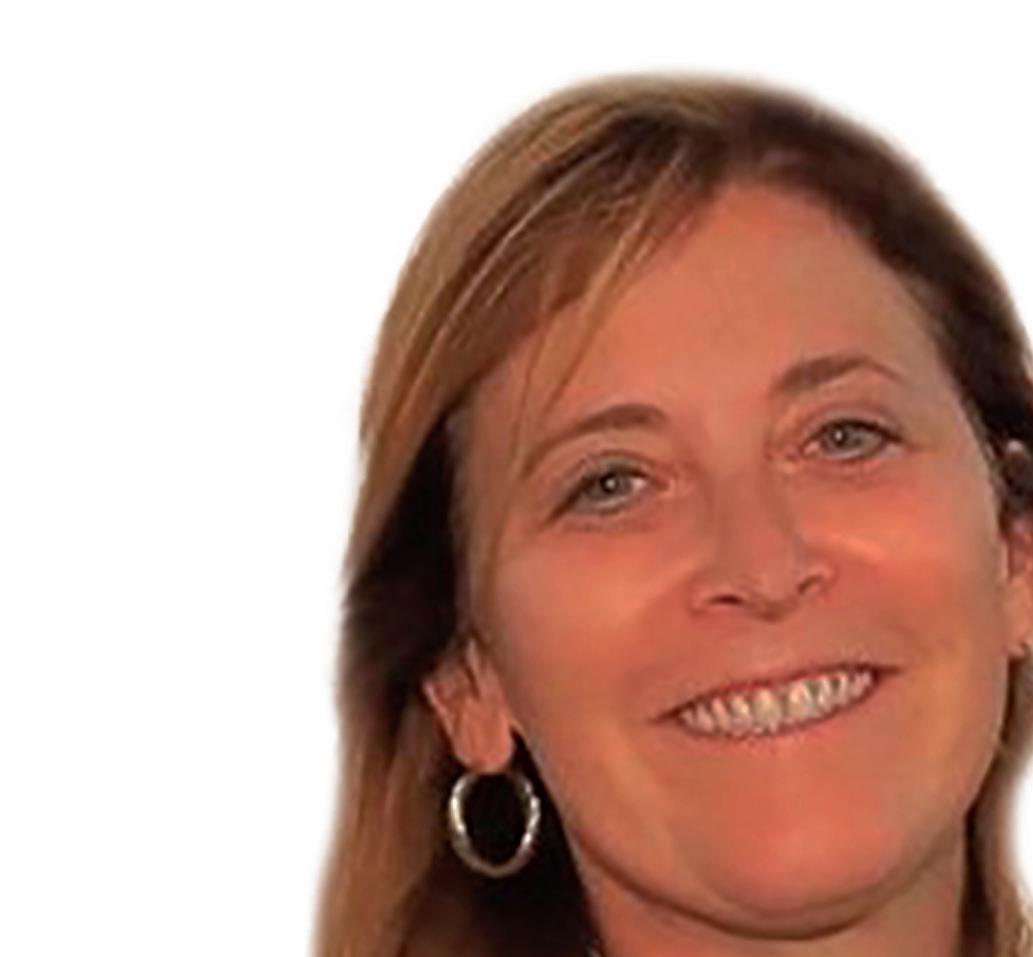



18 LET THE GAMES BEGIN! HORSESHOE INDIANAPOLIS VS. FOUR WINDS SOUTH BEND
Gaming America’s Laura Mack visited two more Indiana casinos to find which one will emerge as the top pick for this casino face off round.
22
OCEAN CASINO: KEEPING THE GUESTS FRONT & CENTER
Gaming America talks to Ocean Casino about its latest developments, new offerings and its deeply embedded New Jersey roots.
26
HEDGING A GARDEN STATE BET
Gaming America spoke with Fanatics Betting and Gaming CPO Scot McClintic about the journey since striking the PointsBet deal, the operator’s move into New Jersey and Fanatics’ standing in the sports betting industry.
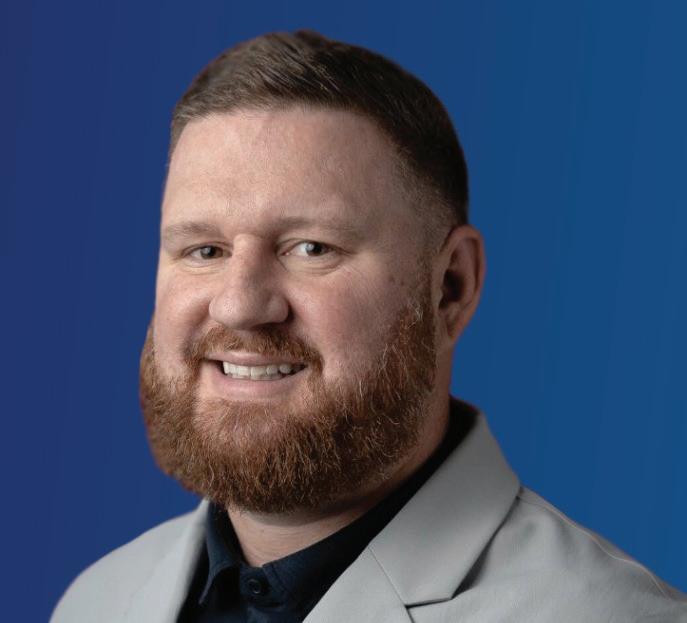
The team at Lazarus Legal walk us through other options, including some US ones. 32 COVER FEATURE: PROTECT OR PARTNER?
Can Tribal and commercial gaming see eye to eye?
Using California’s Proposition 27 as a case study, Gaming America explores different perspectives. 38 THE FIVE PROPERTIES THAT MADE LAS VEGAS
Oliver Lovat, Gaming America regular, Las Vegas expert and historian, and Denstone Group CEO, looks back at some of Vegas’ most groundbreaking properties.
Gaming America spoke with Bluberi CEO Andrew Burke and Bluberi CPO Mike Brennan on the company’s journey since Burke took over the role and how the new office space represents the company’s past and future.



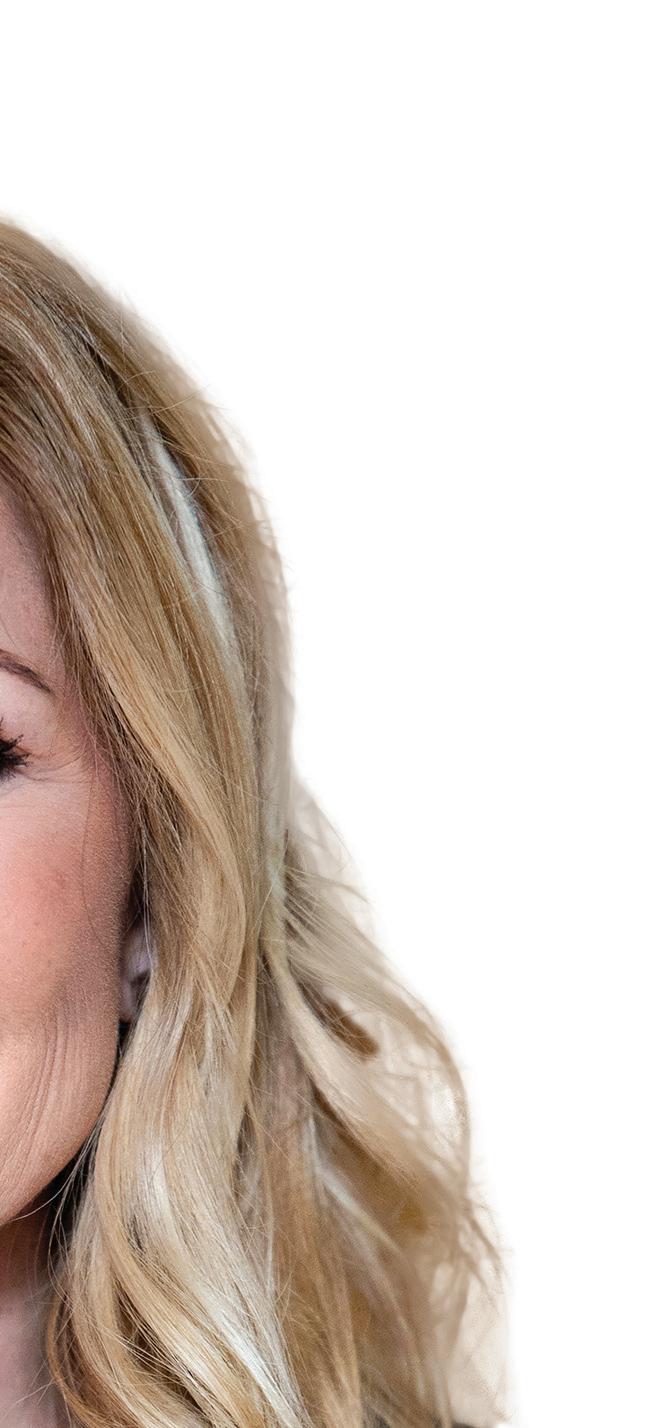

46
We speak to Soloviev Group CEO Michael Hershmann about the New York casino licensing process, which is subject to delays...
48 TAKING OFF... PRIVATELY
Going public used to be considered the zenith for gaming (or indeed any) start-ups. Not anymore.
52 GAMING IN BRAZIL: DEFINITELY, MAYBE
Mattos Filho’s Fabio Kujawski talks to Gaming America about the uncertainty surrounding Brazil’s roadmap to regulation and the need for a singular gaming authority.
56
Industry experts answer Gaming America’s burning questions on all things related to Tribal operators and player loyalty programs.
62
Gaming America looks at the newest additions to the market.
Given the proliferation of sports wagering across the US, Gaming America looks at where some of America’s in-stadium sportsbooks have made their mark.






At Allegiant Stadium in Las Vegas, NV, fans can enjoy the MGM Club, where they can use the BetMGM app to place wagers. The Las Vegas Raiders and MGM Resorts struck a deal in September 2020, naming MGM as the official betting partner of the football team.

Arizona hosts four different teams in three stadiums that contain a sportsbook. BetMGM partnered with the Cardinals to give State Farm Stadium visitors a place to wager in September 2022. A year prior, The Suns and Mercury named FanDuel as its official be�ng sponsor and opened a sportsbook in the Footprint Center in September 2021. Finally, the Diamondbacks brought a sportsbook to Chase Field in June 2022 by partnering with Caesars.


Caesars partnered with the Cleveland Cavaliers, opening a sportsbook in the Rocket Mortgage Fieldhouse in early 2023. The Cavaliers isn’t the only team to host a sportsbook in Ohio, however, as the Cleveland Guardians and Fana�cs introduced a sportsbook into Progressive Field in August of 2023.
The Capitals, Wizards and Mys�cs all named William Hill, operated by Caesars, as their official betting sponsor and currently have a William Hill sportsbook located inside Capital One Arena, which opened in May 2021. In 2023, the Commanders struck a deal with Fana�cs to build a Fana�cs sportsbook inside FedEx Field. Finally, BetMGM and the Na�onals partnered to open a sportsbook at Nationals Park in 2022.











Illinois currently hosts mul�ple stadiums with sportsbooks as well, located in the city of Chicago. The Cubs partnered with Dra�Kings in 2020, opening a sportsbook at Wrigley Field in June 2023. Before that partnership, both the Bulls and Blackhawks agreed to a deal with FanDuel to construct a sportsbook inside the United Center in October 2022.

















The New York Mets came to an agreement with Caesars in April 2022, naming Caesars Sportsbook as the official be�ng partner of the baseball team. During the 2022 Major League Baseball season, the Mets opened a Caesars Sportsbook lounge and club space inside Ci� Field in Flushing, NY.
On 14 May 2018, gaming history was made as PASPA was overturned. Just how much has US sports betting progressed since then?
On May 14, the US Supreme Court judicially overturns PASPA after Murphy v. NCAA. The decision means states are now free to legalize sports betting individually. Following this decision, states including Delaware, Mississippi, New Jersey and West Virginia establish legalized sports betting for residents.
FanDuel becomes the first originally online sports betting company to open a brick-and-mortar sportsbook, introducing its first physical location at the Meadowlands Racetrack in East Rutherford, NJ.
MGM Resorts and Entain reach a deal to create BetMGM. As the online sportsbook launched, BetMGM establishes partnerships with several US sports leagues such as the MLB, NBA and NHL, becoming an official betting sponsor.

Tennessee and Illinois choose to sign sports betting into law. Michigan and Colorado legalize sports betting as well towards the end of 2019.
DraftKings becomes the first company to offer legal online and mobile sports betting in New Jersey with its launch of the DraftKings sportsbook. Within nine months of launching, DraftKings reports 8.5x revenue growth year-overyear for New Jersey.


Maryland voters approve a ballot allowing for legalized sports betting in the state. South Dakota, Washington and Virginia sign sports betting into law, surpassing 20 states to do so in the US at the time.


BetMGM partners with the Las Vegas Raiders to open the BetMGM Lounge in Allegiant Stadium.





New York signs into law sports betting for residents, Connecticut follows soon after. Arizona, Nebraska, Ohio, Wyoming, Wisconsin and Louisiana legalize sports betting, while Florida attempts to but the decision is overturned in less than a month.










Caesars opens the first sportsbook inside a pro sports venue with its Capital One Arena partnership in Washington DC.
Kansas, Maine and Massachusetts legalize sports betting for residents, bringing the total to over 30 states in the US.
Penn Entertainment and ESPN reach a deal to rebrand the Barstool sportsbook into ESPN Bet. The market share for sports betting operators at thetime of ESPN Bet’s launch were: FanDuel - 39.28%, DraftKings - 34.11%, BetMGM - 9.41% and Caesars/William Hill - 6.57%.
Caesars completes acquisition of Michigan iGaming operations from Wynn Resorts. By this point, the market is led by a handful of brands, with many pulling back, or out altogether, such as Kindred Group, WynnBet, Fubo, 888, MaximBet and Fox Bet.




DraftKings reports full-year revenue of $2.24bn, nearly a 73% increase year-over-year. Fubo Sportsbook reaches a deal with the New York Jets to open a sportsbook inside MetLife Stadium in New Jersey, but later shutters its brand as the market heats up.






Fanatics Betting and Gaming reaches a deal to acquire PointsBet for $225m, giving Fanatics access to PointsBet’s pre-existing 14 states in the US.













Fanatics Betting and Gaming completes its acquisition of PointsBet by going live in New Jersey, later launching in each state PointsBet had previously operated in. The company goes on to open in Wyoming, reaching an approximate 95% availability in addressable markets across the US.





















































































The Global Gaming Awards Asia-Pacific were held in Manila on June 4, with winners being celebrated for their accomplishments within the gaming industry. But many operators, and several of those who also triumphed in the Philippines, will now turn their attention towards the Global Gaming Awards Americas, held in Las Vegas on October 7.


































































































































SPONSORED BY

Self-nominations for the Awards have now closed, with the Shortlist set to be finalized on August 1 when companies will be notified of all nominations. The companies and reasons will become available once the Shortlist is revealed to the public on September 6.
Mariya Savova, Global Gaming Awards Event Manager, says, “We are in the


















With the Global Gaming Awards Asia-Pacific winners having been announced in Manila, American companies will look to continue their success into the October ceremony.
process of reviewing all nominations, submitted by companies, and I have to say every year it gets harder and harder to narrow down the Shortlist. Not only do we receive a larger number of nominations but companies’ submissions get stronger with each passing year.
“The gaming industry, particularly in the US, is moving at phenomenal speed.
Both operators and suppliers continue to heavily invest in developing the best technology to ensure the best possible customer experience and the Shortlist will really highlight that.
“There were a few surprises among the winners at our Awards for Asia-Pacific and I expect the same thing to happen at our Awards in Las Vegas. Even last year, the companies that came in second and third across the categories were very close to the winners in terms of number of votes received. The competition is fierce!”
After the Shortlist is revealed, the Judging Panel will be asked to cast their votes for a winner and a runner-up across all categories, but will be excluded from voting in categories where they have a conflict of interest. The voting process is independently adjudicated by KPMG in the Crown Dependencies.
KPMG has been the official voting adjudicator of the Global Gaming Awards Americas since the very first edition of the event in 2014. “The Awards may now be 11 years old, but what remains unchanged since day one is our approach to the voting and adjudication process,”
KPMG Global Gaming Team Partner
games and exciting features. Dragon Link takes the typical Hold & Spin method and adds an orb trigger symbol across all titles, making it easy to recognize.
Now, following its success at the Global Gaming Awards in Manila, the supplier will look to continue these achievements into Las Vegas once more. During the 2023 Global Gaming Awards Americas,








across APAC in the next 12 months.





Micky Swindale said. The winners will be revealed at a luncheon ceremony held at the Venetian Resort Las Vegas, which will be livestreamed for those who didn’t secure a table for their company at the event.







Aristocrat Gaming managed to take home multiple awards in Manila, including being named Casino Supplier of the Year and having Casino Product of the Year, with its Dragon Link series. The Dragon Link series builds off the Lightning Link platform, adding colorful Asian-themed




Aristocrat managed to win multiple awards, with victories in Land-based Product of the Year, Land-based Industry Supplier of the Year and Slot of the Year. Aristocrat products Neptune Single Stratus Sign Package and Jackpot Carnival were triumphant.
Wynn Resorts also managed to secure an Award at the Global Gaming Awards Asia-Pacific on June 4, walking away as the Corporate Social Responsibility of the Year winner. The operator released its own financial results for the first quarter of 2024, seeing revenue increases across the board for all properties. Operating revenues in the first quarter of 2024 were $1.86bn, an increase of $439.2m from the comparable quarter. The company also saw an increase in net income, going from $12.3m in Q1 2023 to $144.2m this year.





“While Asia is the bigger market in terms of revenue, there are fewer companies that have managed to successfully penetrate that market. The competition among the companies that have a presence in APAC is of course very strong, but in the US – it’s on another level.
“The Judging Panel for our Asia-Pacific Awards certainly had some difficult choices to make when casting their votes; however, the Judges for our Americas Awards will have an even tougher task. We can’t wait to share this year’s Shortlist for the Global Gaming Awards Americas and we are very much looking forward to celebrating with the industry on October 7.”
The 11th annual Global Gaming Awards Americas will recognize and reward the gaming industry’s strongest performers across the previous 12 months. These are the most prestigious and trusted Awards in the gaming industry and have garnered respect among industry heavyweights due to the strict rules and procedures put in place for voting. The Awards are powered by Gaming America and Gambling Insider.




Savova adds, “We’re so humbled by the industry’s response to our event in Manila. We’re already looking forward to seeing what companies will achieve




















In this issue's From the Top column, Gaming America explores how Resorts World and Fontainebleau are offering something new for Vegas visitors...
As other hotels continue to focus on speed, Resorts World and Fontainebleau have created fine dining and live music options for fans of a night out in Las Vegas. Sportsbooks usually paint a picture of large television screens, people yelling at players on said screens despite, what most assume, is a severe lack of an ability to hear on the players’ part, and betslips being thrown around through a cloud of smoke. It’s an intense atmosphere, one filled with broken dreams, broken parlays and the slim chance one could see a stranger hit the bet of their life. What one may not find within this atmosphere, however, is something they can recognize.
People who spend nights out recognize bars, restaurants and a sense of
entertainment. In the Resorts World and Fontainebleau hotels on the Las Vegas Strip, these locations take common aspects guests can see anywhere and deliver it in a place where sports betting remains not only prevalent, but still the focus. The hotels took sports betting and reimagined it into more of an experience, not just an atmosphere. Perhaps they were inspired by Circa's sportsbook in Downtown Las Vegas...?
Dawg House Saloon and Sportsbook in Resorts World is a 15,000-square-foot venue where guests can eat, drink, listen to live music and throw some money on the underdog to pull off an upset. Dawg House isn’t just a sportsbook; in fact it doesn’t even like to sell itself as one. It’s a place people can go to have fun,
whether they enjoy sports or not. Which, in reality, should be the whole point if thought about deeper.
“Our former President had the idea of integrating a restaurant with the sportsbook and creating a different atmosphere for customers,” Dawg House Sportsbook Supervisor Chase Johnston said. Management for Resorts World has undergone changes as well, however, which seemed to have an effect towards generating business from locals.
“For the sportsbook part to be successful, everything needs to work together. Last year there was a different General Manager who began charging $100 to stay during busy times like football season. That ruins it for locals


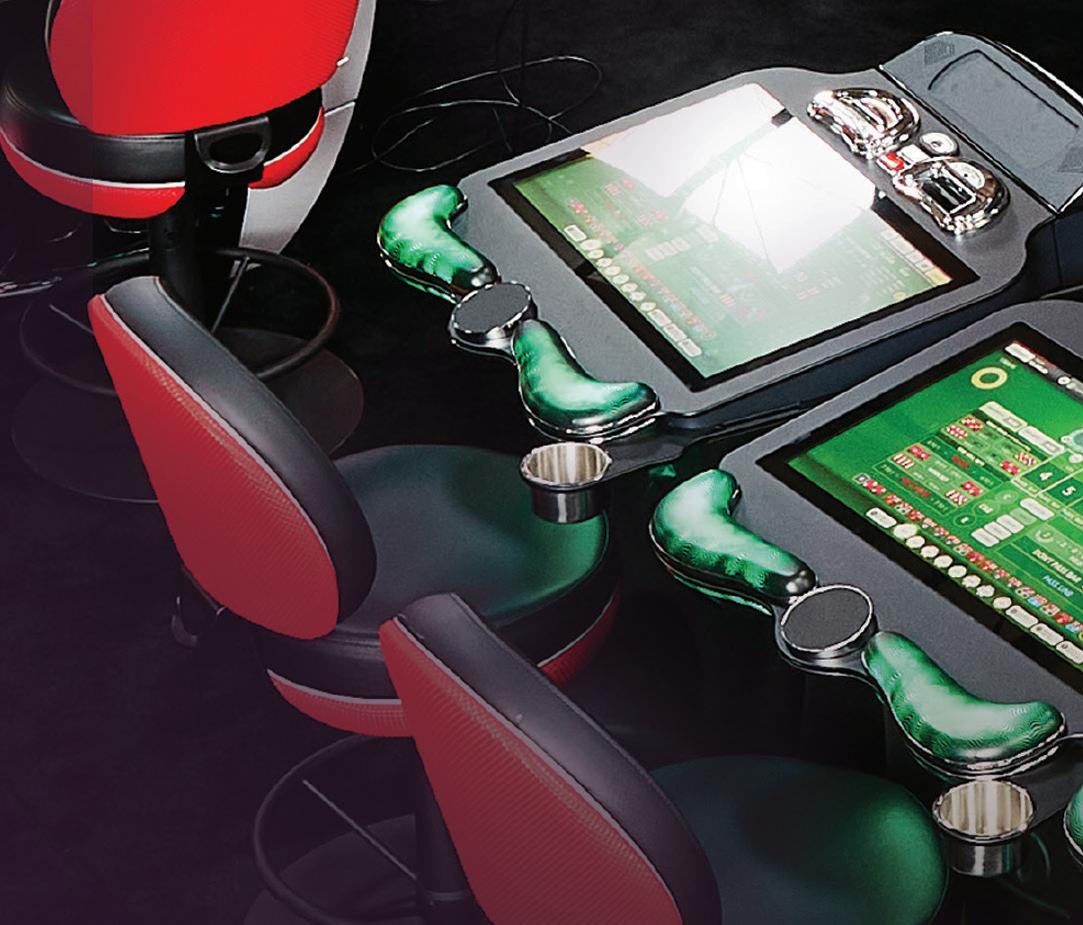

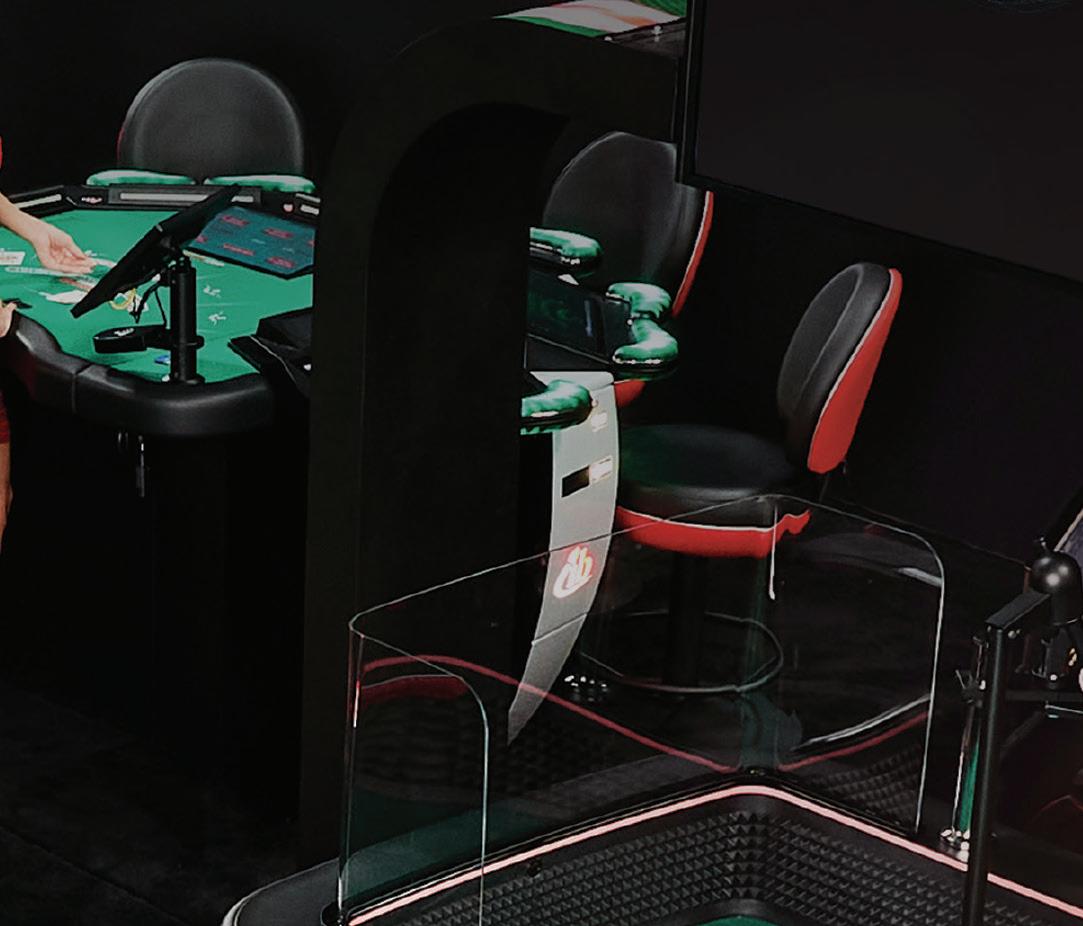

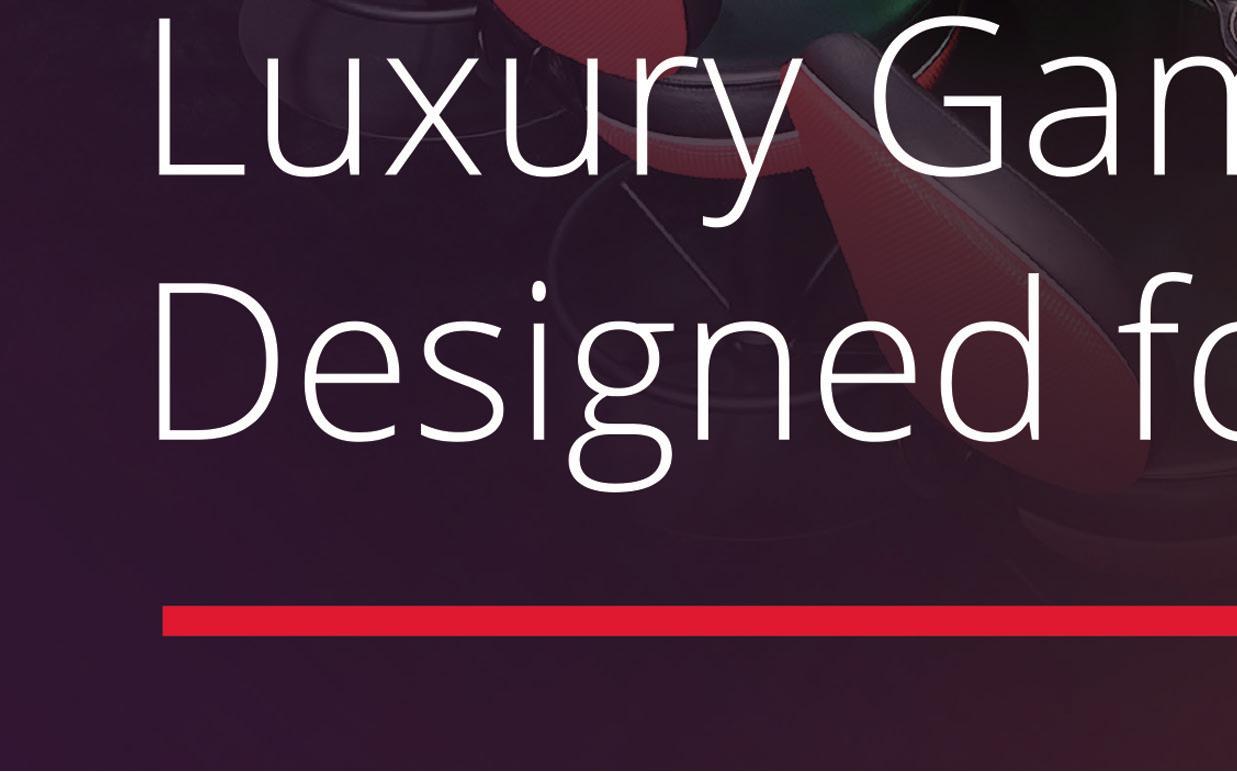


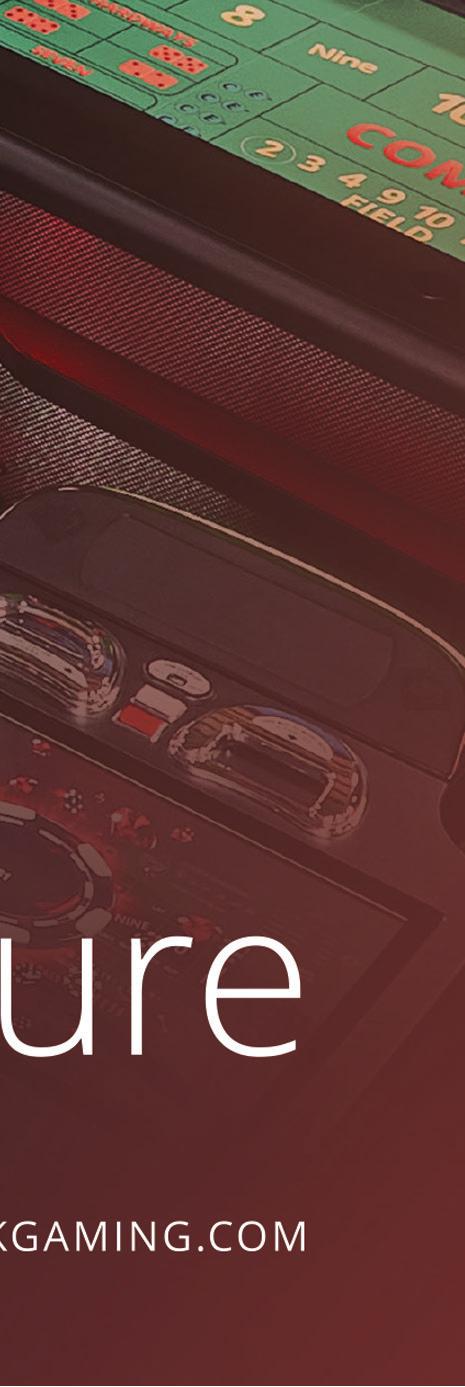
because they can go to off-strip properties and get a similar experience. But we still have locals driving down here and were slammed for March Madness this year,” Johnston said.
Despite the changes, Dawg House remains as a property that chose to go outside the box. Why create an environment only sports bettors would want to be in? Why not create something their spouses or friends would enjoy? If John Doe can dance with his wife to a live country band, order dinner with a couple drinks and then place a quick bet before the big game starts, that sounds like a night out, not a trip to the sportsbook. Because a trip to the sportsbook is quick, it’s “I’ll just be a second.” Dawg House doesn’t want its guests’ experience to be quick, because quick is limited. And limited means less bets. “If you want the ability to actually be able to hang out at your sportsbook, this is the best experience. I don’t think some sportsbooks are necessarily designed to do that like ours is,” Johnston said.
If someone were to offer a sportsbook the chance to have its guests stay for five hours or five minutes, the choice is obvious. Which is why hotels such as Resorts World build Dawg House, because then its consumers don’t have to watch sports, they don’t even have to know what game is on; the experience is what captivates
them. Creating this type of welcoming environment can lead to discovering an entirely different scene of gamblers. It’s a better way of building interest in a sportsbook without turning off potential consumers by shoving mobile betting advertisements in their face.
The Tavern at Fontainebleau creates an elegant dining experience while broadcasting live sports in a comfortable setting with lounge chairs and numerous TVs. Guests can dine at one of the premier restaurants in the Fontainebleau while also maneuvering over to relax after a meal and enjoy the biggest sporting events. The idea isn’t to create an experience where guests have to separate if they see a respective hotel’s sportsbook, but instead to have families, couples or any group stay together to enjoy an evening that also happens to include sports. Ultimately, the more people a sportsbook attracts and the longer they stay, the more bets can be placed.
Having convenience and speed is great if hotels and casinos want someone to place a bet and move on, but Resorts World and Fontainebleau differ. The aforementioned Circa Sportsbook, located off-Strip, has become one of the most popular to visit due to its sheer size and accommodations. The Oyo hotel, formerly Hooters, completely
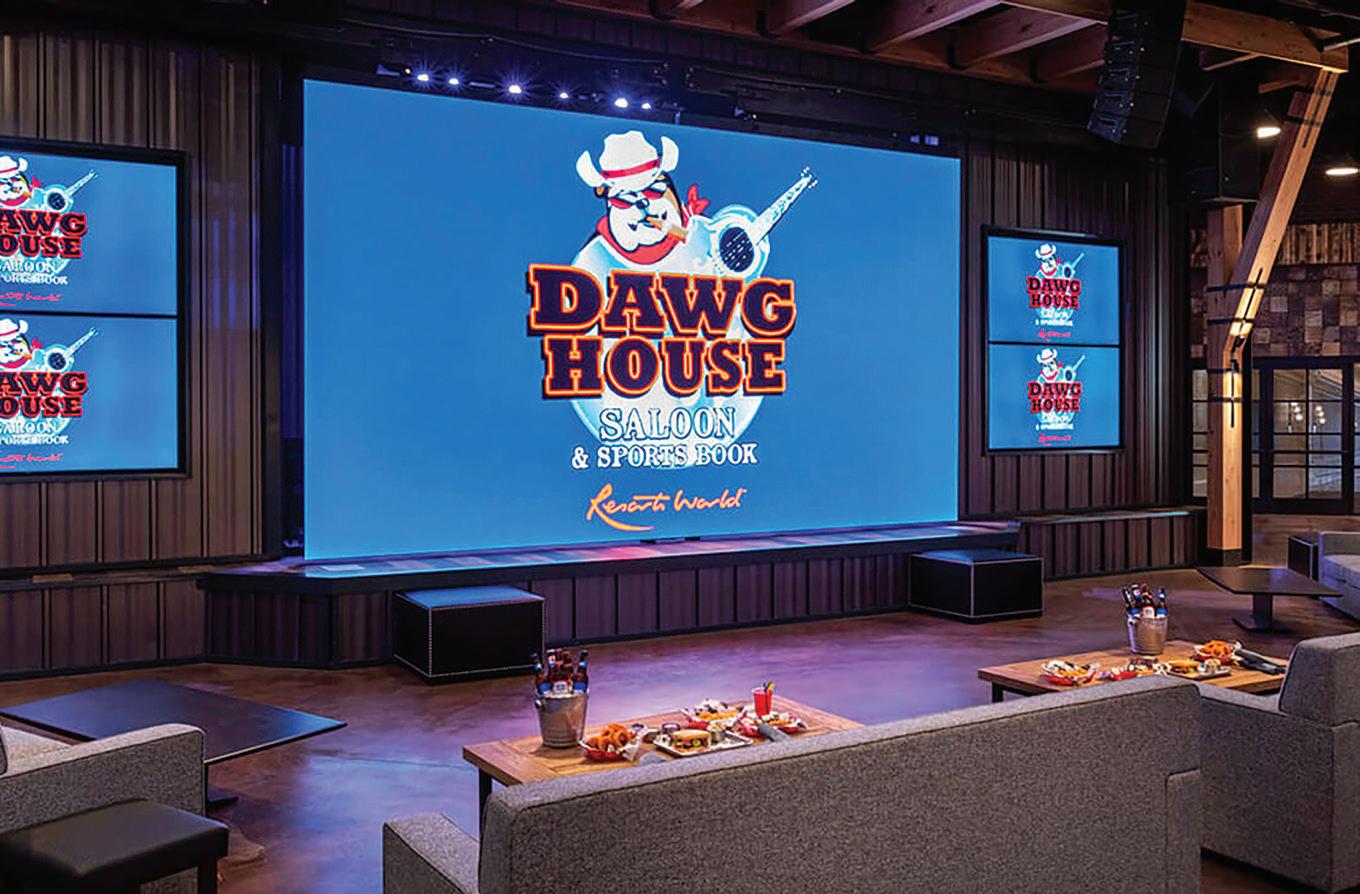
revamped its sportsbook to feature a bar and restaurant scene as well.
Places like the New York, New York (NYNY) hotel, which have highly functioning sportsbooks, may not see a need to change what already works. It makes money, has restaurants around the corner if one chooses and someone will always come to take a drink order (eventually). It’s difficult not to notice the difference in customer retention, though, having seen each sportsbook in person.
“Our space definitely does help keep customers around, keep them coming up to kiosks or to our stands and placing bets. If we didn’t have this much space and entertainment, they would probably just place their bets and then head up to their room. Now they stay, go to the bar, watch the game and stick around to place bets on the next game as well,” Johnston said.
At NYNY, most people walk up to a touchscreen booth, place a bet and then typically walk out the casino door right to the Strip, while having to brush away employees asking if they are signed up on a betting platform. In Dawg House and The Tavern, people don’t walk out the door after. They stay, order food and drinks, spend money and enjoy themselves. Their significant others walk up to the betting stations with them and ask questions instead of standing by the door with impatience over how long it takes to place a bet.
This isn’t an attempt to say any one sportsbook is going about business the wrong way. Bettors will always exist, sports will always exist and the two will continue to interweave with each other for an eternity. The idea of what a sportsbook can be is changing, however, and the days of consumers seeing it as a one-stop shop may be ending. The more hotels continue to offer elevated experiences and recognizable atmospheres within sportsbooks, ones that purely focus on the bet could be found obsolete, especially on the Las Vegas strip where many are in close proximity to one another.


















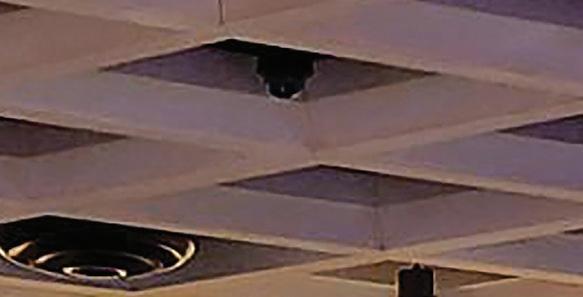
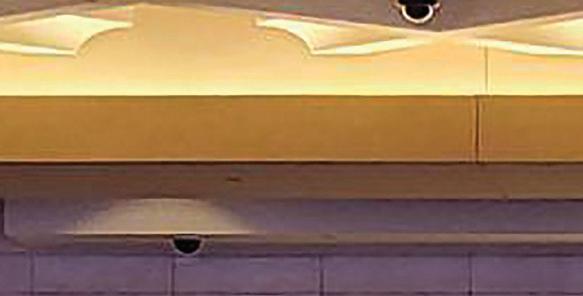

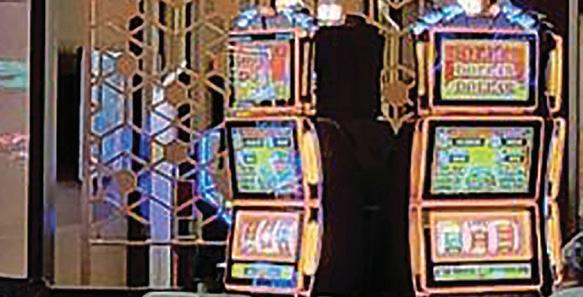

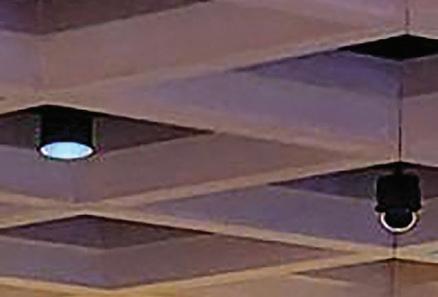
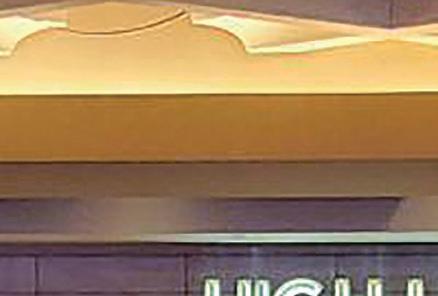

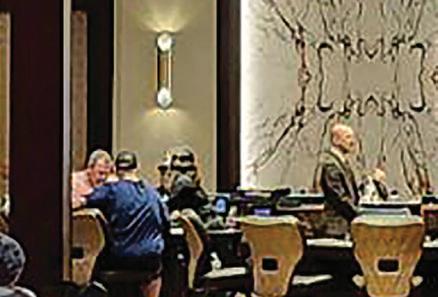
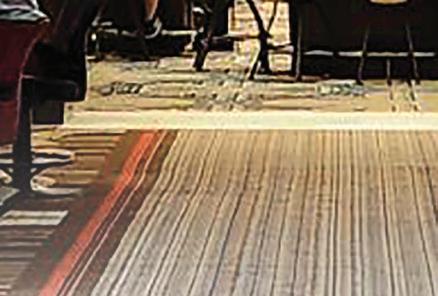

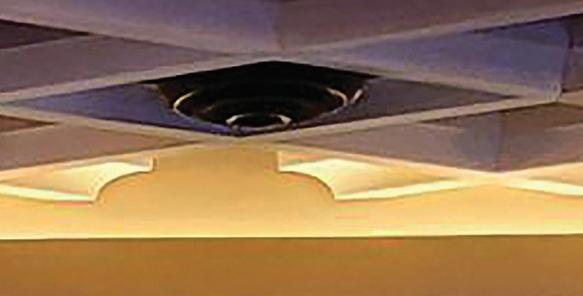
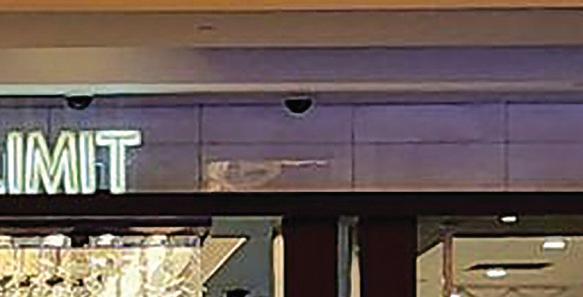
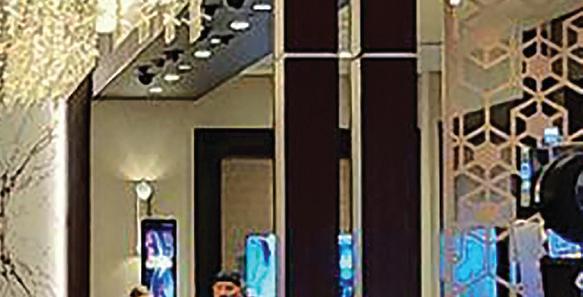
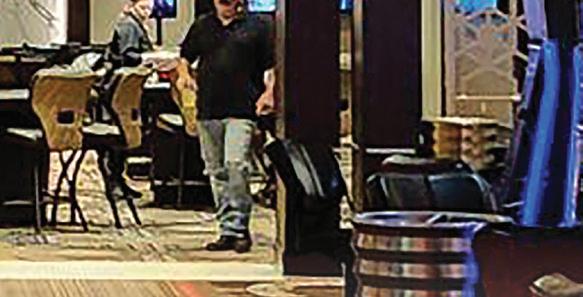


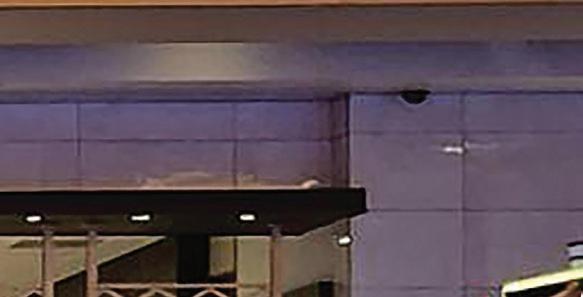









Gaming America’s Laura Mack visited two more Indiana casinos. Which one will emerge as the top pick for this casino faceoff round?
In my quest to find the ultimate Hoosierland casino, two new contenders rose to the challenge for the title of ultimate Indiana hot spot. These two casinos brought their unique brand of quality and flair to the table, but in this battle for top destination, there can only be one winner.
Let’s have a closer look at our latest contenders…
SHELBY COUNTY’S HORSESHOE
Indianapolis first opened in March 2009 as Indiana Live! and is currently owned
and operated by Caesars Entertainment.
This commercial casino is home to a racetrack, 65 table games and 1,500 slot games, as well as a high-limit room, sportsbook and poker room. Its racetrack, formerly known as Indiana Downs, welcomed its first guests in 2002.
Horseshoe Indianapolis is one of two racinos in the Hoosier State. The other is Hoosier Park Racing & Casino in Anderson, which is also owned and operated by Caesars.
Four Winds South Bend in St. Joseph
County opened its doors in January 2018. Since its grand opening, it has added a hotel and expanded its gaming floor to include more than 1,800 slot machines in various denominations that range from a penny to $100, as well as 27 table games and 12 live poker tables, a high-limit area and a sportsbook.
The casino hotel is owned and operated by the Pokagon Band of Potawatomi Indians. The Tribe currently runs three casinos in Michigan, which include Hartford, New Buffalo and Dowagiac. Its South Bend location is


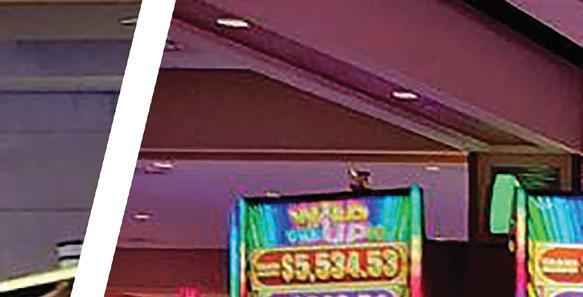
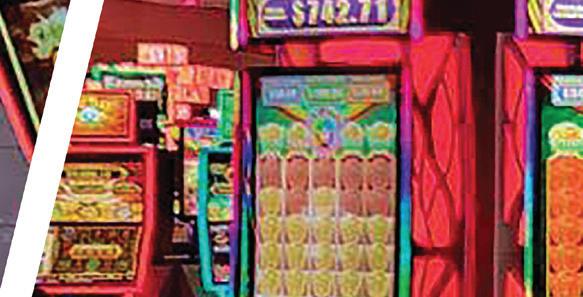
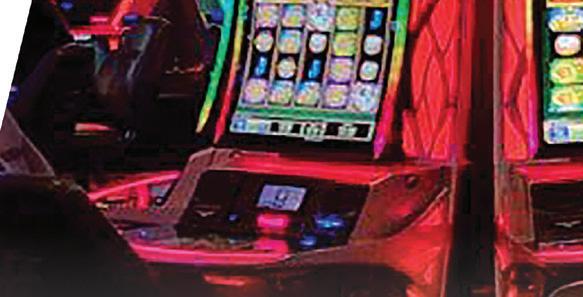




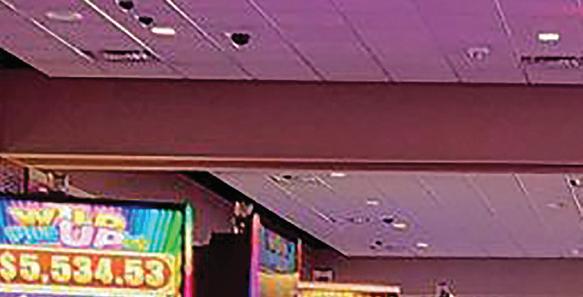




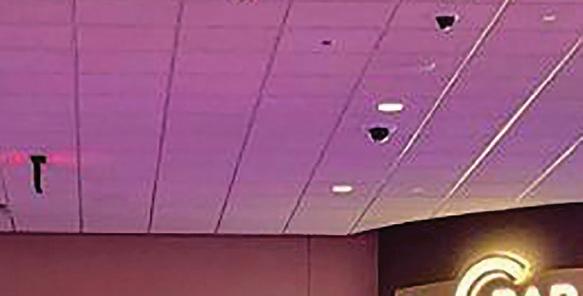






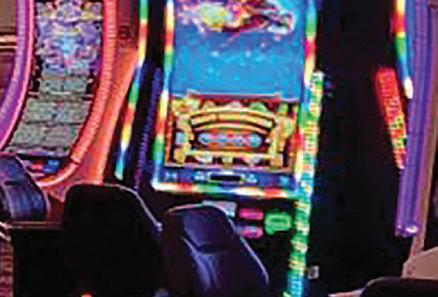


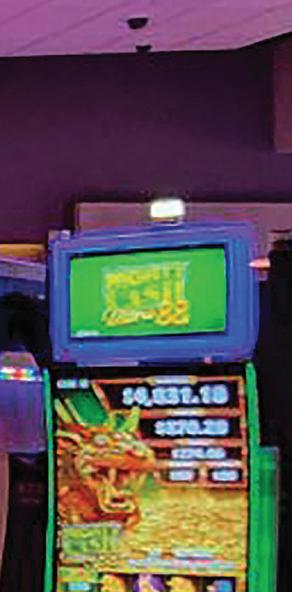



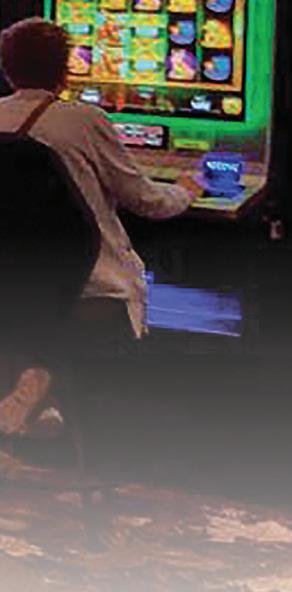
the Tribe’s only Indiana casino hotel. In this casino faceoff, both properties will receive points based on several categories, including cleanliness, dining, look and layout, variety of games and guest services. To keep it simple, we’ll score this contest like a tennis match. The winner will earn bragging rights and the coveted title of winner in this matchup.
Let the games begin!
It was a close contest when it came to visual appeal. Both casinos took great care in presenting clean, inviting and aesthetically pleasing landscaping. Upon


walking into Horseshoe Indianapolis, the casino’s décor and aesthetic gave off a stunning first impression. I loved how the Horseshoe theme was present throughout the gaming floor, which sported horseshoe patterns on the carpet. A nice touch indeed! And a great decorative detail that added charm and personality to the casino.
However, Four Winds takes the point in this category. Its visual appeal did not disappoint, with pristine landscaping and an assortment of colorful flowers. Pulling into the parking lot at this casino hotel was a surreal experience. I’m reminded of how excited and elated the Griswold family looked when pulling
into the parking lot of Wally World in their Wagon Queen Family Truckster. For me, arriving at Four Winds felt just as magical.
Its parking lot was a reasonable size, with plenty of spaces available for those with disabilities. The inside of the casino was gorgeous, with colorful carpeting and easy-to-read directional signage. So, this point goes to Four Winds South Bend.
The score, 15 serving Love.
Both casinos had great dining selections. In fact, it was hard to choose one place to try at each of these casinos because








the variety of options was so good. During my trip to Horseshoe Indianapolis, I ate lunch at Brew Brothers, one of the four restaurants available on the casino floor. This restaurant served classic Hoosier staples like a breaded tenderloin sandwich, which I highly recommend to visitors stopping at this casino from out of state.
This casino gives patrons a total of four restaurant options, which include Brew Brothers, Jack Binion’s Steak, Clubhouse Dining and Sidewalk Café. Horseshoe Indianapolis offers great meal options at reasonable prices that can accommodate most budgets, while still providing opportunities for fine dining in celebration of a jackpot win.







restaurant, so I could see which place fit my food budget best.
Four Winds also has several dining choices, including a hotel restaurant, buffet and other grab-and-go food stations. Unfortunately, the buffet was closed during lunchtime. It did not open until 2PM the day I visited. But I was able to have lunch at the hotel’s restaurant, which is on the third floor. The wait to be seated was not long, maybe a couple of minutes despite walking in during lunchtime.
The restaurant’s staff was warm, friendly and conversational, a common thread throughout the entire property.
The food at Four Winds rivals top restaurant quality but is at a price point that does not break the bank. The menu
featured several tasty meals, priced at less than $20 for an entrée. Plus, the hotel’s restaurant serves breakfast food all day, a major plus for those who love a good slice of bacon, a piece of sausage or an order of eggs no matter what time of day it is.
While both restaurants served me great tasting food and had several complimentary drink stations available for guests, Horseshoe Indianapolis pulled ahead in this category for best dining experience.
And now our score is 15 serving 15.
Four Winds was not only visually appealing but was also spotless. However, this casino is not completely smoke-free. Four Winds does allow smoking in designated and separate areas that are self-contained, a plus for those who like to gamble without being exposed to second-hand smoke. As with Casesars’ other Indiana casinos, Horseshoe Indianapolis allows its players to smoke indoors.
Though smoking is permitted inside this Shelby County destination, Horseshoe was clean and well-kept. In fact, the presence of clean ashtrays and an occasional player lighting up was the only evidence that this is not a smokefree casino. Restrooms in this casino were placed in easy-to-access locations throughout the facility, including just off the main casino entrance and close to the cashier’s station.

















when deciding where to eat. I thought pristine, spotless restrooms towels at the sinks.


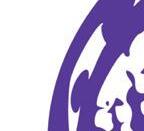




Four Winds had easy access to restrooms as well. Both casinos had pristine, spotless restrooms with plenty of soap and towels at the sinks.



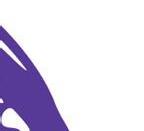

The restaurants here had digital menus posted just outside of their entrances, giving guests a way to check meal prices when deciding where to eat. I thought this was a cool feature, and as an expert penny pincher I appreciated that the prices were accessible before entering the






















































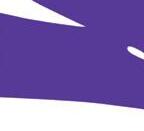















However, there can only be one winner for










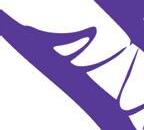








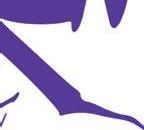


the cleanliness point, which goes to… drumroll… Four Winds!
Our score now stands at 30 serving 15.
The casino floor at Four Winds had no shortage of variety and great games. The casino offers players access to a variety of known and loved titles that include Triple Blazing 7’s Double Quick Hits, Huff N’ Puff and Lock it Link Piggy Bankin’, which is one of my personal favorites. Poker gurus can play a variety of games at Four Winds, including $1 to $2 No Limit Hold’em, $2 to $5 No Limit Hold’em, $3 to $6 Limit Hold’em and $1 to $2 Pot Limit Omaha.
The selection of slot machines and table games at Horseshoe Indianapolis did not disappoint either. Horseshoe Indianapolis had more than one version of player favorites but was not saturated with any specific game or brand. Another plus was that many slots had the option to select different denominations. I found several games that offer one, two and five-cent denominations at one station, a great way to maximize game time if you are looking for riskier play.
However, this was also true at Four Winds. And because this casino had many variations of go-to slot favorites that I have not been able to find at the other Indiana casinos I have visited, like Buffalo Grand Deluxe and Shark Lock, it claims the point for this category as well.
The score: 40 serving 15.
Walking inside Four Winds only heightened the bubbling excitement I felt after pulling into the parking lot here. I was greeted by a friendly staff member who quickly checked my ID and wished me good luck. Attendants at Horseshoe Indianapolis were helpful and friendly here as well.
My cash voucher became jammed after I had cashed out after one of my slot machine sessions. An attendant was close by and ready to help so that I could collect my ticket and be on my way to the next game. However, the staff at Four Winds takes this category because of how friendly its team
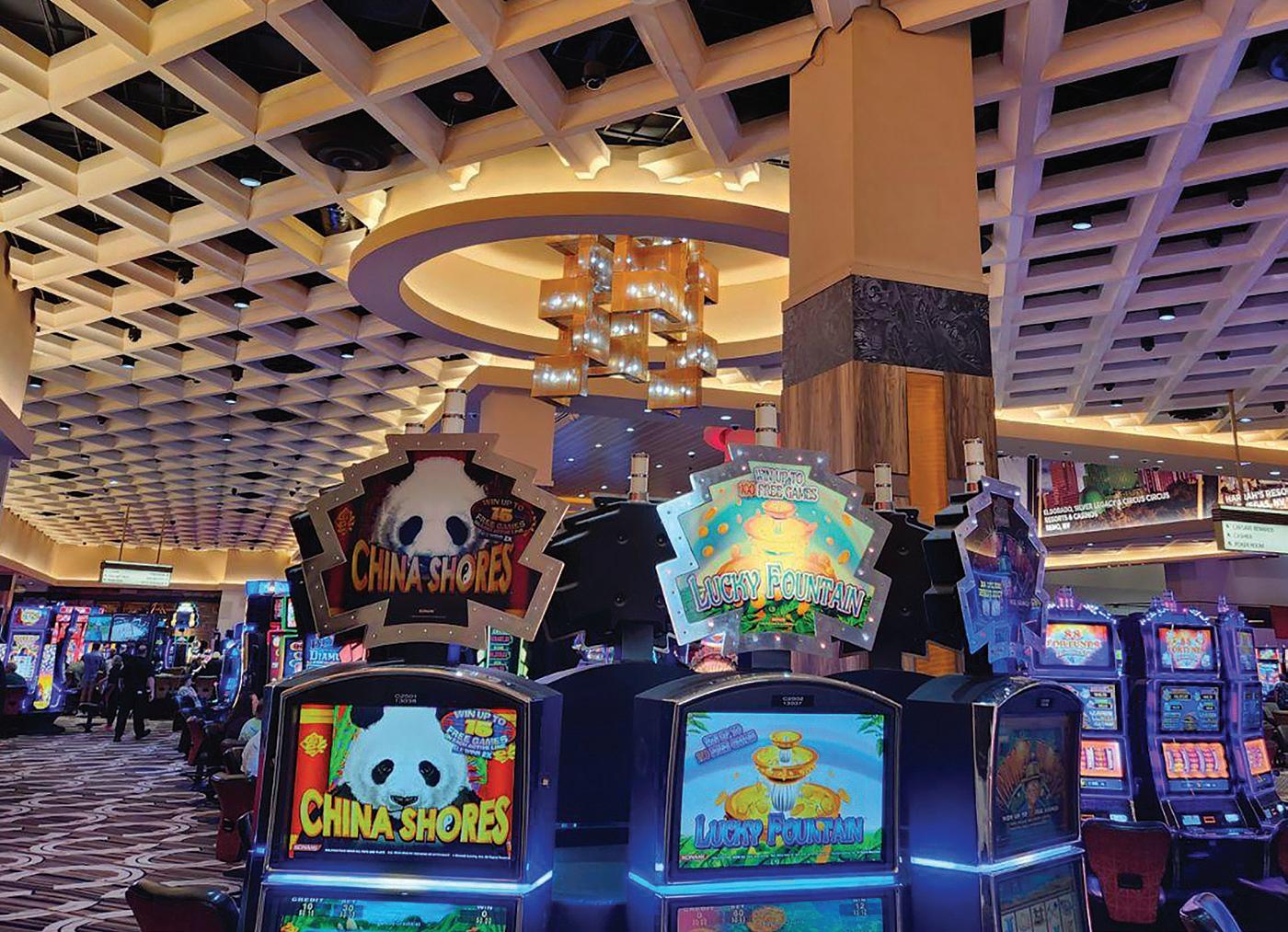
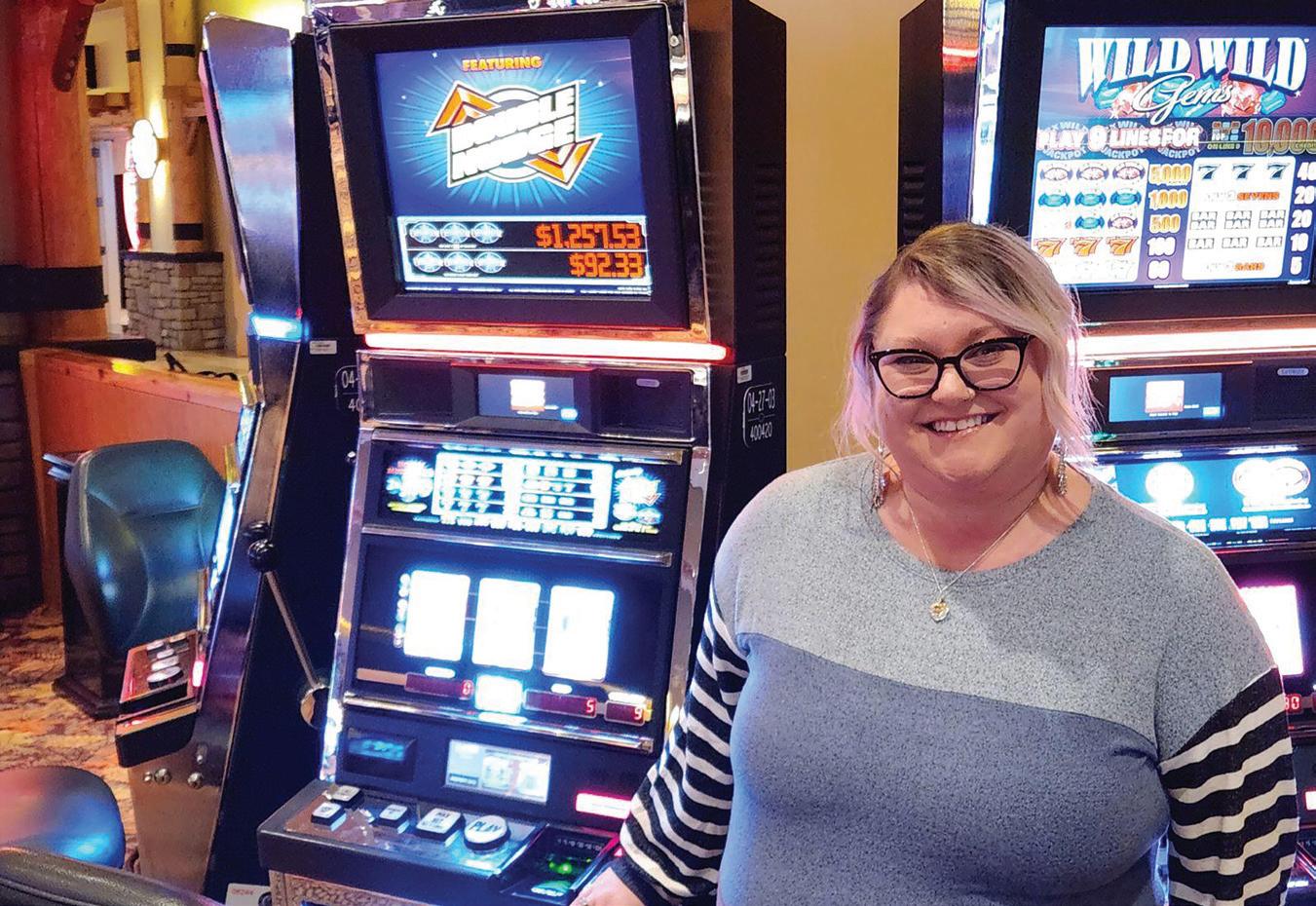
members were. I had a short conversation with an attendant on the casino floor, who kindly referred me to the hotel restaurant and let me know that it was open for lunch. Great job, Four Winds South Bend. That is Game, Set, Match!
Both Hoosier casinos are worth visiting in my book. Until checking out Four Winds South Bend, I had only visited commercial casinos. There is something to be said about the personal touch and warm, inviting atmosphere this Tribal casino creates for its players and hotel
guests. If every Tribal casino in the US was as wonderful as Four Winds, the casino industry is in good hands!
Congratulations, Four Winds on winning this match up. I would not be surprised if this destination could take the title for best casino in the Hoosier State. It is definitely my favorite casino so far!
When it comes to quality casinos in Indiana, Hoosiers can have their pick of some great gambling spots where they can kick back, relax and enjoy their game of choice. Indiana currently offers its residents access to 13 casinos within its borders.


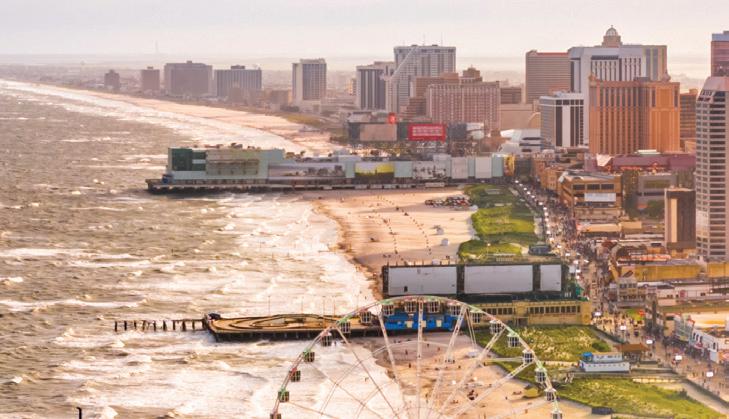






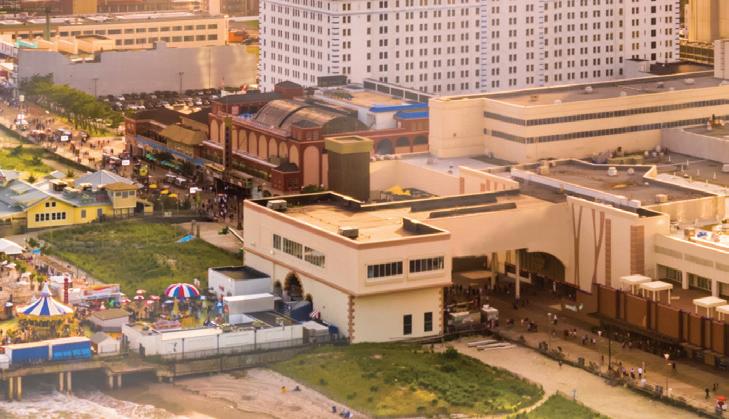




Gaming America speaks to Ocean Casino Resort about latest developments, new offerings and its deeply embedded New Jersey roots.
Let's do a brief history of Ocean’s performance since opening in Atlantic City. What lessons did Ocean learn from previous properties that had closed in the city?
Since our opening nearly six years ago, Ocean Casino Resort has constantly worked to enhance our guest experience through the property itself and our offerings. In 2021, we reinvested more than $15m, followed by an additional $85m in capital development in 2022 to


expand the property. This was followed by the introduction of 460 new rooms and suites, along with an innovative sports and entertainment venue - The Gallery Bar, Book, & Games. Ocean continues to present a premier gaming experience on the East Coast, featuring three distinct high-limit slot and table game venues, 1,750 of the most exciting slot machines, and two exclusive lounges for Ocean Rewards card members within our 135,000 square feet of gaming space. Ocean is also home to the world’s largest Topgolf Swing Suite, and offers both
land-based sports wagering and online gaming within the state of New Jersey through its real-money gaming sites.
What sets us apart is our commitment to elevate the overall guest experience, on and off the casino floor, redefining the conventional Atlantic City trip into an escape from the mundane. Ocean embodies a distinct mindset, offering a stay that resonates with our patrons. Here at Ocean, we are constantly improving and enhancing the gaming experience, keeping the guest experience front & center.







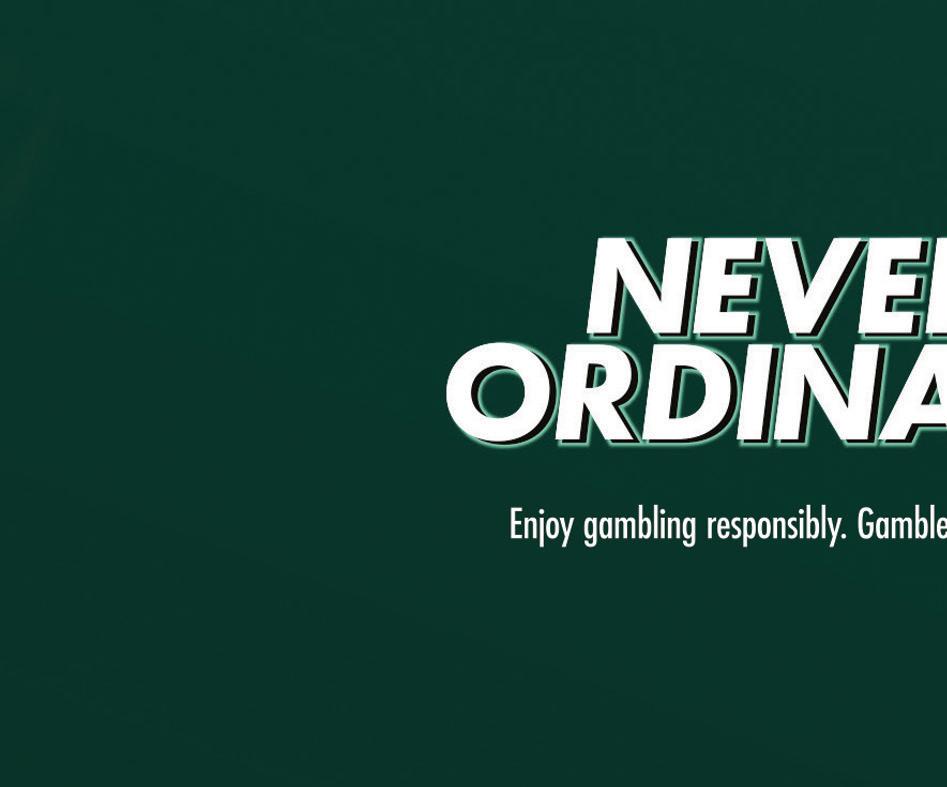

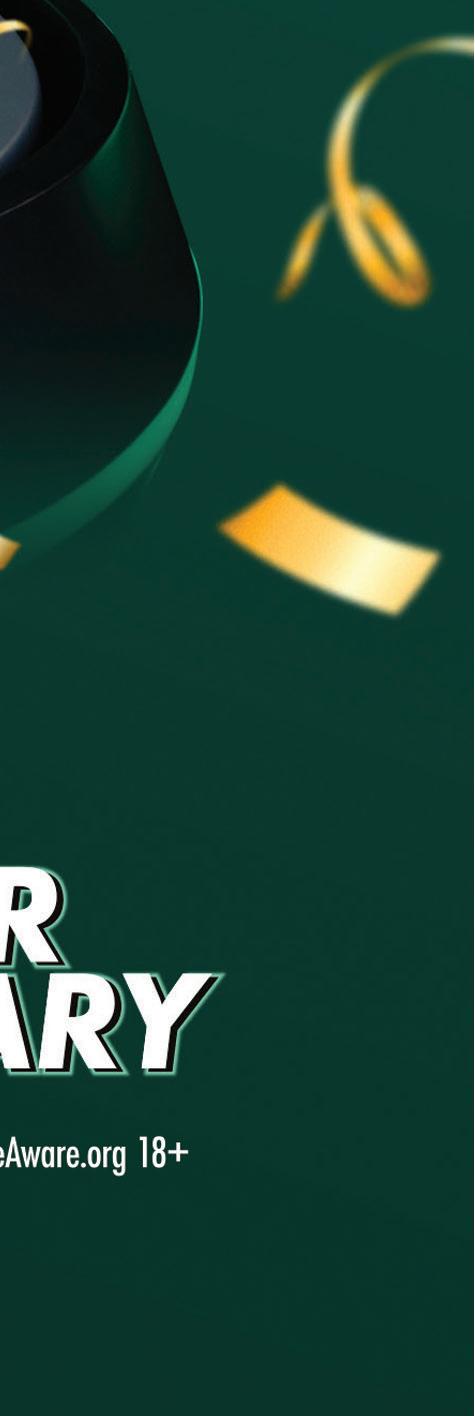
Our strategic investments and expansion have yielded tangible results, with Ocean Casino Resort seeing not only an uptick in hotel room rates but also substantial growth in overall gross operating profits.
How does Ocean feel about potential projects in New York opening such as Metropolitan Park and the Freedom Plaza? Ocean has numerous unique differentiators that we are confident will set us apart from New York city properties including unparalleled oceanfront views, resort amenities and best-in-class gaming experience.
What types of games does Ocean offer and who are the best suppliers Ocean has worked with? What are the best products they currently offer?
Our property offers a wide variety of slot machines, from reel-spinning and video reel to video poker machines. With over 1,800 state-of-the-art slot machines at all levels of play, some of our most popular slot themes include: Bank Buster, Huff N’ Even More Puff, Unwooly Riches, Pinata Pays, Smokin Hot Stuff Spin Frenzy Fire and Ice, Mystery of the Lamp, Tarzan vs. Wild, Rakin Bacon Odyssey and more. Guests can also try their luck with our classic Vegas-style table games like Blackjack, Mini-Baccarat, Craps or Roulette, Three Card Poker, or Let it Ride. Whatever their preference or level of play, Ocean Casino Resort offers players a wide variety of casino gaming in an upscale, sophisticated setting.
The Cove offers upscale gaming for our high-limit slot customers and features 157 slot machines within 7,450 square feet of space. Our high-limit table games room features 18 tables, all with their own Ocean views.
How does Ocean focus on nongaming amenities such as food and beverage or entertainment?
Ocean Casino Resort takes pride in offering guest experiences that extend beyond gaming, offering the best in food and beverage, entertainment and retail. We also have an exciting entertainment lineup for summer across 6-signature day life and nightlife experiences, including the return of HQ2 Beachclub. HQ2 Nightclub, located above Ocean’s casino floor, is regarded as the premier nightlife destination in the Northeast, offering multiple dancefloors, private table seating and three bars. Additionally, Ocean’s 4,500-seat Ovation Hall features comedy and various musical genres.
Throughout the summer, the schedule at the HQ2 Beachclub includes: Two Friends (June 22), Joel Corry (July 6), Tiësto (July 27), and Kaskade (August 10). And, Ovation Hall, will host some of the hottest acts on tour this summer, including The B-52’s (June 22), Lynyrd Skynyrd (June 28), Jon Batiste (June 29), Impractical Jokers (July 13), Joey Fatone & AJ McLean (July 19), Pete Davidson (July 20), Matt Rife (July 25, 26, 27, 28), the Black Eyed Peas (August 4) and Andrew Schulz (August 24).
Food and beverage wise, we also offer Amada by Jose Garces, Ocean Steak, and
Linguini by the Sea, as well as casual dining options including Villain & Saint, brunch spot, Harpers, fan-favorite Zhen Bang Noodles, Wahlburger’s, and Starbucks® with more restaurants opening this summer with Philly’s chef and restaurateur, Michael Schulson.
How does Ocean market to residents of New Jersey? Do you focus more on locals or tourists who visit Atlantic City?
We welcome guests from all over the tristate area and beyond. We often see our return guests coming from Philadelphia, New Jersey, New York and of course locals from Atlantic City. With our new partnership with Blade, we now offer our guests nonstop Blade flights from New York City directly to Ocean’s distinctive rooftop helipad creating an even more seamless and elevated guest experience. Guests can book seats on the 6-passenger helicopter, with additional flights currently scheduled every Saturday in July and August, wrapping up on Labor Day Weekend.
We take extreme pride in our community and continue to find ways to support small businesses to pay homage to our local NJ roots. At Ocean, we have many great relationships with local partners to offer a variety of products for guests.
Finally, any future plans for Ocean such as events or openings, goals for 2024?
“HERE AT OCEAN WE ARE CONSTANTLY IMPROVING AND ENHANCING THE GAMING EXPERIENCE, KEEPING THE GUEST EXPERIENCE FRONT AND CENTER.”
We are excited for what the summer season will bring. In one of the most exciting projects of the year, we are working with Philly’s very own celebrated chef Michael Schulson to bring two fine-casual concepts to our culinary roster. Opening later this summer, Pearl & Mary oyster bar and Samuel’s at Ocean will be located next to each other on the lobby level across from The Park.
Ocean also is constantly making improvements throughout the whole property. Most recently, we reinvested more than $15m in 2021, followed by an additional $85m in capital development in 2022 to expand the property, introducing 460 new rooms and suites, along with creating The Gallery Bar, Book, & Games.
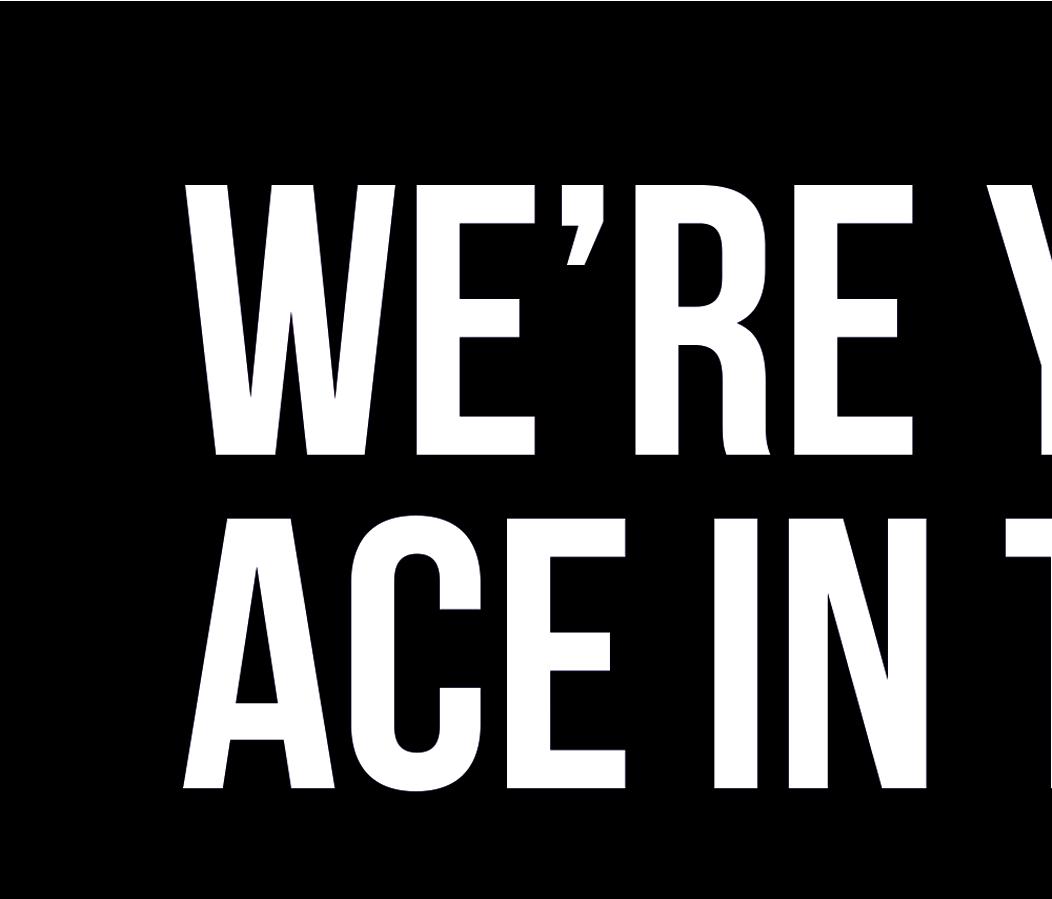



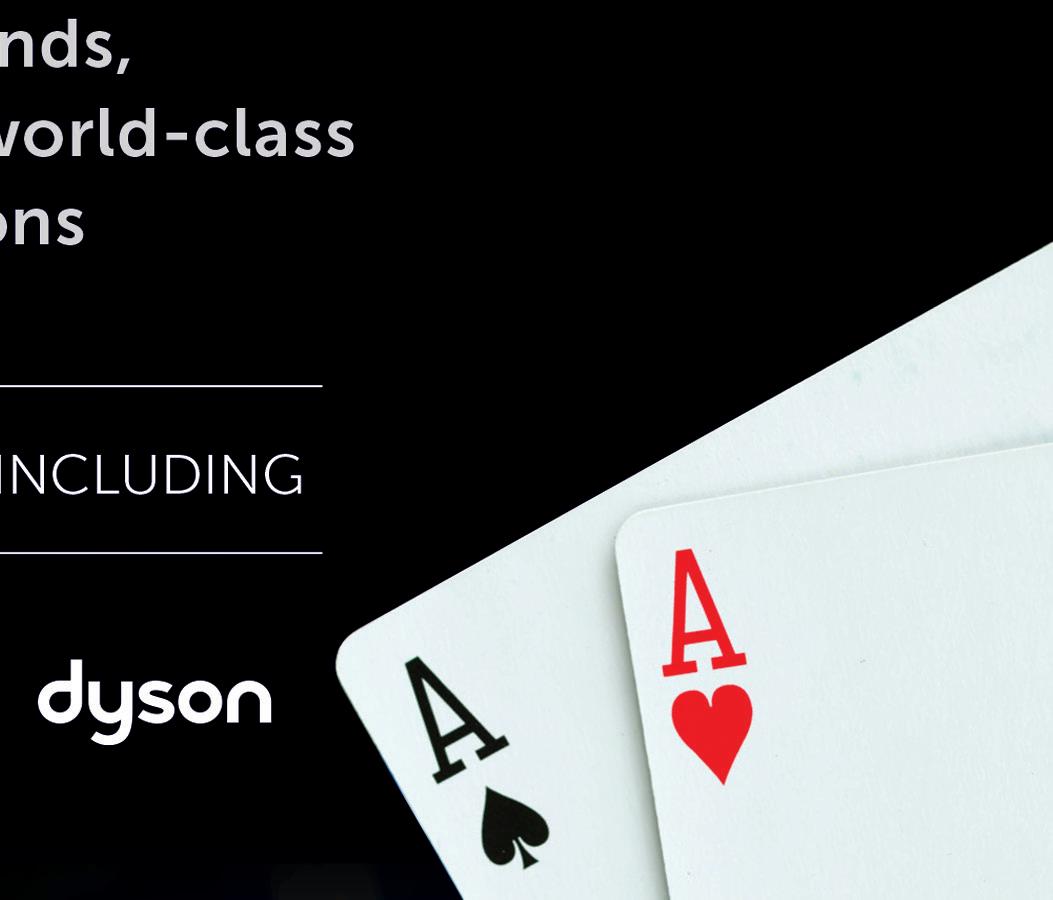
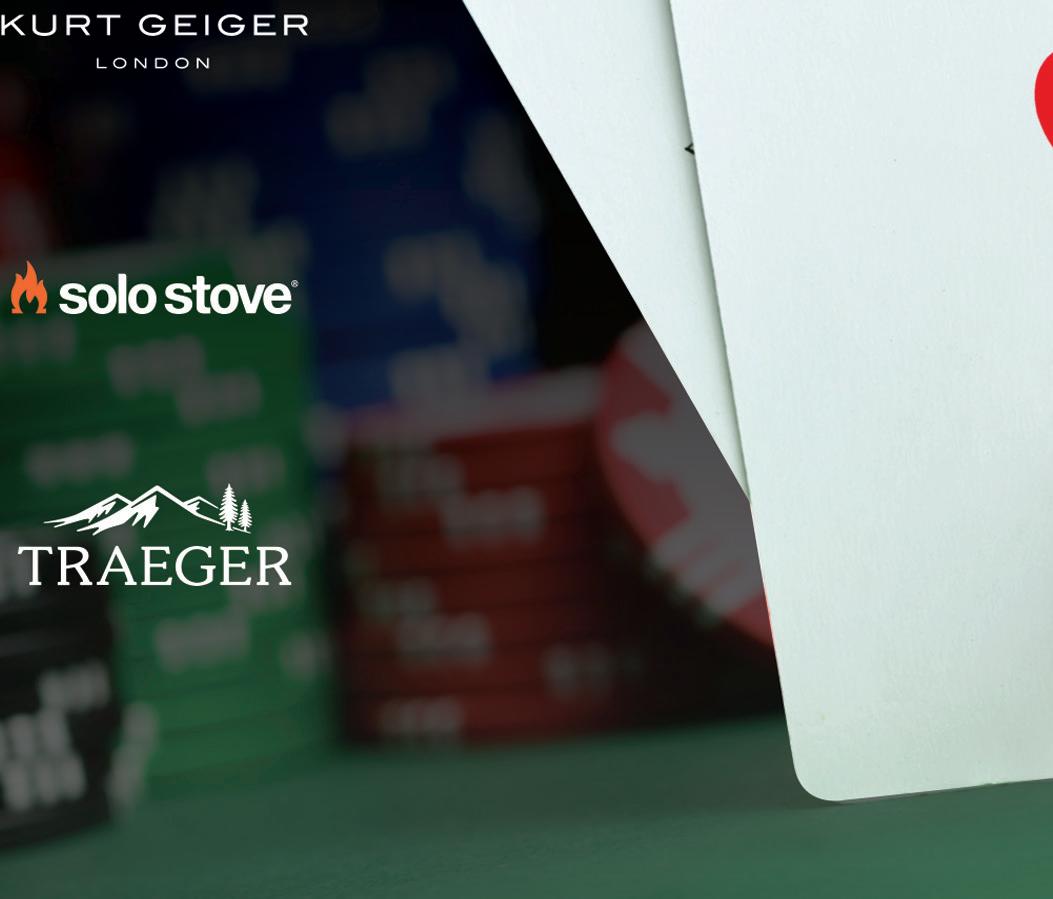
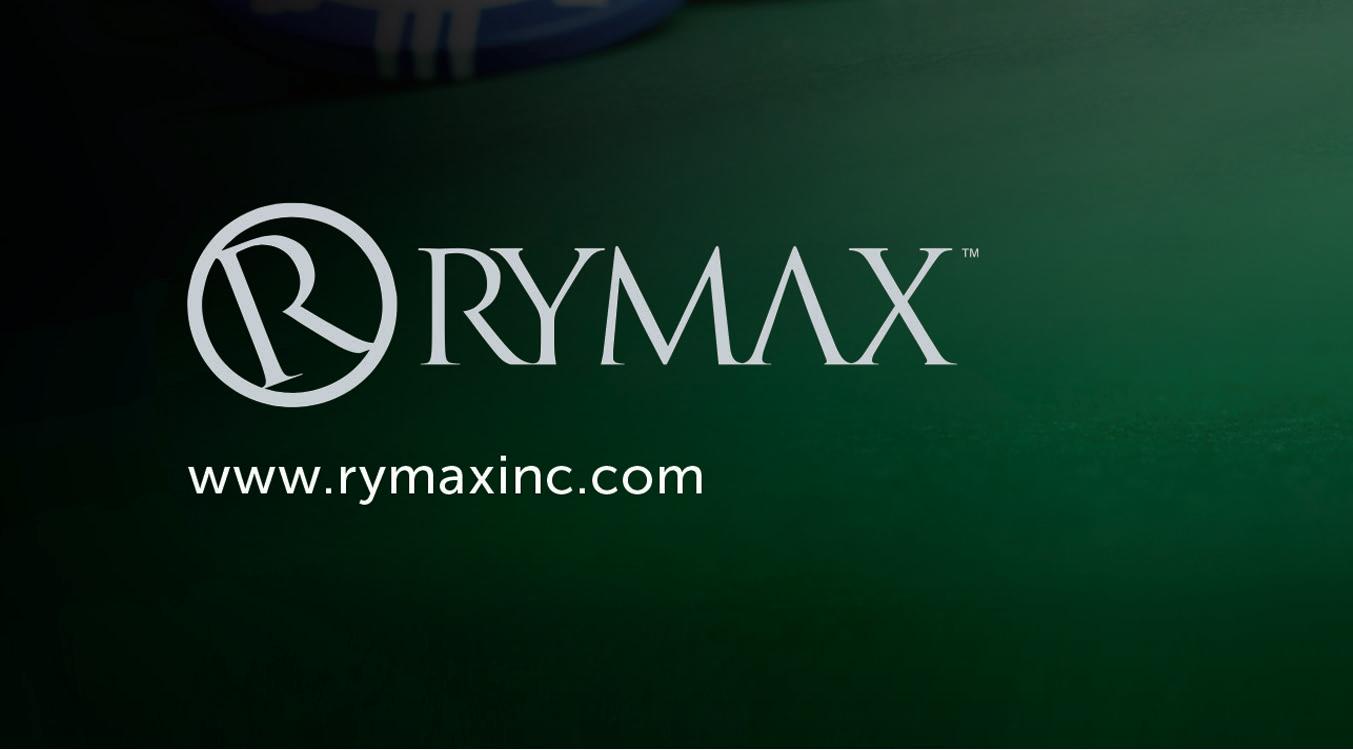





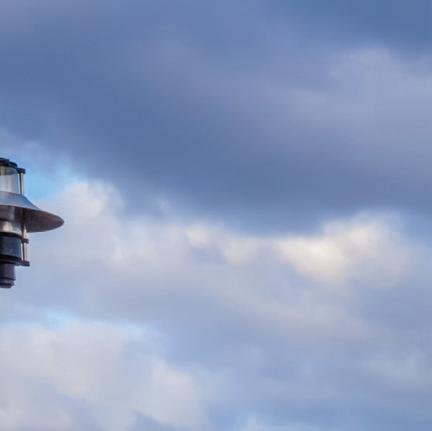
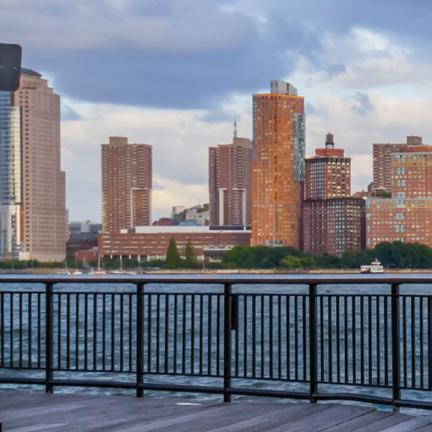







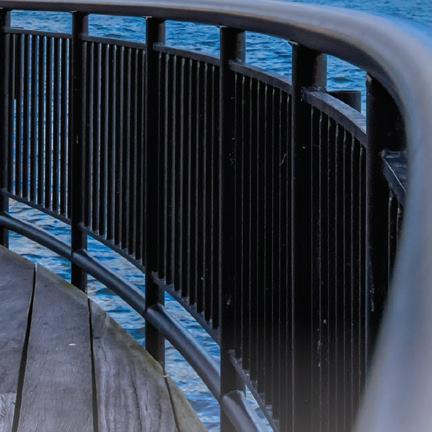


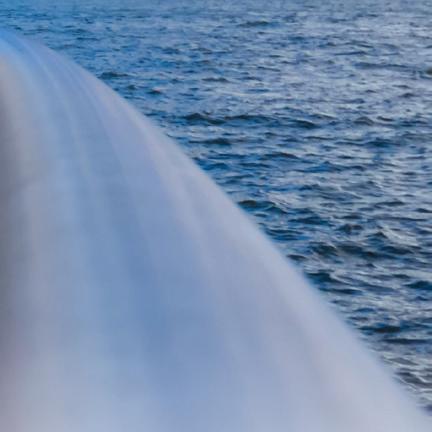


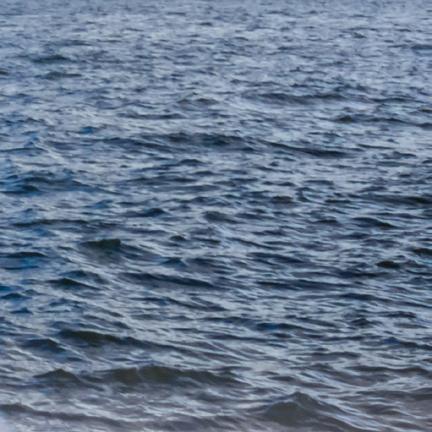




Gaming America speaks with Fanatics Betting and Gaming CPO Scot McClintic about the journey since striking the PointsBet deal, the operator’s move into New Jersey and Fanatics’ standing within the sports betting industry.
What steps were taken after the PointsBet acquisition to launch in New Jersey?
What we are most proud of with respect to the acquisition is two things. One, being able to integrate the odds and PointsBet technology in time for the NFL season. We announced the PointsBet acquisition in principle in the middle of summer. We were able to get the technology integrated by the NFL season, so that was the first big win for us. The other was migrating customers and shutting down PointsBet in states where they were live, and then onboarding those customers and launching Fanatics sportsbooks in those
same states. Looking at most other migrations that have taken place in our industry, at least in the US market, it usually takes years. Our first migration of a PointsBet state was in October 2023 and we concluded in early May. We were able to do it in less than a year, which is an amazing success. Kudos to those involved.
Just how much of a focus was New Jersey for Fanatics, given its rich gaming history?
We always wanted to launch in New Jersey. With PointsBet, it made logical sense, given some of the complexity around infrastructure, to save that one for last. It’s
obviously a very important state, a massive revenue state. In New Jersey, we wanted to make sure our app was in good shape. Customers were happy with the migration experience they were getting as they moved over from the PointsBet product to the Fanatics product in New Jersey. So we saved New Jersey for last – and for a lot of good reasons!
Is there a chance we’ll see an inperson sportsbook opened in New Jersey like in Connecticut and DC with the Commanders?
We understand that Fanatics in general has a heritage in sports that extends to brick-andmortar locations as well as online properties.
In our DNA, we’ve got several retail sportsbooks, the Washington Commanders, Columbus Blue Jackets, across the state of Connecticut, now in Illinois, Iowa, etc. We think expanding our retail footprint on the Fanatics Sportsbook side makes sense because it’s so interrelated with our brick-and-mortar commerce business. So, if there’s a partner or a deal to be had in New Jersey? Absolutely.
Fanatics mentioned that it's on a ten-year plan for success in this industry. Where are you within that 10-year plan and are you on schedule?
Decade to decade, absolutely, we are on or ahead of schedule. When you look month to month, this stuff is hard. This is my second time doing this and it takes a lot of time. As much as you learn the first time, the markets have already moved away from you. The definition of parity is always 12 steps ahead. You constantly chase parity while also trying to differentiate.
One of the areas I think we are ahead in is how much the Fanatics brand and the Fanatics Loyalty program resonates with customers. Of all the things we’ve done, what we’ve had unanimously positive feedback about since we launched until now is our loyalty program.
Areas where we’re on track or behind are exactly where you’d expect, constantly trying to match the parity you see in the market. There are lots of innovations happening. We think that, by the NFL season, we’re going to be exactly where we thought we would be when we started three years ago.
I noticed the plan doesn’t have a focus on building market share. Is that because two operators split the majority?
Look at other industries like the credit card-processing industry. You look at American Express, Visa or MasterCard. AmEx has decided to carve out a specific area of focus in the card-processing space, built around premium and loyalty –something that feels more than just a card
you use to buy things. I wouldn’t say that’s the perfect analogy for us, but as we think about our litmus test for success, it’s about profitability.
We don’t need to boil the ocean for the customers we’re looking for, like some other operators do. But when it comes to profitability, we do think we’re going to be very competitive from a market-share perspective. We’re not going to measure that by handle, because there are tons of ways you can manufacture high degrees of handle that inflate market share.
You’ve had experience with Penn Entertainment, specifically Barstool Sportsbook. Penn's deal with ESPN, was that something you thought was possible for the company during your time there? How do you view Penn compared to FanDuel or DraftKings?
I think Penn had only one option and it seemed to be ESPN; ESPN had been looking for a partner for years. To see Penn and ESPN ultimately come together wasn’t super surprising. I think what makes ESPN interesting, especially relative to Fanatics, is it is not a gaming endemic brand, either. It’s not a Penn, a Caesars or an MGM. With ESPN, looking at the media background, it’s
























































































very similar to the playbook Barstool tried to implement by getting into bed with Penn; it makes a lot of sense: different audience, different brand, but same media playbook. From our perspective, we’re just trying to stay in our lane and stay focused. We believe product will win the day. It’s a decade-long journey. Google wasn’t the first search engine, Airbnb wasn’t the first travel company; they just focused on building world-class products. Everything else takes care of itself, that’s been our motto.
Fanatics describes itself as a ‘second mover’ in this industry. Does that mean you took lessons from people who broke ground in the industry?’
You nailed it. There are pros and cons of being a second mover. I would say the pros are exactly what you said: you can see what operators did right, what they did wrong. You then know a lot about what we did wrong and then you don’t replicate them. You also have a lot of time to make sure you hone your strategy the right way. We formed this almost three years ago now and for the first six to nine months, we didn’t do anything – just heavy research. What do customers like? What do they not like? How are they satisfied? What are their key areas of dissatisfaction? It allows you to take your time and make sure the bets you’re about to make and underwrite are the right bets.










On the flip side, the longer you wait to get to market, the more the markets move away from you. You have to do this parallel building of not replicating the mistakes of the past and making sure you’re focused on the right problems. But, by the way, the markets are now a year and a half further away from you from a parity perspective, so be disruptive! Bet on yourself, catch up. Those two things are easy to say out loud but hard to do when you’re making strategic bets on yourself.
You need to nail the core blocking and tackling. But, if you just do that, you’re still behind. So how do you maintain a good equilibrium between innovation or
better basics? It’s not always been a straight upward linear journey. It’s been ups and downs as you’d expect. We’re at a point where we’re seeing the benefits of the innovative bets we’ve made, but we have also caught up a lot.
Gaming America is based in Las Vegas and we know part of why Fanatics, FanDuel and DraftKing don’t integrate themselves here: in-person sign up requirements. Why is that a challenge for operators and why does it deter them from Nevada?
It’s a two-parter because, even at Penn, it was tricky to figure out Nevada. Inperson registrations are one, but that’s actually easier for us to solve. We can do in-person registration at any of our retail locations if we need to, which would obviously constrain the market. But some states have opted for that. There are other rules in Nevada for a sportsbook operator within the state borders. It requires an actual in-person infrastructural investment: think having traders in Nevada, settling bets in Nevada. You’d have to do a cost-benefit-analysis of it all: if you're going to Nevada, you’d have to make sure you’re supporting the state in a very specific way. That
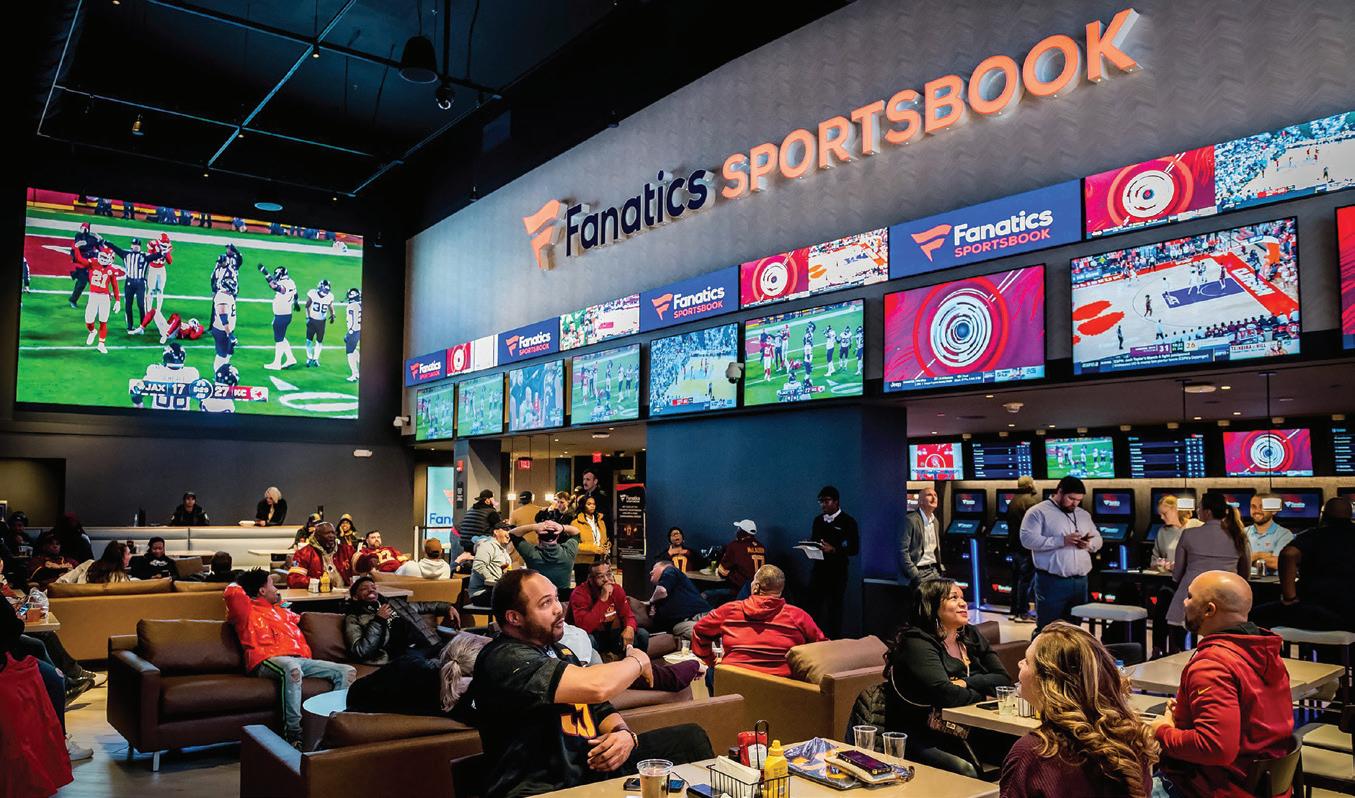
means you have to have actual boots on the ground, so it becomes a dedicated investment, not just similar to some of the dedicated investments you need to have in New Jersey.
That’s always a cost-benefit-analysis in terms of Nevada being a really big market. We’ve hired a lot of people from Nevada, but the next question would be how do you set up the infrastructure to do things in a way that makes the Nevada Gaming Control Board happy and satisfies the rules? That was it. That was a hurdle at Penn. For us, it might be different. I would say that, knowing Michael Rubin, we would very much want to have a Nevada presence at some point.

Are there any future plans specifically for New Jersey or in general for Fanatics in the next few months, especially leading up to football season?
I would say we are closing the gap rapidly. I think, from an objective standpoint, from all the research and data we see and what we hear from customers, we’ve come a long way since the beginning of the last NFL season. I think if customers are looking at our app for the first time, they’re going to be blown away by the amount of progress we’ve made.
The entrepreneurial journey is not for the faint of heart. There are ups, downs, peaks and troughs. But we’re through the troughs, starting to ramp up and get into the zone of peaking. As we do that, you’re going to start to see a lot more innovation in the types of bonuses that customers are getting, the quality of our casino experience, types of markets and combinability and pricing.
We’re excited about the next 12 months because the last 36 months have been a hard grind to get to this point. Now, we’re ready to start pouring more gas on the fire and go on the offensive. We would say nothing specific, but in totality, we’re very much in the same conversation as the FanDuels and DraftKings of the world. And we see the tangible progress we’re making.




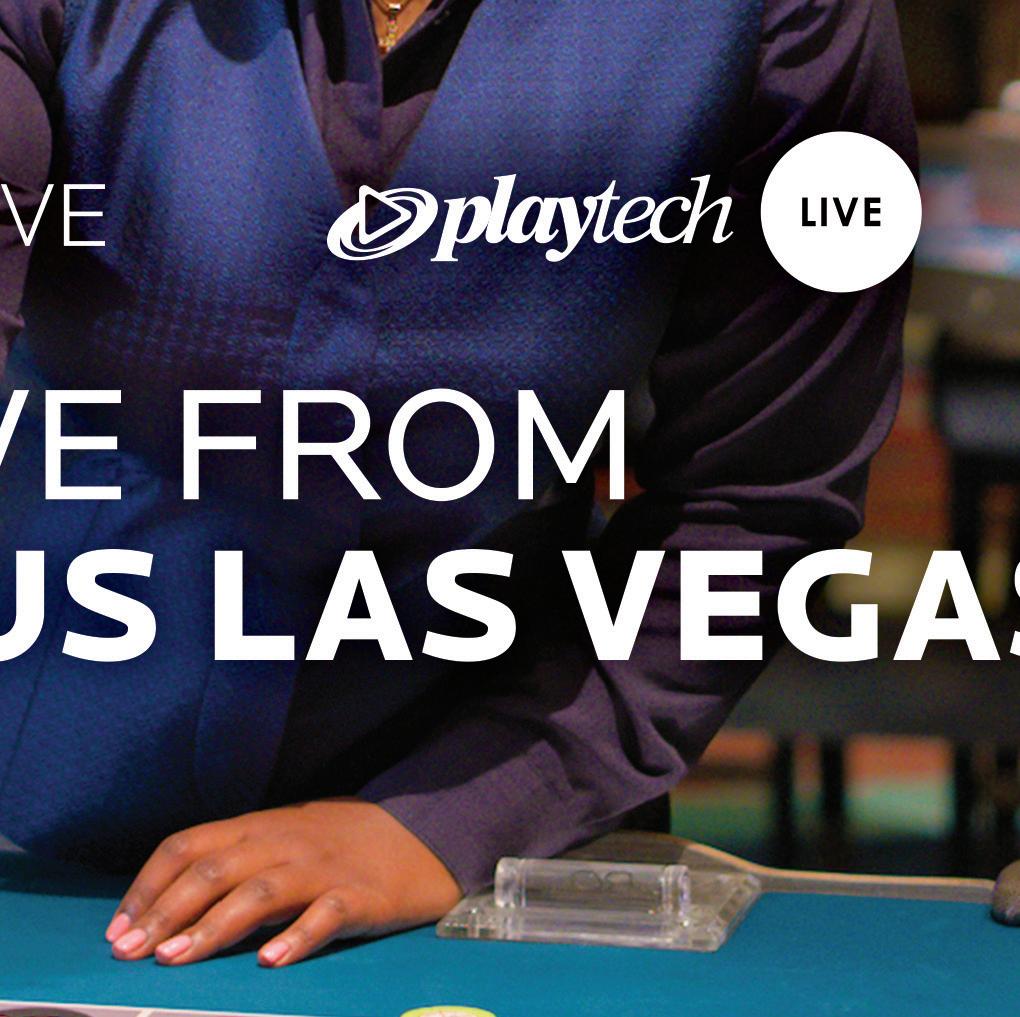








Edwin Monzon of Lazarus Legal discusses Curaçao’s online gaming regulation, as well as licenses from the Kahnawake Mohawk Territory and the Tobique First Nation.
Upcoming changes to Curaçao’s online gaming regulatory regime have raised questions about whether the country is the best jurisdiction for operators to be licensed. Curaçao has been a popular choice for operators because of the relative ease in obtaining a multi-jurisdictional license, low fees, favorable tax treatment and other benefits. The new proposed regulations are a significant departure from the existing system. As such, we assess the advantages and disadvantages of various jurisdictions.
Under the National Ordinance on Offshore Games of Hazard (NOOGH), Curaçao
provided multi-jurisdictional master licenses to four online gaming operators that in turn, sub-licensed to numerous other operators. Regulations have been relatively lax in comparison to other jurisdictions as the master licensors have effectively controlled licensing in Curaçao. In recent years, this raised international concerns about how to prevent money laundering and other illegal activities. During Covid-19, the Dutch Government and European Union pressured Curaçao to adopt a regulatory regime modeled after the one in Malta. Since 2021, the Curaçao Government has been working on adopting new regulations with consideration toward transitioning existing operators.
The new proposed law that is set to go to full Parliament soon for approval is known as the National Ordinance for Games of Chance (LOK). It provides for the creation of the Curaçao Gaming Authority (CGA) to control licensing. The CGA will grant all licenses directly to operators and end the system of master and sublicenses. New licensees will have to meet certain requirements regarding the structure of their business and comply with added controls to combat money laundering. Fees are expected to increase substantially.

Existing master licenses and sub-licenses will not be renewed. However, anyone who wanted to continue operating in Curaçao after LOK was required to register with the CGA by March 31, 2024. If they missed that deadline, their license will remain in effect until it expires or until the LOK goes into effect, whichever comes first. Thereafter, they have to apply for a license under LOK. Notably, LOK is expected to go into effect in June 2024, which means there is little time for existing licensees to decide whether to apply for the new license or move to another jurisdiction.
While Curaçao has been a frequent choice of operators, multi-jurisdictional licenses are also available from Malta, the Isle of Man, Alderney, the Kahnawake Mohawk Territory and the Tobique First Nation (in New Brunswick, Canada). All of these provide a centralized regulatory regime with well-established standards that meet the requirements of multiple jurisdictions. Tobique is the least well-known of these options with little publicly available information. However, our law firm has a
uniquely close relationship with Tobique and can provide an in-depth analysis of its rules, advantages and disadvantages as well as facilitate the licensing process if needed. Our firm has also been working closely with the Kahnawake Gaming Commission since the early 2000s, and therefore has extensive experience addressing a wide array of licensing and regulatory issues in this jurisdiction.

EDWIN D. MONZON Lazarus Legal Managing Partner
Whether you are one of the existing licensees in Curaçao or a startup company looking at how to expand internationally, it is essential to conduct a detailed evaluation and comparison of each jurisdiction before making a selection. Many factors go into deciding where to license and how to structure your business. These include the location of your target users, anticipated revenue, operations, investors/stakeholders and banking and payment facilities. Tax laws, costs to obtain a license and comply with regulations, and the ability to raise capital should also be considered.
Each of the licensing jurisdictions mentioned herein, including Curaçao, has its pros and cons depending on your needs and goals.
Edwin Monzon is an experienced legal professional in the corporate and gaming sectors. He was called to the Bar in 2004 and during the past 20 years, he has successfully led negotiations, acquisitions, sales, mergers of some of the most sought-after assets in the gaming industry and assisted startups in devising go-public strategies and navigating market entry processes.









Can Tribal and commercial gaming see eye to eye? Using California’s Proposition 27 as a case study, and with expert insights from Victor Rocha, James Siva and Rikki Tanenbaum, Gaming America explores different perspectives.

In November 2022, Californians cast their vote on Proposition 27 – a proposition that, if passed, would legalize mobile sports betting in the state. The proposition was championed by major sportsbooks like FanDuel and DraftKings yet, despite their efforts, Proposition 27 was defeated. In fact, it was beaten by a majority: 82.2% of Californians voted against the proposition.
To the sportsbooks, this defeat came as a blow. After all, with 100s of millions of dollars being spent on the campaign (notably on TV advertising), how could it not? To the Tribal operators in California, however, this outcome was the only outcome. To them, the sportsbooks had come into California without their consultation, using pre-existing techniques as seen in other states to try and get their foot in the door in the Golden State.
Of course, opinions vary from person to person. However, for the most part, the events of Proposition 27 reflected a wider clash occurring across the gaming market as a whole; that of Tribes protecting what they have in the markets they occupy, while commercial operators underestimate the challenge of entering Tribal markets. When we spoke to Victor Rocha, Founder of Pechanga.net and Conference Chair of the National Indian Gaming Association, he left no room for interpretation when discussing commercial sports betting’s attempt to set up shop in California in 2022.
“My Tribe opened a small casino in 1995 and, almost instantly, they tried to shut us down,” he explains to Gaming America. “We end up fighting the state of California and Las Vegas, then we ended up winning exclusivity in 2000 for gaming in California. Fast forward 24 years, Tribal gaming is now a $40bn













would move aside and allow them to do in California what they had done in other states.









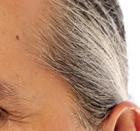






































































VICTOR ROCHA
Pechanga.net Founder
industry” ($41.9bn as of 2023 figures, to be precise).
“About 10 years ago, we had PokerStars coming in. It was online poker and these guys were the biggest in the world. They came in and thought, we were a bunch of Native American Tribes, we weren’t sophisticated. We kicked the sh*t out of those guys. They left stuttering. That’s what happened with the sports betting companies. They’re steamrolling across the US. Then, they came to the Tribes and they were warned, and they got the sh*t kicked out of them, too.”
Self-preservation and a sense of pride in Tribal achievements against commercial operators was clear from Rocha’s perspective. Commercial operators, in Rocha’s eyes, have been (and in some cases, continue to be) dismissive of Tribal gaming – they see themselves as superior, with an expectation that Tribes in California
"WE’VE HAD TO DEMAND OUR SURVIVAL. THEY DIDN’T GIVE IT TO US. WE HAD TO FIGHT IT EVERY STEP OF THE WAY." – VICTOR ROCHA
California Nations Indian Gaming Association (CNIGA) Chairman James Siva shared a similar sentiment. He told Gaming America, “There’s only friction [between Tribes and commercial operators] because of the manner in which commercial operators attempted to enter California. Tribes have long been the primary gaming stewards in this state and the operators chose to ignore that reality and tried, via Proposition 27, to enter the California market on their own terms, which was disrespectful of our status and stature in the industry.
Rocha added, “The Tribes have made it known in no uncertain terms that it’s not going to be the way you think it’s going to be. It’s not going to be the way it is in Arizona or Michigan or New York... We have been very stern, very hard in our approach –that’s the only thing they understand.”
Of course, this does not apply to every commercial operator. In fact, it often seems to be the businesses operating in new verticals – first online poker and now mobile sports betting – that come into the market with a confidence that their product will land in every territory they set their eyes on, backed by the sizeable wealth they have generated in their relatively short stint on the market.
Tribal gaming is the only form of gaming currently legalized and regulated in California, with roughly 60 of the state’s 100 Tribes operating casinos or other gaming ventures – none of which offer sports betting, land-based or otherwise. Proposition 27 intended to change this. In November 2022, the proposition went to vote, following several months of hard promotion from those in favor of passing it. The proposition also went up alongside Proposition 26, the ‘Legalize Sports Betting on American Indian Lands Initiative,’ which was also defeated by 67% of the vote.
Behind much of the pro-sports betting marketing were members of the Sports
Betting Alliance (SBA) – DraftKings, FanDuel and BetMGM, specifically. Recalled Rocha, “The SBA was a lot of the next-generation sports betting guys who came in very arrogantly through fantasy... They were very arrogant as a group because they had so many successes in preceding states, and California is the land of milk and honey. So, when they came here and we said no... they said, ‘Well, we’re going to do it anyhow because we have so much money.’ What they did then was use the exact same playbook everybody else has used before, which is to try to demonize the Tribes; that doesn’t work because Tribes had 25 years of keeping their promise.”
On the subject of trust, Siva shared similar thoughts. He said, “The voters of California trust Tribes and that trust has been hard earned. It’s the kind of trust that can only be built carefully and methodically, and constantly maintained. Commercial operators first and foremost must recognize that Tribes have been entrusted by California voters to maintain a well-run and well-regulated gaming industry. Commercial operators need to understand that Tribes will be senior partners in any partnership and that trust, with Tribes, needs to be slowly built and earned.”
Indeed, despite trends across the States, Californians defeated Proposition in the November 2022 vote by 82.2%, rendering the millions spent on advertising by commercial operators useless. So what can be garnered from this? And, more specifically, does the defeat of Proposition 27 act as a case study from which Tribal and commercial operators can learn from going forward?
So what went wrong with Proposition 27? Why did it fail, especially considering the financial backing behind it? FanDuel SVP of Strategic Partnerships, and former San Manuel Band of Mission Indians CMO and COO Rikki Tanenbaum, described it as “three buckets of mistakes.”
First was commercial gaming’s handling of Tribes. “There are two main things that were problematic. I’ll talk about FanDuel,

California Nations Indian Gaming Association Chairman
but really, the SBA underestimated the Tribes’ resolve to protect Tribal exclusivity and gaming into the future. For some, this was much less about sports wagering and more about the Tribe securing their rights to provide for future generations, not letting the camel’s nose under the tent, if you will.”
Second was an underestimation of California’s Tribal landscape. With over 100 Tribes in the Golden State, the fragmentation of needs and wants from Tribe to Tribe “makes it very challenging to enter the market because there’s not one counter party to negotiate with. What this really leads to is the importance of giving the Tribes the time and space to figure out how they want to move forward in a way that achieves their collective priorities. That was FanDuel’s takeaway from the mistakes with Tribes.”
Bucket two was the campaign itself –specifically, the fact that Propositions 26 and 27 ran in tandem. “Conventional wisdom is that having more than one ballot initiative on the same topic, they tend to nullify one another,” Tanenbaum remarked. With two votes on the ballot, plus “some no advertising in there”, “what are confused voters going to do? They’re going to vote no.”
“Finally, the campaign didn’t stop when all signs were pointing to an unwinnable situation,” Tanenbaum concluded. “What
this did was cause unnecessary expense and anxiety. That led to further tension and distrust between Tribes and commercial operators. That was probably the biggest realization for FanDuel, certainly gave FanDuel the opportunity to have a good look in the mirror, assess what went wrong and have reset philosophically about how to move forward.”
While in Tanenbaum’s eyes, Proposition 27 presented a learning experience for commercial operators, not everyone feels the failure of Proposition 27 will act as a deterrent against repeating these behaviors in the future. When we asked Rocha if he felt the operators involved learnt their lesson, he said, “Oh, God, no. There’s so much money.”
Beyond just the money, however, the timeframe commercial and Tribal operators work under is completely different. Said Rocha, “The Tribes have a different relationship to time than the rest of the gaming industry. They think in longer terms, they don’t think in quarterly, annual. They think in five, seven, 10 abd 15 years. We can wait... They act up, we’ll play it again. We’ll wait a couple of years. They need it more than we do. And, more importantly, every time they do, the Tribes win because the status quo wins.”
Tanenbaum noted a similar observation, that “Many Tribes think about time in terms of generations, not in terms of quarters.” However, her belief was one of hope, that if commercial operators “internalize and realize that this is going to manifest itself in different ways for different Tribes, that is one way you can let the Tribes lead; don’t rush them.”
During the creation of this article, news broke that the US Supreme Court had denied hearing the case West Flagler Associates Ltd. et al. v. Debra Haaland et al., meaning that sports betting in Florida would remain exclusive to the Seminole Tribe until 2051. In short, lawyers from West Flagler Associates and Bonita-Fort Myers Corp filed a lawsuit claiming that the Tribe’s compact was in violation of the


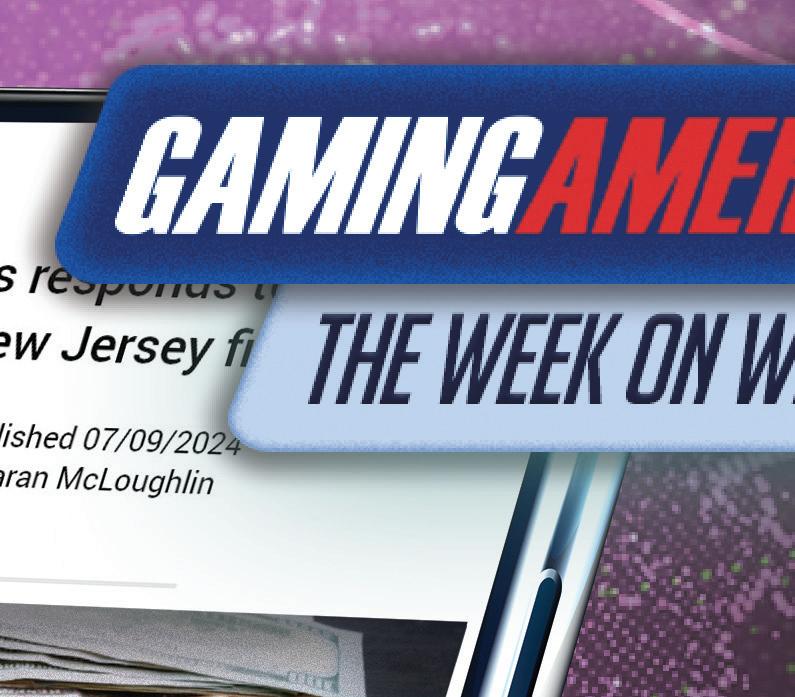
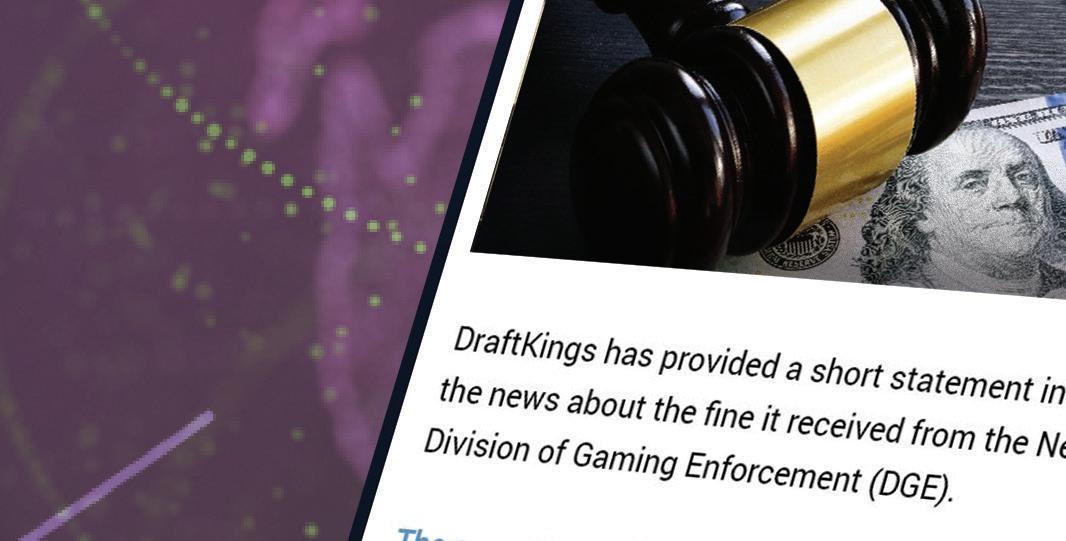






























Indian Gaming Regulatory Act (IGRA). In 2021, judges agreed with the companies, though this decision was later revoked, resulting in the companies being denied hearing to the Supreme Court.
On the ruling, Lewis Roca’s Indian Law practice group leader Stephen Hart commented, “The Supreme Court has denied cert in the West Flagler case. Because they earlier denied a stay, nothing now stops Tribes from doing sports betting and internet gaming from their servers on their Indian lands, and taking bets from anywhere in the state. The Tribes will now have to work with their state governments, but with a compact they will be able to conduct internet gaming.”
Predictably, the companies involved both run gaming operations in Florida, alleging that the Seminole’s sports betting exclusivity would negatively impact their profitability. It seems, as Rocha stated earlier, the status quo has remained yet again.

We spoke to Rocha before the denial was confirmed on the issue, where he explained, “[The Seminoles] got this amazing deal. It gave them exclusivity to sports in a hub-and-spoke model; everything went

through them again... [The commercial operators] were having a fit. They kept losing and losing in court. They’ve taken it to The Supreme Court. The Seminoles have fought back against the industry that demanded and sued them, and now they have exclusivity in Florida, just like the Tribes in California. The difference is the Seminoles fought it in a different way. The Seminoles played an amazing game of offence; ours was defense.”
Similarly, said Siva, “We believe the Supreme Court got it right when they refused to hear the West Flagler appeal. Although there are some fundamental differences between Florida and California, we view this as a victory for Tribal governments nationwide. While the decision does not clear the way for California Tribes to begin sports wagering operations, it does provide much needed clarity regarding what is authorized under IGRA.”
While both Tribes approached the challenges against their exclusivity differently, the result remained the same. By being an adversary to the Tribes as opposed to an ally, operators trying to enter Tribal markets were dismissed.

Not all commercial operators are entering markets for the purpose of displacing Tribes. In fact, Tribes across California and indeed many other Tribal-only markets have partnered with commercial gaming businesses. However, unlike the SBA or those involved in the West Flagler case, these businesses know better than to try and overthrow their peers; instead, they opt to follow the Tribe’s lead instead.
When asking Tanenbaum how a commercial operator can be an ally to the Tribes instead of an adversary, as well as providing advice on understanding the timescale, she said, “In both California and beyond, firstly a business needs to understand that they need to meet the Tribes where they are and prove they can be a good partner. This means you don’t rush Tribes. You let them be sovereign, you’ll let them get there.

“The second thing is, when you’re invited in you begin listening and understanding what matters most to them. Through these conversations, we’ve been repeatedly hearing about the Tribes being foremostly focused on the protection of sovereignty. You hear about the focus on economic development in a way that protects sovereignty. It’s useful to understand that point of view is, then you think about solutions.”
Alternatively, “It creates opportunities for other companies,” Rocha said. “It doesn’t have to be FanDuel.” For Rocha, it is about commercial operators going with the needs and wants of the Tribes, a ‘Whatever you guys want, we will do’ approach. IGT was mentioned specifically as a Tribal partner that many may try to aspire to; “you think of the Tribes and their partners, and IGT is one of their strongest supporters. But at one point, IGT was on the other side. So FanDuel has a long way to go... Amy (Howe, FanDuel CEO) has to understand, but so does Peter Jackson from Flutter... I want to hear from each one of them that they understand that the Tribes’ direction is the only direction. They can’t be the proverbial camel’s nose. The reason why is because they can’t win this game without the co-operation of the


Tribes; there’s no way around or under or over or through.”
If past perspectives have made anything clear, it is that the way commercial and Tribal operators approach gaming is vastly different. Moreover, following displays as seen in California (and more recently, Florida), it is no surprise that Tribal operators may be put off from working alongside commercial operators, especially those involved in groups like the SBA.
So, is it even possible for Tribal and commercial operators to function together in states like California and Florida? When Tribes have been the status quo for so long, is there any way for commercial operators to get a foot in the door, and to do so without taking from the Tribes in the process?
For Rocha, his stance remains relatively solid: new-generation operators have yet to learn the etiquette of engaging with Tribal gaming, and until that lesson is learned, Tribes and commercial gaming will continue to butt heads. “We’ve had to demand our survival. They didn’t give it to us. We had to fight it every step of the way. Then you get this next generation of gambling people saying it’s a zero-sum game. They’re going to have to change their mentality. This is what we see in Florida and California: an opportunity to bring these guys down to Earth. We are not going to let them be get between us and our customer.”
Deutsche Bank analyst Carlo Santarelli expressed similar sentiment. Comparing California and Florida in his comments following the West Flagler case, he said, “Much like Florida, however, should the Tribes successfully amend the compact, the opportunity for the traditional online operators would remain cloudy.” Moreover, he stated the idea that Tribes would undoubtably choose to partner with an online sports betting operator “lacks an understanding around Tribal politics.”
SO, STEP ONE: CHANGE YOUR PERSPECTIVE WHEN WORKING WITH THE TRIBES.
Tribal operators are not just businesses
– they are critical to the financial wellbeing of many people living on casino reservations, providing jobs for Tribespeople and funding to enhance Tribal living conditions. They will not give up what they have easily, no matter the benefits of a short-term cash payout. As both Rocha and Tanenbaum point out, Tribes think long term.
“I think commercial and Tribal gaming can absolutely coexist,” said Tanenbaum. “But it’s worth noting that the models in place today likely have to evolve. Many of the states that have yet to legalize have complex dynamics and each of these states need to be considered on a case-by-case basis; so there will be a different framework, depending on the number of the Tribes, the distribution of rural versus urban et cetera, et cetera. Each one of these solutions will need to respect the unique Tribal landscape. I also want to note that these are early days in this category, so it’s inherent to have meaningful innovation and change ahead. There should be.”
STEP TWO, THEN: DO WHAT YOU CAN TO SUPPORT TRIBES LEGALLY. Tribal gaming has always inherently been intertwined with politics. It is state governors that make the compacts, the state citizens that are given power to vote. As Rocha put it, “We know how to play politics. We know it at the grassroots level, we know how to play it at the highest level. We didn’t invent the game, we just know how to play it better than anyone else. That’s how Native American Tribes have learned to survive in the 21st century.”
That is to say, if commercial operators want to be an ally to the Tribes, to work alongside them, it is not advantageous to align against them politically. As California and Florida have shown, Tribes know what they are doing.
Finally, and this is important in all aspects of life and business: don’t assume you know. This means educating your business about the wants and needs of the Tribes from those working within the Tribe; don’t assume you know what’s best for them. In assuming, a business can
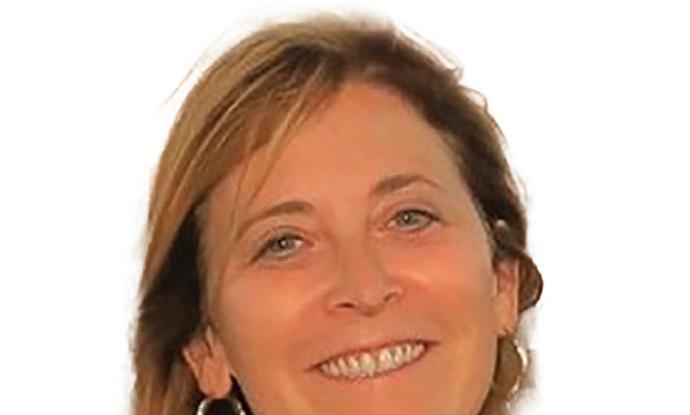



















































































RIKKI TANENBAUM
FanDuel SVP SVP of Strategic Partnerships
become something of a bulldozer.
Bringing those with a Tribal background into a business’ executive suite may be one solution to education and reframing perspectives. As with Tanenbaum, FanDuel also brought on former NIGC Chairman E. Sequoyah Simermeyer as its VP of Strategic Partnerships in February, on which Tanenbaum said, “We thought that it would be worthwhile to get ourselves educated with the foremost expert on understanding the NIGC, and begin to build some real capacity in service of meeting Tribes where they are. He’s had the benefit of experience, having conversations everywhere. He was attuned in ways that would be impossible for us to get attuned to that broadly.”
Even to Rocha, such moves seem to be a start. “At one point, IGT was on the other side. So FanDuel has a long way to go. But, they seem to be playing the game and are willing to invest in hiring Native Americans and such.”
Overall, it is Siva who sums it up best, “Be patient, honest and respectful in building trust and relationships with Tribes. Understand fully that Tribes are governments and as such, in charge in any business arrangement. Actions always speak louder than words, as such, Tribes are more interested in what is done than what is said.”
Oliver Lovat, Gaming America regular, Las Vegas expert and historian, and Denstone Group CEO, looks back at some of Vegas’ most groundbreaking properties.
With the closure of The Tropicana and the Mirage, two fixtures of Las Vegas Boulevard for decades, many are gazing reflectively at the evolution of the resort corridor and where the city is heading. One of the characteristics of Las Vegas’ enduring popularity is reinvention, but in many cases the newest addition has not necessarily brought any innovation to the market. Indeed, when looking at the narrative of Las Vegas’ resorts, there have been very few that have significantly shifted the city’s business model or narrative.
In what is sometimes a contentious discussion, I have selected the five most important properties to open in Las Vegas and outline my rationale for their selection. I, of course, welcome discussion on the subject and seek others’ thoughts to change my mind.
Tony Cornero wasn’t new to gambling when he conceived The Stardust Hotel and
Casino on Las Vegas Boulevard. A veteran of illegal casino operations, Cornero had survived imprisonment, an inconvenient fire destroying his Downtown Meadows Resort and an assassination attempt, but the development and financing his Stardust proved too much.
With the project in full flow, but without the requisite cash to complete, Cornero was to collapse and die at Moe Dalitz’ Desert Inn while playing craps in 1956.
In a tale worthy of Hollywood, John Factor (half-brother of make-up entrepreneur Max Factor) and his wife assumed control of the project on behalf of Dalitz, the project’s lead financier, and his associates. On opening on July 2 1958, The Stardust differed from the established portfolio.
With a thematic nod to the Atomic Age, rather than the desert environment of its competitors, The Stardust was the largest hotel in the world with 1,065 guestrooms located in a series of low-rise motel structures. The casino, operated by Dalitz’s
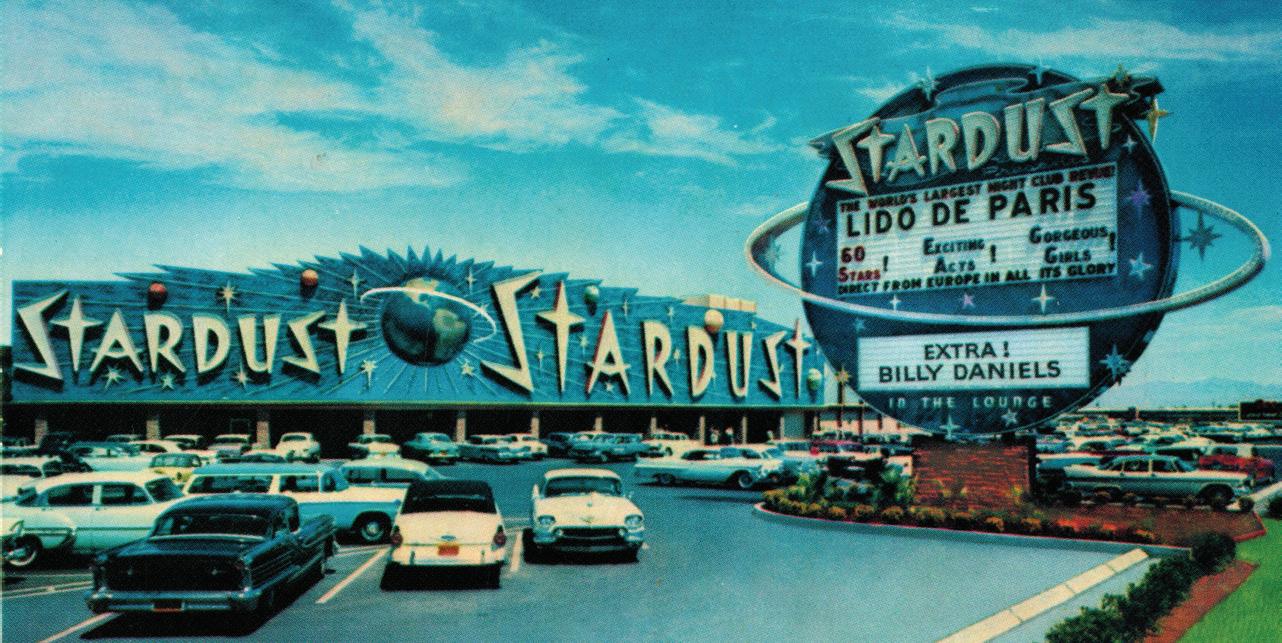
associates, was set behind a strip adjacent car park, dominated by stylized signage that has become as iconic as the property. With the Riviera’s 9-story hotel tower overlooking the resort, The Stardust was not intended to compete with the aspirational product of the town, rather with an RV park, drive-in movie theater and Lido de Paris production show (rather than a headliner) dominated entertainment. This was the first Las Vegas resort not built exclusively to service Las Vegas aspirational gamblers, but to appeal to a more middle-class customer in scale.
As the property changed “ownership” many times, additions and expansions were made, including building new towers, but The Stardust contained to provide a major source of revenue to outside interests. Imagined as the mob-riddled “Tangiers” in the movie Casino, Frank Rosenthal hosted his TV show and launched The Strip’s first sportsbook at the property, which set the line for all sports betting in the town for many years. Indeed, after Sam and Bill Boyd assumed control of the property ending decades of alleged skimming, (before acquiring it in 1985) the property resisted going upscale, providing a solid customer intimacy strategy that they had employed in their local’s casino operations. The property was closed in 2006, imploded in 2007 and replaced by Genting’s Resorts World in 2020.
Many of Las Vegas’ earliest resorts were similar in pattern; developed to serve highend gamblers and programmed accordingly, from a strategic perspective, the legacy of The Stardust, it is clear it provided an
opportunity for the middle class – some may say mass market – to come to Las Vegas. From a gaming perspective, the scale of the resort and volume of gaming allowed for a lower volatility in gaming patterns than the competitive set, and the owners tailored the entertainment offering to meet the needs of that customer.
That the resort remained profitable, despite the skimming for decades, highlights not only the vision of the developers, but the manner in which many customers loyally embraced the offering, being suited more to their needs than the existing market offered.
Caesars Palace is not the most radical property ever built in Las Vegas, that honor goes to Sarno’s other brainchild, Circus Circus, but it is hard to argue that Caesars is not the most defining resort built in this city. Regular readers will observe my extensive commentary on Jay Sarno and Stan Mallin’s journey in fusing their influences outside Las Vegas to create something more fun, exciting and interesting than what existed in the gambling capital of the world.
On opening, newscasts featured the Greco-Roman themed resort, where everybody could be a Caesar, and thousands booked their trip to visit this unique global attraction. From the innovative landscaping, engaging architecture, unique design features and overall pursuit in providing pleasure, Caesars was indeed a Palace for indulgence. Moreover, it was designed not just for function, but to emotionally grab customers, pull them out of their reality and grant permissiveness in a curated cornucopia of elegance and escapism. And the world wanted to come and experience it.
Sarno did not last long at the helm, with the Perlmans acquiring the property in 1969. As businessmen with a broader operating understanding, the new owners added further towers and casino space, adding sporting events and other entertainment offering. As Las Vegas grew, so did Caesars Palace, with multiple new amenities, including The Forum Shops, the Coliseum theatre and many new restaurants and nightclubs. The resort featured prominently




































































nearly every casino resort that came after has featured a little of Sarno’s raw intuition, either knowingly or unknowingly.
For Steve Wynn and the Mirage, it was knowingly. Innovation and iteration were perfectly aggregated. Wynn had learned from his mentor, Sarno, who passed in 1984, watched how Boyd had made good at The Stardust and had hired Joel Bergman, the architect that cut his teeth in Kerkorian’s International, at the time trading as the Las Vegas Hilton.
OLIVER LOVAT Denstone Group CEO
in cinema, TV, popular culture and of course landmark events reinforcing its place in Americana.
Many in Las Vegas define their business as selling experiences. That is what Caesars Palace did first and best; it created an experiential fantasy, aligning both physical environment and programming, hardwiring the offering into customers’ emotional receptors.
Nearly 60 years after opening and with disparate ownership groups, many of its contemporary properties have faced obsolescence or implosion, Caesars Palace has continually reinvented the offering, while maintaining the original – and eternal –concept of pleasure and indulgence, standing as the emperor of Las Vegas. In many ways,
After The Golden Nuggets in Las Vegas and Atlantic City and the aborted Victoria Bay project, and taking advantage of financing structures innovated by The Rivera’s Meshulam Riklis, the sale of the AC Golden Nugget and having assembled an ambitious leadership team that was to dominate the industry for decades to come, The Mirage came together to be the first megaresort in Las Vegas, with 3,000 rooms in an experiential thematic environment. The resort was meticulously planned to heighten human emotional responses to the physical environment and programmed for a customer that wanted more than to play – they wanted inspiration and aspiration.
“It’s worth noting that Steve Wynn gave Sarno credit for establishing the template for casino design: a spectacular entry, a sense of place throughout the property and the casino serving as the main artery for everything else with restaurants and
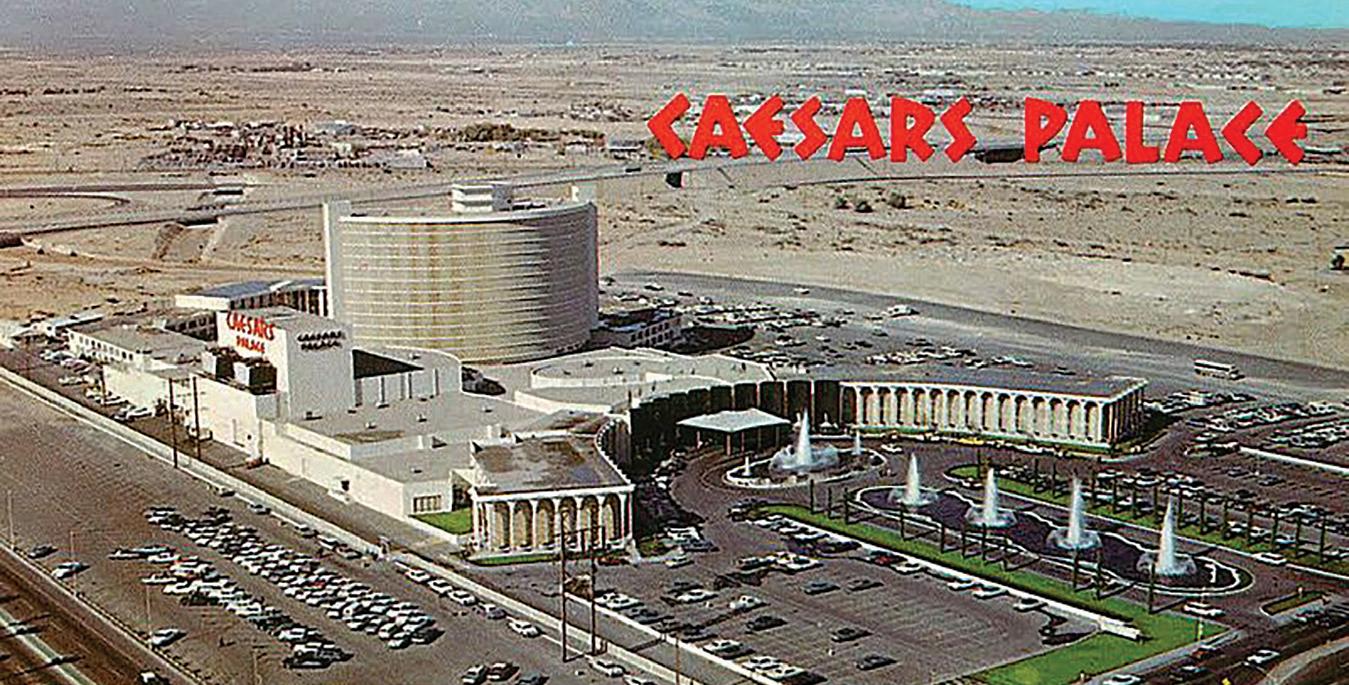
retail ringing the spaces. Wynn once said that 'if you could find an original Caesars Palace ground plan and overlay The Mirage, they’d be almost identical.'” Alan Feldman, longtime executive at Mirage and MGM.
The Mirage, with Siegfried and Roy’s influence throughout the resort, dolphins in the rear and landscaping throughout, the fantasy was pervasive. Moreover, the model worked as a new generation of customers found Las Vegas. The Mirage was the catalyst for the children of the Golden Age to discover Las Vegas. Between 1988, the year before the Mirage and 1990, one year after the property opened, visitor volume rose by nearly 22% and gaming revenues by over 30% equating to nearly $1bn, most of which is attributable directly to The Mirage. Gaming numbers were broken and matched by record nongaming revenues, thanks to the thousands of occupied rooms, casual visitors, show tickets and restaurants.
The Mirage proved the case for the Las Vegas megaresort, paving the way for 14 new resorts to open in the subsequent decade, including the return of Kirk Kerkorian, with the 5,000-room MGM Grand opening in 1993 and Wynn’s own Bellagio in 1998, arguably the most iconic resort to open in the history of the city, but clearly iterative from The Mirage.
Between 1988 and 2000 Las Vegas’ visitation had doubled from 17 million to 36
million, and gaming revenues increased by 145% from $3.1bn to $7.6bn. The Mirage reinvented the casino resort, brought in an age of new investment, development, and a new generation of customer. Wynn’s place in legend was secured as Las Vegas became not just a boom town, but a boomer town.
Alongside the Palazzo addition, the 7,200-room Venetian make it the largest resort in Las Vegas. It also runs one of the highest occupancy rates and upper-tier ADRs. Moreover, it changed the business model for nearly every Las Vegas casino resort and the trajectory of the city.
Unlike casino owners of the period, Sheldon Adelson wasn’t a casino guy. He wasn’t even a hotel guy. He was a conventions man, building and selling COMDEX, parlaying his fortune into constructing The Sands Convention Center and latterly The Venetian hotel and casino, opening in 1999. The logic was that, if convention delegates would spend over $200 for a room in Orlando, Chicago or New York, why wouldn’t they do so in an all-suite property in Las Vegas, where $49 rooms were as ubiquitous as the city’s famous buffets. The Venetian had neither.
Although the LVCVA opened the original Convention Center in 1958 with the mission of filling midweek occupancy, For Adelson it was the primary business. His Venetian
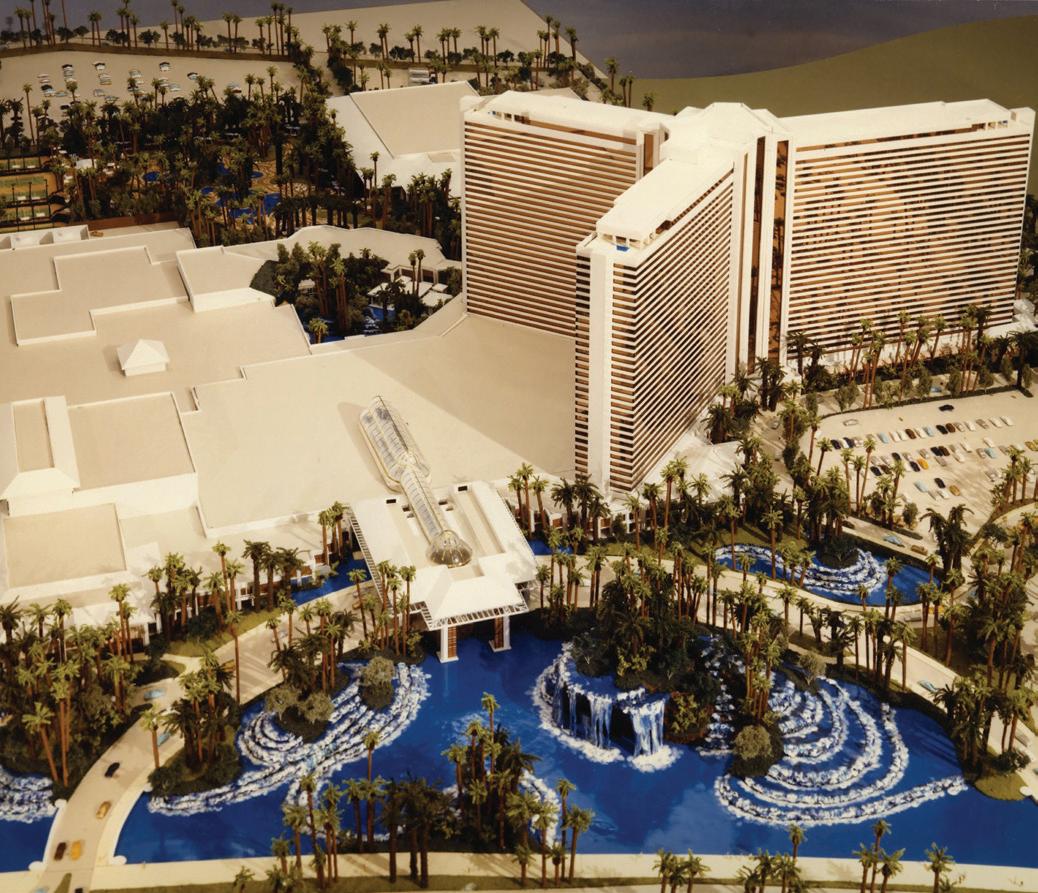
was the first fully integrated resort, with shopping mall, convention center, casino, showrooms and many other amenities planned. Unlike established resorts that operated vertically, at The Venetian, many units were leased and therefore operated by third parties.
In 1988, the year prior to the Mirage opening, the casino department generated over 57% of revenues across the Strip. This was 50% in 1998, 39% in 2008 and 34% in 2018, despite gaming levels increasing in almost every year. Convention visitation grew from 1.7 million in 1998 to 6.5 million in 2018 and conventioneers became the second-most important customer segment behind high-value gamblers.
Las Vegas today has over 10 million square feet of convention space, with nightclubs, restaurants and considerable outdoor space all utilized to meet the needs of the 22,000 meetings and conventions that are held in America’s convention capital. The Venetian was the first true integrated resort built where the casino was not the economic engine. Adelson pitched his conventionscentric model to regulators in Macau and Singapore, however his business model was skewed due to the surfeit of gamblers in that region.
The adage that you could take gaming out of Las Vegas and the city would be okay, but if you removed conventions, we would have a problem, was tested in the Post-Covid
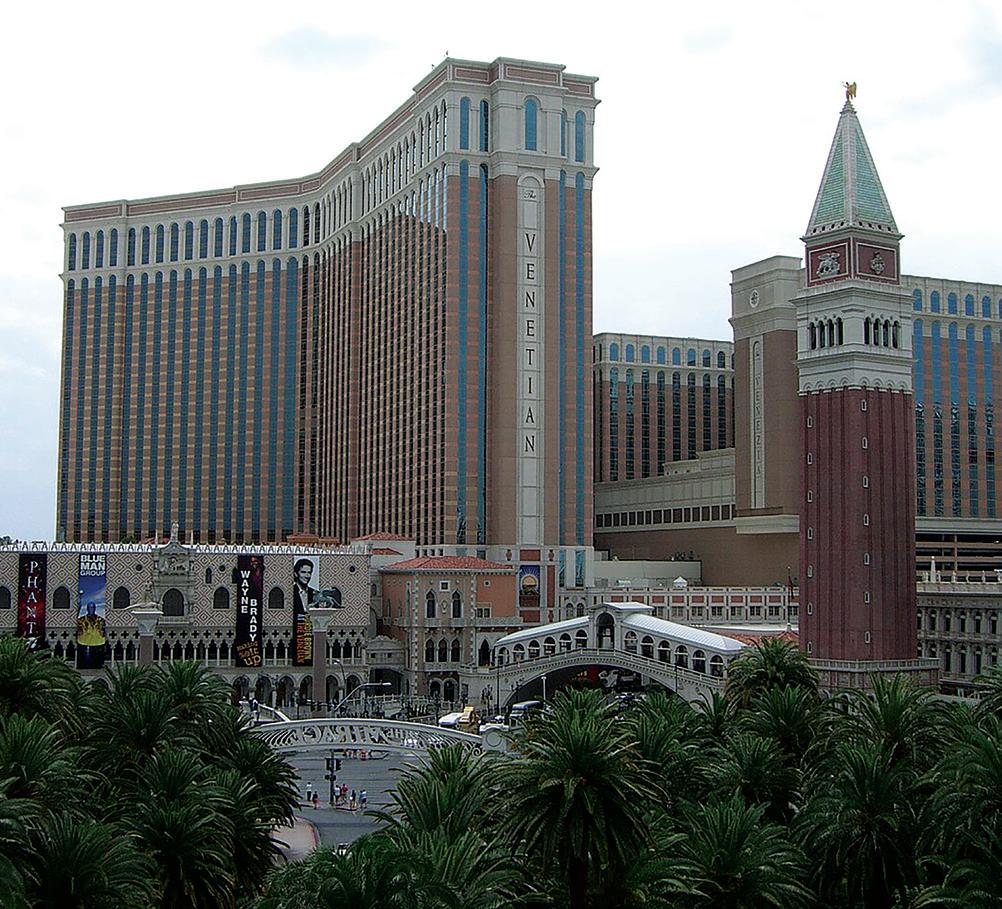
market. In 2022, Sands sold the Venetian to VICI and private equity group Apollo for over $6bn. The pair recently announced a $1bn investment to the asset.
The impact of The Venetian is evident. Prior, casinos used non-gaming attractions as secondary revenue generators and to feed the casinos. Instead, the Venetian saw those aspects as the core business. This focus on corporate business and non-gaming customers undoubtedly enabled the introduction of sports and other investment to Las Vegas, notably The Sphere, possibly the most exciting and iconic destination on the planet, and one connected directly to The Venetian.
In the new century, Las Vegas was a winning bet. The Venetian’s success prompted the addition of the Palazzo, Wynn added Encore, MGM ‘s investment was in the $9bn City Center complex, Boyd imploded The Stardust to build Echelon and Elad cleared the site of The Frontier for The Plaza. The cranes and topped-out shells of Fontainebleau and Cosmopolitan were visible to all.
Corporate management had identified a need to capture the younger customers that could be found partying at The Palms and Hard Rock, but the unlikely hero of The Great Recession was The Cosmopolitan, completed by Deutsche Bank, who had assumed control of development after debt default by Bruce Eichner. Planned as an apartment complex with over 3,000 rooms, no casino database, and built on the narrow footprint of 8.5 acres, just slightly larger than the Bellagio fountains that it overlooked, operating this property was going to be a challenge.
The first property aimed squarely at Gen X, those born between 1965-1980, and defined as “The Curious Class” by property leadership. The resort had a different feel than the market counterparts. It was more… cosmopolitan, partly by necessity and partly by design. The design aesthetic was contrary to Roger Thomas’ Chinoiserie found in Wynn and Bellagio, rather architects Friedmutter, Rockwell and Arquitectonica emulated the

contemporary notes found in density heavy locations. This appealed to customers that were comfortable with urban living.
Opening without a large showroom, up-and-coming talent was sourced, offering a smaller stage to the likes of Adele and Ed Sheeran, known to the cool kids but not their parents, who were accustomed to Celine, Rod and Elton playing at Caesars. Strategically, The Cosmopolitan used F+B as a revenue platform, as well a marketing one, bringing in acclaimed brands and dining experiences found in major international cities. Like many past projects, customers were challenged, how do you feel? The answer was young, cool and sexy. But the weren’t gamblers. Yet.
In 2015, Blackstone acquired the resort. With new ownership came new management, and tweaks were made to the casino floor, additional gaming customer-focused room product was completed, a showroom was added and tenant changes were made. The younger customers discovered a Las Vegas for them, as their parents and grandparents had done, and like them, as their disposable income grew, they aged into gaming cutomers.
In 2009, the year before Cosmopolitan opened, 27% of Las Vegas Visitors were under 40, with an average age of 50. 22% were over 65. In 2023, this was 41% under 40, with an average age of 43.8. Only 8% were over 65. Today, when Ed Sheeren comes to Las Vegas, he plays at The Allegiant Stadium, and Adele has replaced Celine as the superstar resident at Caesars Palace.
The market has moved.
The Cosmopolitan was the most visual catalyst in attracting the next generation of customers to Las Vegas, and they came in record numbers, securing the relevance of the city for another generation and ushering a new phase of development.
***
In offering these resorts as those that changed Las Vegas, we have a journey spanning generations, built by owners with a variance of experiences and backgrounds. In resort development today we can be overly myopic in looking at the existing market and seeking to replicate the existing offer, just applying nuance. This can be highly successful, but in doing so, the resorts must be better that the competitive set at attracting both customers and their loyalty. Many have failed at doing so.
However, by identifying a segment where there is unmet demand, whether by demographics, psychographics or functional need, there are always opportunities in the competitive environment of Las Vegas. Maybe, when reviewing this selection in a decade there will be another challenger in the next cycle, as the only certainty is change.
Oliver Lovat is the CEO of The Denstone Group,thatoffersstrategicconsultancyin casino and hospitality development. His research topics are Las Vegas Customer BehaviorandTheEvolutionofCompetitive Strategy Within Las Vegas Casino Resorts.







Gaming America speaks with Bluberi CEO Andrew Burke and CPO Mike Brennan on the supplier's journey under Burke and how its new office space represents the company’s past and future.



Bluberi has opened a new office space in the Las Vegas area after originally moving from its founding city of Drummondville, Quebec in Canada shortly before the Covid-19 pandemic. The supplier has been in business for over 30 years but began a new period of growth after hiring Andrew Burke as its CEO in January 2020. Gaming America spoke with him, and also CPO Mike Brennan, at the new offices.
Could you go over the journey Bluberi has been on since you took over as CEO and any possible lessons you might have brought over from your time with AGS?
Andrew: I learned a lot in my previous life with AGS. We went through a similar growth story and there was a great management team there, too, which helped turn that business around. I joined Bluberi in early January 2020. I knew Bluberi and I’d worked with them in the past in my previous role. I was familiar with the team and knew they had a rich history of building good games at high quality and a really artistic team. The graphics and animation were always top notch, so I was really excited to take the job, to come work with that team.
I got here in January 2020, it was right before Covid and my initial assessment was that we had a very talented team, but we needed to pair it with some more sales, operational execution and product management to help them understand the market and what was going on in the business. That partnership really has flourished over the last several years.
We talk about the business like a five-act play. The first act was the history and the founding of the business, which happened 20-plus years before I even got there, where they developed this great skill set around games and understanding the business. Then the second act, we call it the turnaround, is really when the business repositioned itself and said, ‘Okay, what do we want to be in the future and how do we want to be that?’ We decided we want to be a major competitor in this space. We started building a future that could allow us to do that. That’s what we’ve done the last several years; get the right people, the right teams, the right resources, build the right number of games, the right quality of games and it’s been pretty amazing to watch.
Did joining as Covid-19 was about to hit create any challenges specifically for you and Bluberi?
AB: I think it created a lot of challenges for everybody. I think in some ways, as I look back on Covid, there was a lot of good that came out of it. It allowed us to reset the business quickly because you had to. That allowed us to make some hard decisions early and we drove those. It allowed us to refocus. It also made some talent available in the business, too, that maybe wouldn’t have been available. It was a good time for people to say, ‘Hey, I want to do it. I want to do something different. And I want to make a change.’
How will this new office space help towards the future of Bluberi compared to your previous office? What enhancements is the company looking to make now that you’ve officially moved in?
AB: We’ve always been trying to think carefully about everything we do and do it in a quality way. So as we thought about the office, we considered who is going to use the office and what purposes are they going to use it for? We want it to be a showcase for customers and our products. Not only customers in Nevada, but customers that come in from out of town. We wanted to have a space where we can show them our product, and show them our story in a way that’s not haphazard and crowded. We wanted a productive space for our office employees and our warehouse employees so they can feel comfortable and do their best work, that would reinforce the culture. We’ve done the first part of it, which is to design and create it. Now we have to live it and use it. It’s been pretty fun to see it come to life. It’s a little bit like walking into a dream.
Mike Brennan: It’s emblematic. We have a lot of phrases we like to say
internally and intentionality is one. We even took time off of this site to whiteboard and lay out how we would do everything. Andrew had a really good idea of taking the executive areas and separating them so that we don’t have this intimidating executive row. Everybody was in a row in the old space so now we’re each in different corners and our disciplines spar from that. When we walk into a retail shop, there’s so much intentionality in the environment and we’re just trying to recreate that a little in where we decided to place people.
We noticed the new warehouse space. What are the main differences between what happens there and your multiple creative studios?
MB : From the warehouse and operations to research and development, they can’t be much different. One’s at the front-end of the process; the other is at the tailend but both bring streaming value to the entire process. Both starting and ending with the custome. But it’s completely different roles and skill sets; even structure. It’s coming up with ideas


















































and creating the hardware, technology and games.
Then our teams out there are actually feeding in the process. They’re the subject matter experts on the end user. So we’ve had a good opportunity to get their input on things like new cabinet design. One thing that, again, we’re trying to do here a little differently is be very thoughtful, be inclusive and really do a lot of research and let data drive things.
Operations and the warehouse area that you point to has been instrumental in giving us input on how to best create our products, even how to manufacture it more efficiently. It saves time, it saves money and, of course, how to make it more friendly to the end user. How to make it easy to procure parts. I started saying they’re pretty far apart, but they can come together and it’s powerful when you bring different groups together. That’s what we’re trying to do here as we grow: make sure we collide different parts of the business, because you can learn a lot from each other.
into a new product segment that we call Premium. Basically where we have the asset, we have merchandise, the cabinet and then we place it, in commercial terms, in a property and we call that Beacon Elite. We showcased it at the last G2E. It launched a world premiere in April of this year, and now we’re at a good example of the back of house and front of house working together. Now we’re just getting it out, we’re shipping it, installing it. We’re doing an install a day almost across North America. So that’s been a big focus for us with Devil’s Lock All In and a commitment to the product line we call Elite. Outside of that, we’re in the for-sale part of the business. A lot of titles are coming up, we’re excited about one called TimberJack. It’s a good thread to talk about because it’s an old Bluberi brand, it includes a lumberjack character. It’s still one of the most popular Class II games in Alabama, and so we brought it back to life and gave him his second sequel. It’s called TimberJack Going Wilder. We’re really excited about this game and think it could be really buzzworthy in Q3, heading into G2E season and the rest of the year.















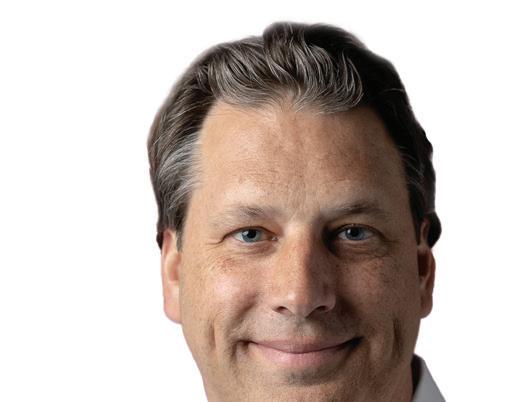






























AB: This office was born to allow Drummondville to be focused on game development, as well as research and development (R&D). They were doing a lot of things up there; they were manufacturing and all these other things. It can kind of disperse the focus of what you’re trying to do. So Vegas really developed and expanded into the idea of letting Drummondville focus on what they want to be great at. Then we can do the other things here that maybe they didn’t want to necessarily do over there. And I think that has helped us as we’ve opened these other studios, whether it’s Reno, Austin, etc. It’s born out of an idea to find a creative team and allow them to focus.





































































































































MIKE BRENNAN Bluberi CPO
Are you able to tell me about games Bluberi is currently working on? Or possibly a review of games that were released recently?
MB: The big news recently is we got
ANDREW BURKE Bluberi CEO
We note that you closed on some financial backing recently to the tune of around $55m. Are there certain sectors the money will be going towards?
AB: For us it’s about continuing to invest in R&D, in our business. We want to be flexible and take advantage of opportunities that come up in the market, whether that’s talent or new jurisdictions, new product lines or new markets. So that financing was just a step to help us do that, and to help us be flexible with our capital structure. It’s exciting. It’s like a rite of passage for the business to be in that place. For three banks, Citizens, who led the deal for us and then two Nevada-based banks, Western Alliance and Bank of Nevada, to come in and be able to participate was awesome.
Going back to products, what do you both believe helps Bluberi stand out? Is there feedback from customers about certain features they enjoy more than some of your competitors?
MB : Everybody’s trying to do that and I think we’ve been successful in showing why we’re making the product. Just being more open and transparent with our customers has helped them understand what we’re doing and why we’re doing it. There are a lot of potentially complicated answers to your question. We’re basically making games for players and not making games for us, not making games for executives. We’re not even really making games for our operators but we definitely are making sure it adheres to their requirements. Whether it’s their max liability or what they would want to see in configuration and optionality. But really, at the end of the day, we’re trying to make games for our players. We’re trying to make them engaging, fair and that requires a lot of different mechanics. If someone were to sum up a Bluberi game, it’s engaging. It has world-class presentation and animation. It’s well thought out, hopefully, in the way it was conceived and designed. We just let our
creative people put their heart into it, with some restraints. We have a lot of phrases like creativity within confines, but also they have to put it where it matters. So they have to put the art, the sound and the math into the focus of the game. The short answer is fun. The long answer is just embracing the process, embracing the creativity in the process together and then trying to create some unique looking and immersive player-focused games.
You’ve mentioned you’re building games for the consumer. Do you factor in people that play less slots and might be more sports-focused when you’re building games, or do you focus more towards people who already come for the games you build?
MB: Players that are good gamblers and your repeat players are who we should be targeting. And we are. But there’s some good philosophies our team has: if you’re going to notice anything, it’s the art package and the way a game looks. What we’re trying to do is make it interesting, but make it broad enough to appeal to everybody.


Is online gaming something Bluberi would look towards in the future?
MB: Our core focus of the business is that we’re only operating in 50% of the markets in North America, so we want to focus on that. But we do want to build a future where we’re participating more online. It’s just an ancillary focus right now, not the primary focus. One of the things we’ve done very well at Bluberi is be very, very focused on what we’re doing. But we’re certainly having lots of discussions about online and how to position ourselves to take advantage of it. I wouldn’t say we have all the answers yet.
Finally, what are your future goals for the rest of 2024?
AB: For us, it’s always about executing on our business plan. We want to get into new jurisdictions, we’re only in half of them. We’re not satisfied just being a company that’s at our level. We want to go to the next level. So for us, it’s about how we build


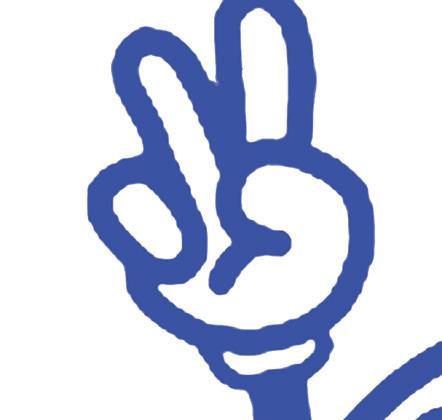




tend to like that, but would you the future and the bridge to get there.


genders, ages.Not getting

about a steampunk style game









All demographics, genders, ages.Not getting too narrow and doing a joke about a steampunk style game or something like that. People tend to like that, but would you engage with that? Would someone’s grandmother? So we are focusing on the core gambler, but we’re also trying to make the appeal of the look and feel broad enough where you can spot it from 30 feet away.
























The Soloviev Group, in collaboration with Mohegan, continues to wait on the NYGC for approval on its Freedom Plaza project. Gaming America spoke with Soloviev Group CEO Michael Hershman to learn more.
In an effort to shy away from the flashing lights and eventful displays one would imagine in the gaming capital of Las Vegas, the Freedom Plaza project in East Midtown, Manhattan will choose to feature a 280,000 sq ft underground gaming area. The project is headed by the Soloviev Group in collaboration with Mohegan and designed by the Bjarke Ingels Group (BIG). Soloviev Group CEO Michael Hershman has been focused on steering the project towards high-class consumers and mixing all aspects of entertainment within the gaming space.
Hershman believes his product would generate heavy tax revenue for the state, including fees amounting to $500m per license granted. While the Freedom Plaza would be focused on entertaining New York’s elite, tax revenue in the state would be a positive for all residents, he argues.
Having been named CEO in 2021, Hershman keeps an eye on the competing markets surrounding New York and within it. Key business figures such as Steve Cohen have bids to open sites in the state along with the Soloviev Group, with Cohen’s $8bn Metropolitan Park project planned to reside near Citi Field in Queens, home to Major League Baseball franchise the New York Mets. Cohen bought the Mets in 2021 and now has hopes of enhancing the area surrounding the stadium in partnership with Hard Rock International.
However, New York Senator Jessica Ramos issued a statement on May
28 saying she would support the development of a hotel, convention center and/or public space outside of Citi Field, but not a casino.
“I will not introduce legislation to alienate parkland in Corona for the purposes of a casino. Whether people rallied for or against Metropolitan Park, I heard the same dreams for Corona,” Senator Ramos said. “We want investment and opportunity, we are desperate for green space and recreation for the whole family. We disagree on the premise that we have to accept a casino in our backyard as the trade-off. I resent the conditions and the generations of neglect that have made many of us so desperate that we would be willing to settle.”
Cohen has yet to comment on the statement, but it can be assumed he will attempt to find other outlets for his casino, especially due to the already agreed upon partnership with Hard Rock International. To bring gaming and betting aspects to its own property, the Soloviev
Group partnered with Mohegan and in association, Mohegan Digital, the iGaming resource Mohegan offers. In 2021, Mohegan partnered with FanDuel to bring a sportsbook to its Mohegan Sun property in Connecticut. Mohegan Digital has not yet been made available in New York, though FanDuel began accepting
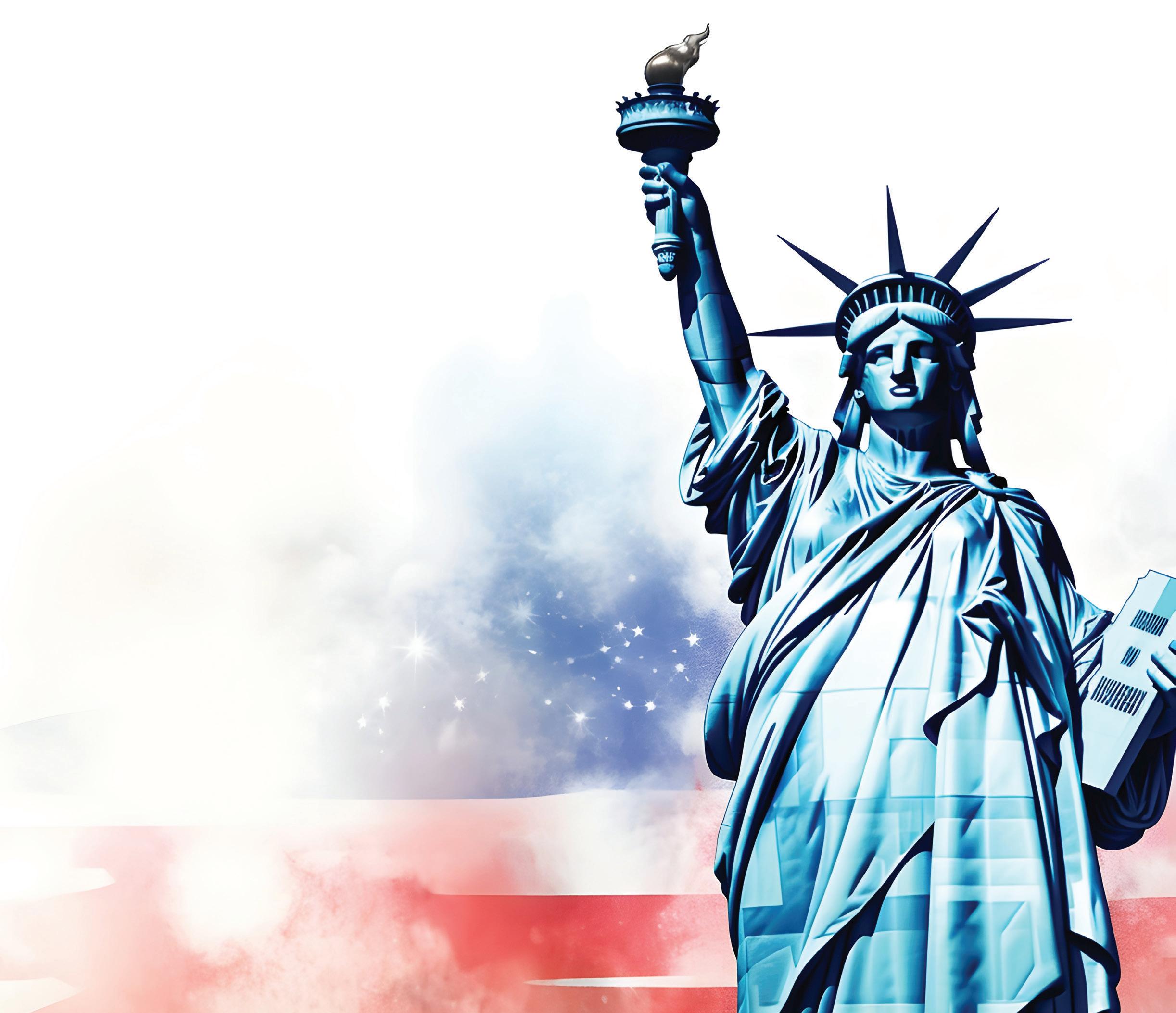

wagers from residents in 2022.
Sportsbooks in New York have become a near necessity with the amount of sports teams currently located around the city. Baseball, hockey, basketball, soccer and football teams are all situated in various areas of the state. The New York State Gaming Commission announced that it is likely to begin considering applications for three downstate casino licenses in late 2025, which came as a surprise to both the Soloviev Group and Mohegan. Original hopes were that deliberations on all applications would come in the second quarter of 2025.
Hershman was disappointed with the delays, but believes things are headed in the right direction and progress continues to be made, albeit slowly. This is a point he also recently emphasized on the Huddle While delays occur with projects of this magnitude, it does hinder how quickly New York can adapt to growing industries for casinos, sportsbooks and resorts in general. For the state of New York especially, any delays can leave
New York falling behind the areas that surround it.





























































betting continues to rise in New York as well, and giving residents a retail location to place wagers could see potentially high returns for any resort willing to do so.











































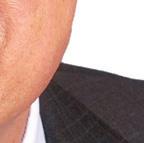



MICHAEL HERSHMAN
Soloviev Group CEO
residents of those states will travel into the city despite already having casinos and resorts close in proximity.
“We find that residents in states such as New Jersey, Connecticut or Pennsylvania will come into the city anyway because of what it has to offer. We’re going to offer a complete entertainment space that
Atlantic City, NJ could specifically pose a challenge to any ongoing casino projects in New York as a historic site for gamblers and tourists in the tri-state area. However, Hershman says the clientele Atlantic City receives isn’t the type Freedom Plaza intends to attract necessarily. His ideal space will host high rollers and upper-class guests looking to take advantage of the various forms of entertainment.
Gambling and casinos are coming to New York due to the high level of interest residents of the state and visiting tourists contain for the industry, whether it be the Soloviev Group’s Freedom Plaza project or Steve Cohen’s Metropolitan Park. Las Vegas may be the gaming capital of the world in Hershman’s eyes, but New York City could hold the greatest chance for opportunity out of any location in the US.
Mixing hospitality, entertainment and casino play is the first step in creating high-end, attractive properties in the


When asked about potential competition in neighboring states such as New Jersey, Connecticut and Pennsylvania, Hershman expressed belief that, because of New York’s popularity,
a complete entertainment space that works directly with New York City’s pre-existing attractions,” Hershman said. While the entertainment in New York does entice tourists and locals each year, boots are already on the ground when it comes to casinos and resorts being run in those states. Online sports

share the same level of enthusiasm?
city that bring consumers of the stature Hershman is looking to entice. The Freedom Plaza is one of many ideas that could blossom into a space that flourishes and redefines what the gaming industry means in New York City. Will the region's politicians, however, share the same level of enthusiasm?







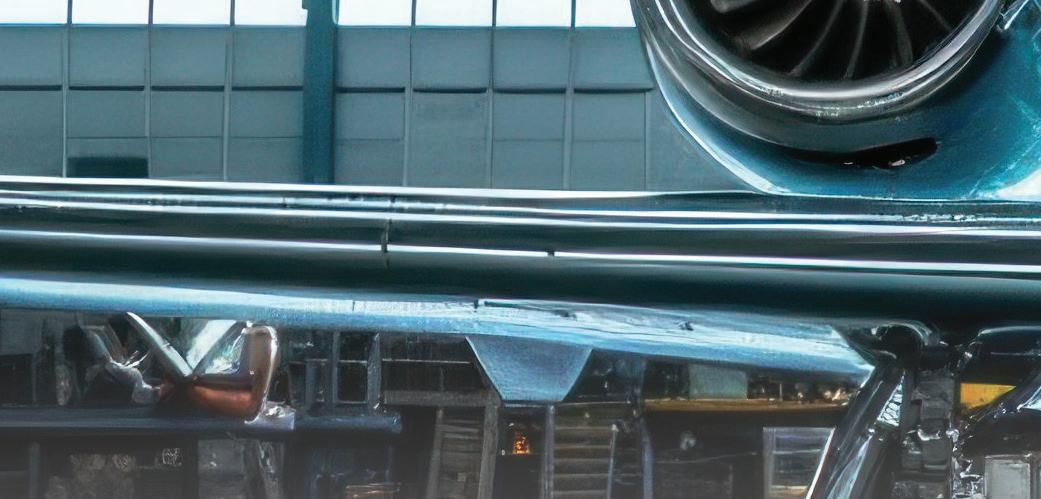


A state of neo-IPO: Gaming America investigates, as more and more companies come off the public market.
Once is an accident, twice is a coincidence and three times is a pattern. But what about several gaming companies involved in deals to go private within a year? Going public used to be the ultimate goal for a start-up. Now things seem very different...
Following an interesting period for Bally’s, Standard General stepped in around 2016 and took an ownership stake in the company. Following this, the investment firm’s Managing Partner Soo Kim became a Member of the Board, and then later Chairman in 2019, when he led the operator through a period of rapid expansion; as well as making several bids to take the company private. In 2022, it made an offer to buy Bally's at $38 per share, at a time when Bally’s was valued at well over $2bn. Now in 2024, after Fitch Ratings downgraded Bally’s credit to a ‘Negative Outlook’ with rumors circulating that the operator didn’t have


the funds to finish the Chicago casino, another bid was submitted, this time at $15 per share. While this was a strategic move from Standard General, it was still heavily criticized by many investors.
K&F Growth Capital quickly released a letter to the Bally’s Board of Directors. Even though the $15-per-share offer was above the $11-per-share trading price at the time, the asset management firm still believed it undervalued the company. In the letter, K&F argued that “this undervaluation is for an obvious reason: the market has lost confidence in the company’s current strategy and financial stability. The company’s share price has declined ~45% over the past year, and its bonds currently trade at a ~28% discount to par.” As such, it believed Soo Kim and Standard General were trying to “exploit this weakness and acquire Bally’s at a fraction of its fair value, using as a source of funds Bally’s own already overstretched balance sheet.”
Even though this deal currently remains uncertain, with very few details making it out of the boardroom, it’s left Bally’s in a precarious situation. If the operator accepts the offer to go private, it will be doing so with the knowledge it had rejected a previous offer worth 2.5x more. However, if it rejects Standard General for a second time, it has an awful lot to prove.
The business saw an 18% fall in its NYSE share price when it published its Q3 reports in November, where it explained that it would lose $60m at the EBITDA level last year, $30m this year and expect to break even in 2025. In its latest Q1 report, its consolidated revenue was up 3% to $618.5m, but its net loss was at $174m. It remains to be seen whether Bally’s will go private under the company that supported its rapid expansion for the past decade, or whether it believes it can turn things around under the scrutiny of the public eye.

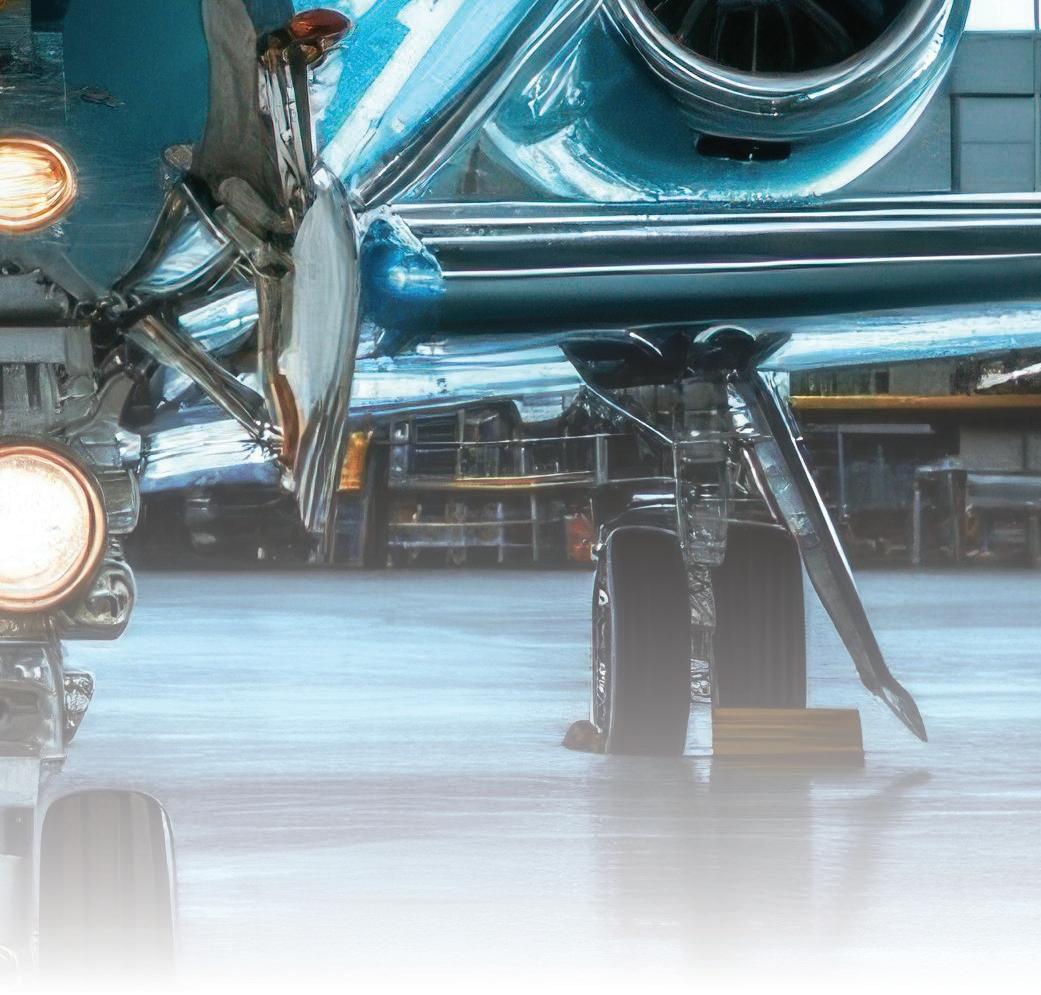
Meanwhile, Endeavor made going private look easy. The group revealed on April 3 that it was being acquired by Silver Lake, a technology investment firm, and would be taken off the public market. Although the initial agreement was for $27.50 per share, once the value from the TKO merger between the UFC and WWE was accounted for, this rose to a staggering $25bn total consolidated enterprise value. If the acquisition is closed by Centerview Partners without any issues, Silver Lake claims this would make it the “largest private equity sponsor public-to-private investment transaction in over a decade, and the largest ever in the media and entertainment sector.” While the announcement was a shock to many, it hardly came out of the blue. Over the past decade or so, Silver Lake invested more than $3.5bn into the company, with both parties mentioning the longstanding business relationship as a key reason why Endeavor grew from $350m in annual revenue to where it stands today. So if




Endeavor was doing so well, why was it going private?
Well, Endeavor went public in 2021 during a time when the market was still struggling with the Covid-19 pandemic; many companies were simply trying to stay afloat, let alone consider any major business changes. Despite closing on its first day as an IPO at $25.20 per share, the price steadily declined throughout 2022 and 2023, until it hit a low of $17.97.
Of course, this was also during the SAG-AFTRA writers’ and actors’ strike, which impacted the company quite severely. During its Q2 earnings call, CFO Jason Lublin estimated that the strike

affected its revenue by $25m per month, while CEO Ari Emanuel expected the action to last “months, not days.” Even after the SAG-AFTRA strike was resolved on November 9, Endeavor still wasn’t in the clear. Only two months later, in January 2024, its WWE brand was thrown into the headlines when its founder Vince McMahon resigned amid various allegations made against him.
So while Endeavor was only public for three years, each year was marked with its own distinct struggle that affected the company in unique ways. Rather than it being a reflection of the gambling industry as a whole, it seems like Endeavor had
"WHILE THIS WAS A STRATEGIC MOVE FROM STANDARD GENERAL, IT WAS STILL HEAVILY CRITICIZED BY MANY INVESTORS."
simply not enjoyed being publicly traded. In the middle of the strike on October 25, the company said it was “exploring strategic alternatives.” Even if the public market hadn’t understood Endeavor’s vision, Silver Lake did, saying it would take it private again because it “firmly believes in Endeavor’s business”.
It would be fair to say IPOs are perceived differently than they were 20 years ago. In the business world, going public has been one of the symbols of ‘making it’ – the company is large enough, stable enough and, most importantly, it has enough potential to carry itself as a public offering. However, it seems like this is no longer the case, and we question
In the gaming and esports scene, FaZe went public in July 2022 with an initial valuation of $725m. However, it quickly became clear that the company couldn’t concurrently balance the interests of shareholders, fans and workers and that valuation plummeted to $47m by the time FaZe went private again on March 8 2024. For a while, IPOs weren't even the gaming's prefered method of going public (remember the SPAC phase?).
It’s not just the gaming scene either, but the traditional corporate companies too. Many are still dealing with the aftermath of WeWork, a company that provided both places for other companies to work from. Even though the company was valued at $47bn in 2019, it couldn’t survive the tidal wave of controversies that its Co-Founder Adam Neumann would throw its way.
"SO WHILE ENDEAVOR WAS ONLY PUBLIC FOR THREE YEARS, EACH YEAR WAS MARKED WITH ITS OWN
Of course, no-one needs reminding about Uber’s first day of trading, which saw the market cap crumble from $120bn to $82bn in what’s known as ‘the worst first-day loss in US history’. With so many big companies failing under the scrutiny of a global audience, is it any wonder that amid a changing gambling landscape, some of the companies might want to bow out and navigate future waters with fewer eyes watching their every move?
whether this has anything to do with a few recent high-profile IPO blunders.
For too long, the image of the IPO was steadfast. That’s not to say that it was ever spotless, but in the past decade in particular, there have been several companies rocking the proverbial boat and highlighting some unique flaws along the way.








If you have even a passing interest in IPOs, we highly recommend reading the WeWork S-1 filing if you haven’t already. Its organization charts don’t make sense, over 10 pages discuss Adam and his family and the adjusted EBITDA is listed as -$666m.
On July 11 2024, WeWork announced that it had emerged from Chapter 11 and had announced a new Board of Directors.


It's not necessarily just fewer eyes, either. It's not about having something to hide. It's about agility and not being held back by so many layers of decision making. Indeed, almost exactly one month after Endeavor reported its acquisition, PlayAGS announced that it was being bought by affiliates of Brightstar Capital Partners in a deal valued at $1.1bn. The move was unanimously approved by the company’s Board of Directors, which will see shareholders receive $12.50 per share in cash at a 40% premium to the share price on May 8. Interestingly, after this report was released, PlayAGS canceled its conference call to discuss its first quarter 2024 financial results and doubled down by saying, “AGS will not be issuing a quarterly earnings release”, although it did state it would file the report with SEC. Speaking of that SEC filing, it’s nowhere near as solicitous as you might imagine considering AGS refused to publish it at first. Its revenue was up 15% year-onyear to $96m, income from operations rose 69% to $19.8m and its net income surged 1400% from -$334,000 to $4.3m.
To properly examine PlayAGS, though, you need to look further back than just one quarterly report. You no doubt






noticed that major improvement on that last figure discussing the net incom, and, well, this is the first time it’s been in the green since 2019. In 2022, net loss was $8.04m, in 2021 it was $22.6m and in 2020 it was $44.2m. In the midst of this, AGS refinanced its $521.2m and $93.6m term loans due in 2024, which it managed to do by extending it to an aggregate principal amount of $575m due 2029. So it’s fair to say PlayAGS has been in a delicate situation for a long time and perhaps going private was the best path forward for the company. In a comment made regarding the deal, Andrew Weinberg, Founder & CEO of Brightstar, said: “We look forward to working with David and the AGS team to capitalize on opportunities by taking a long-term approach to creating value.”
off-guard to learn that it had gone to the private equity-backed Lottomatica for $694.8m.
Even though Playtech is a solid and well-respected company, it begs the question of whether its public share price played any role in the acquisition going to a different player or not. Of course, the accountants involved in the decisionmaking process would have access to all of the company figures, whether they were public or not, so we don’t need to pretend that a private company is safe from having a low stock price at the time of a deal. On the other hand, it would also be naive to pretend that being fiscally perceived so publicly would have no knock-on effects either.
But what are some reasons a company might not want to go public? Well, as we previously mentioned, the gambling industry is in an era defined by regulatory changes, evolving demands and emerging markets. In short, we’re in a period of change, which is something rarely reflected well in quarterly reports. If the Board of Directors really believes in taking a company in a particular direction, it’s much easier to chase that dream if you don’t have external investors and shareholders analysing every step you take (no Police pun intended).
London Stock Exchange, this had fallen

Playtech had made no qualms about the fact it was looking to purchase the Italian gambling group SKS365 in 2023. The company made statements to the press, and the proposed figures of $613.5m were leaked pretty soon afterwards. However, this escalated into a bidding war between Playtech, which had a market capitalization at the time of $1.8bn, and Flutter, which had $30.4bn. Not only was it already an uphill battle, but Playtech’s shares were at the lowest they’d been in years. With a spike in value at the end of 2021 marked at £7.45 ($9.44) on the London Stock Exchange, this had fallen to £3.70 by October 2023. So it was no surprise when the SKS365 deal didn’t go to Playtech, but it did catch some




accelerator, not an absolute necessity,
There are also plenty of companies that have stayed private, no matter how big they get, such as bet365. On May 3 2024, Games Global confirmed the launch of its IPO but cancelled the move only hours before it was due to go live on May 13. The prices were expected to be around $16 per share, with around six million shares to be sold. On the decision, Games Global CEO Walter Bugno explained that, “meeting with investors during this IPO process has further cemented confidence in our strategy and that what we are building at Games Global is unique. With a strong balance sheet, healthy margins and meaningful growth, an IPO at this point in time was an accelerator, not an absolute necessity, for our business strategy.”
healthy margins and meaningful growth,
with a supportive private




Whether it’s launching a mobile platform with the rising popularity of online casinos or trying a new genre such as crash-style arcade games, these are always going to be considered a risk that might not pay off. That’s not to say shareholders stifle innovation, as going public has often given companies the funds and freedom to go for their goals, no matter what they are; but the nature of this funding has also changed. According to several sources, the number of publicly listed companies has dropped by 52% from the late 1990s to 2016, a figure which has only continued to increase. Also of note, in 2018 IPOs brought in $50.3bn in the tech sectors, while private equity firms invested $130.9bn. This suggests that if you want to really focus on advancing the technology of your product, such as companies in a tech-heavy field like gambling, then you might find more opportunities with a supportive private equity company.











Mattos Filho’s Fabio Kujawski speaks to Gaming America about the uncertainty surrounding Brazil’s roadmap to regulation and the need for a singular gaming authority.
Do you feel that the last ordinance addressing the involvement of the Ministry of Sports in the federal licensing process has managed to shed some more light on the process for operators?
Not really. I believe it has just added another intermediate authority, with a
mandate to approve or deny operators in the application processes, without really adding anything relevant for the process. It seems that what we need is a strong gaming authority, one that holds jurisdiction over the operators and can act as the one in power to oversee everything – from the licensing process, to regulating and sanctioning
"THIS LATEST ORDINANCE CREATES ROOM FOR A POTENTIAL CONFLICT BETWEEN AUTHORITIES IN THE LICENSING PROCESS."
the entities. I think the good thing of an independent regulatory agency is that it applies the regulation without suffering a lot of interference from the executive branch, which I think should be the same for the gaming sector. I wasn’t happy about the last ordinance. I think that it adds unnecessary complexity to the process. It will probably cause some delays in the process as well, because now the Minister of Finance could, theoretically, approve a certain application the Minister of Sports then rejects. Despite all of this, in the end it's the attorney’s office of the federal government that will ultimately decide if the application should be approved or not. This latest ordinance creates room for a potential conflict between authorities in the licencing process.


Do you expect the complex issue of the alternative provincial licenses available in areas like Rio de Janeiro will be resolved before the remaining ordinances are released, if at all?
The licensing process is already ambiguous and complex, especially when you consider the problems presented by the alternative provincial license as an option for operators in places like Rio de Janeiro. I don’t think that the remaining ordinances will address this issue. However, something interesting is that the 14 790 betting law has determined that an operator or its conglomerate economic group can only have one federal or state license. Essentially, you cannot have multiple state licenses. Theoretically, what you could do is create independent state operators. The problem with this is ultimately you consolidate the wealthiest regions of Brazil – probably in the Southeast.


Overall, I don’t believe the ordinances that are pending will tackle any of those matters. I think this is still something that will probably need more adjustment further down the line.















One of the key reasons named for the regulation of the Brazilian market is to tackle the black market. What affect do you think these delays will have for black-market operators?






























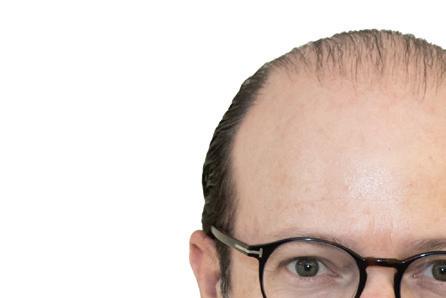





















































FABIO KUJAWSKI
Mattos Filho Lawyer
January 1 2025 is a key date. In my opinion, all the operators that haven’t received a license by this time should be deemed as actually operating unlawfully in Brazil. I already criticized the roadmap to regulation because, honestly, I don’t think there was enough time for companies to incorporate in Brazil while complying with all the requirements; especially without knowing the terms and conditions that we’re still waiting to be detailed in the ordinances that have not come out yet. How can you expect the companies to create policies around anti-money laundering or responsible gaming if you don’t know what the rules are? The original date for a fully regulated market was August 20, but I think they will need more time. What happens then is that with respect to the black market, unless the
Ministry of Finance postpones that date –which I think it should do – but if it doesn’t it will have to start its enforcement against the unlicensed operators. Because of this I think there could be a potential delay on that compliance deadline date. If that doesn’t happen, the operators will have to start working on their internal policies to comply with the upcoming requirements.
For those who don’t apply for a license, they will have to be banned from operating offshore because there will be other licensed entities, paying taxes, paying the license fee – which was not cheap – competing with those that haven’t contributed anything. The Ministry of Finance has an obligation in this area. Honestly, if you ask me, do I think that anything detailed in the upcoming ordinances is going to put companies off the idea of applying for a license? I suspect the answer would be no. The Brazilian market is huge. Whoever actually wants to be in Brazil... will be.
We are still waiting for the ordinances relating to responsible gambling practises –do you think the high licensing fees and particularly the ban on promotional bets are clear indicators that regulation could be strict in this area?
Yes. We have very strict consumer protection law in Brazil, already. In terms of the restrictions for the promotional bets, it seems the whole objective behind that was to prevent players from getting into debt. The same reason why credit cards are not allowed for processing. Both of those things have quite big implications for operators who, of course, use free bets
to acquire new players. However, because of the way the regulation was written, it may eventually allow companies to offer promotional bets to existing customers, but not for new customers. Although, this is just an interpretation. Overall, I think the responsible gaming regulation will be strict in Brazil. I just hope that it is not totally disaligned with international practises.
A regulated market was predicted for July, but halfway through June we are still several ordinances down – what do you think will happen next?
The regulator has been saying that, by August 20, all the ordinances will have to be published. Of course, this is not an ideal deadline because, from the operator’s side, they must make the filing ahead of time to ensure they secure the license by the end of the year, which is a pretty quick turnaround for Brazil. As I said, I think they could potentially get a few things wrong in the upcoming regulations, and I think it’s going to be difficult for operators to influence amendments within new regulations. As we know, there are multiple Brazilian authorities currently reviewing the regulations, which is probably why we have so many delays.
That’s why I keep saying that the sooner we have an independent gaming authority in Brazil, the better: for the operators, for the consumers and for the sector as a whole. There has also been speculation that only one operator has applied for a federal license. I don’t know how true it is, but it’s not a cause for concern in my opinion. People may wonder what is happening, why is there such little movement and so many delays. Well, as a Brazilian myself, I can confirm that
"SOMETHING I CAN TELL YOU FOR SURE IS THAT NO OPERATOR COULD AFFORD NOT TO HAVE PIX IN THEIR SYSTEMS."
it’s very typical for Brazilians to wait until the last day to get things done. Another less cultural explanation is that incorporating in Brazil takes a lot of time. For example, in the US, you can do it very quickly. It’s not the same here. Foreign operators might just be going through the bureaucracy.
Can you explain whether you think foreign operators will have to implement major changes to their internal payment infrastructure to adapt to PIX payments when they enter Brazil?
PIX is a payment system that was designed and is operated by the Brazilian Central Bank. It allows instant payments using certain keys. You don’t need to know the bank account to which you’re transferring. You don’t need to type the numbers. You don’t need to type the name of the recipient of that transfer. You just select a certain key which could be, for example, an individual’s Tax ID number, your cell phone number, email address and so on.
It’s very easy. You have QR codes that are embedded into PIX, and you just open your camera and read the QR code. You already have all the information, and you just enter the amount you want to send. Transactions can be done very quickly, with no bureaucracy and the recipient gets the fund immediately. It has, over the last four years, become the most used payment system in Brazil. Something I can tell you for sure is that no operator could afford not to have PIX in their systems.
There is no way around it. There are many payment institutions in Brazil that are licensed by the central bank and that the operators could partner with. I think it’s a very simple straightforward contractual arrangement and an easy technological set-up. Ultimately you are just buying a solution for payment. You simply plug that solution into the website and you’re good to go. In terms of a challenge, making sure the APIs and the connections between the payment institution and the website is done properly could be one; but other than that I don’t believe PIX is going to be a big hurdle for the operators.

Industry experts answer Gaming America’s burning questions on all things related to Tribal operators and player loyalty programs, including Rymax, CasinoTrac, OIGA, Mohegan and Choctaw Nation of Oklahoma.






























Paul Gordon , SVP of Sales, Rymax
With a career spanning over 30 years, Paul Gordon is SVP of Sales for Rymax. Under his leadership since 2008, Rymax’s sales divisions are responsible for developing innovative loyalty-rewards programs to initiate consumer trials, create increased frequency and attain higher returns. Overseeing the growth of the sales divisions’ accounts, Gordon fosters new client relationships, drives organic growth for existing clients and aligns Rymax’s national brand partners with exclusive incentive programs.
Jeff Baldi , SVP of Commercial Strategy, CasinoTrac
An OEM and Casino Operations executive since 1995, Jeff Baldi heads up Sales & Marketing efforts for CasinoTrac. With extensive experience in customer acquisition, brand management, development, and relationship management, Baldi has led teams ranked in the Inc. 5000 and Deloitte Fast 500, for revenue growth.
Matthew Morgan , Chairman , OIGA
Matthew L. Morgan (Chickasaw/Choctaw) serves as Special Envoy of Governor Anoatubby for the Chickasaw Nation. In addition to that role, Morgan serves as the Chairman of the Board of Directors for the Oklahoma Indian Gaming Association; a Board Member for Global Gaming Solutions, LLC; the Chairman of the Chickasaw Tax Commission; an Associate Justice for the Miami Tribe of Oklahoma Appellant Court, the Eastern Oklahoma Board Delegate for the Indian Gaming Association; a Board Member for the Oklahoma Association of Problem Gaming and Gambling; and a Tribal Advisory Council Member for the National Council on Problem Gambling.
Erica Tessier , VP, Corporate Marketing, Mohegan
Erica Tessier has over 25 years of vast experience in the casino marketing industry and is a day-one employee of Mohegan Sun in Connecticut. Her career with Mohegan Sun includes management positions in departments of VIP Services, Casino Marketing and Consumer Promotions. Tessier was promoted to VP of Marketing at Mohegan Sun Pocono (now Mohegan Pennsylvania) in 2017 where she was responsible for overseeing marketing strategy and execution for all consumer and casino communications. In 2019, Tessier began her role as the VP of Corporate Marketing for Mohegan.
Justin Culp , Senior Director of Gaming Marketing, Choctaw Nation of Oklahoma
Justin Culp is the Senior Director of Gaming Marketing for the Division of Marketing and Communications of the Choctaw Nation of Oklahoma. He provides oversight and strategic direction to the Gaming Marketing team throughout the Choctaw Nation of Oklahoma gaming properties. He also currently oversees the Marketing team and marketing initiatives for all the Choctaw Nation’s Division of Commerce businesses which include 18 travel plazas, 3 Country Markets, the Choctaw Hunting Lodge, several restaurants, commercial leasing, Choctaw Beef and 65,000 acres of ranches and farmland.
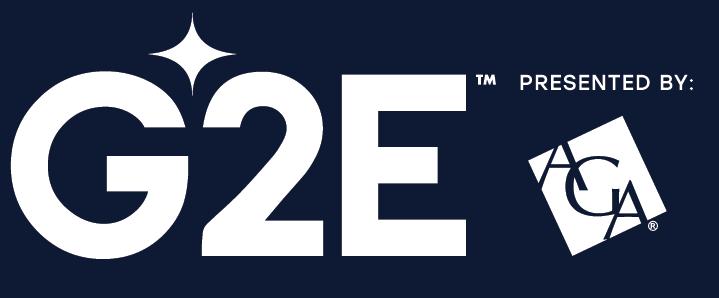
EDUCATION OCTOBER 7–10, 2024
EXPO HALL OCTOBER 8–10, 2024
THE VENETIAN EXPO, LAS VEGAS
G2E is the catalyst for gaming - fostering innovation and driving growth by convening the global industry to define tomorrow. CONVENING GAMING

REGISTER TODAY AT G2E2024.COM/GAMBLINGINSIDER











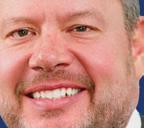











JEFF BALDI: When discussing the acquisition of new players & retention of existing players, the two need to be considered complementary as they’re both essential. At the core, it’s less costly to maintain an existing player database than to attract new players; however, revenue growth is bound to stagnate or decline without a regular influx of new players. That being said, a thoughtful, carefully crafted loyalty program can produce a more fitting player profile, which could aid in reducing unnecessary spending on new and returning players who are not generating the desired revenue. This also can foster more perceived value in the players' minds, in turn creating brand ambassadors who are loyal and vocal. Vocal players can bring about changes that could otherwise go unnoticed based on their feedback alone & a well-integrated loyalty program could bolster ancillary venues at the property.











ERICA TESSIER : Without a compelling loyalty program, it would be challenging to retain and engage guests, and attract new members. Historically, loyalty programs were offered through airlines and hotels; today, consumers will not even consider buying a cup of coffee without a loyalty program! For Mohegan Sun, our Momentum program plays a major role in attracting new players while also allowing us to make sure current members are informed of the variety of perks, promotions and giveaways that we’re consistently providing our members. When it comes to attracting new members, we make sure to have a very detailed and content rich webpage for the program.


PAUL GORDON : The most important marketing initiative for casinos is player loyalty. Casinos are competing with casinos in their market and now many are also competing with online betting. Player loyalty initiates trial and increases play once enrolled. It also serves as a great communication tool to keep the players on top of promotions, offers, entertainment and new games on the floor. Players expect rewards from the casinos and expect good quality rewards that reflect on their importance to the casino and their hosts. Access to information makes it essential that the rewards are top name brands and the latest model available because the players can easily search the item. The days of off-brand products and cheap products with a logo on them are no longer attractive to the player. And with Generation X, Y and Z becoming the core targeted players for casinos this group is brand driven. And with Generation X, Y and Z becoming the core targeted players for casinos this group is brand driven.




MATTHEW MORGAN: In a word, yes. Maybe even more so. Player loyalty programs benefit everyone – guests and operators alike. Our customers benefit whether they are new to a particular property or long-time patrons. Loyalty programs, when thoughtfully utilized, can encourage regular customers in to try a new entertainment or dining offering. You can design loyalty programs to offer a complementary dessert or beverage on anniversaries or birthdays. Loyalty programs can also be used to woo new customers, by offering more points per play for an introductory period, or discounted room nights if the property has a hotel. A well-tailored loyalty program can give all guests a better experience and happy guests are great customers.











JUSTIN CULP : Yes, through loyalty programs you are able to improve the guest experience on repeat trips through offers, discounts, promotions, service benefits, special events and activities.


JEFF BALDI: First and foremost, a tiering system would have to be implemented to reward players based on varying levels of activity and spending, with strong incentives to climb the ladder. En route to climbing that ladder, earn & redeem promotions are a necessary secondary method for motivating players to reach new peaks in play. Your property likely has elements with a high perceived value, whether it’s discounted tickets for an upcoming concert or food & beverage comps at restaurants & bars- sometimes exclusive offers & discounts along these lines can be preferable to simply divvying out freeplay. Additionally, combing through player profiles can generate ideas for player symmetries & events like slot or table game tournaments that speak to segments of your player base. Finally, a multi-channel effort is a necessity in spreading the word & a caring, and knowledgeable staff can keep players informed while also providing players with an avenue to share feedback.




ERICA TESSIER: A positive and fun guest experience is certainly important. A casino loyalty program should be transparent, portable and easy for guests to embrace. These elements have huge impacts on a successful loyalty program and go hand-in-hand with consistently offering exclusive discounts on everything from hotel rooms to entertainment tickets to gourmet meals and gift items.
PAUL GORDON : The very first key element is to get to know your player. What people want and desire changes based on economic or social drivers. We see shifts in category redemptions in all of our programs, so we believe that giving players a choice in what they receive gets the strongest response. Along with choice, give the players a platform to view the loyalty program. Make the platform easy to use with searches by category, by brand and price point. Use the landing page as a key marketing platform to keep it fresh and current. The player loyalty program should have the same elements that any good shopping site has.
MATTHEW MORGAN : One important element to a successful player loyalty is the user interface or platform itself. Is it seamless and easy to use? Is it laid out in a way that makes sense intuitively; are rewards and events easily navigable? If your platform is cumbersome or complicated, people are less likely to want to use it. Next, are the bonuses and promotions meaningful to your audiences? Will a specific offering like free concert tickets yield your desired result – perhaps more time spent on the casino floor before and after the performance? A registration bonus should be robust enough to be exciting and fun. Finally, are the promotions crafted to best benefit your business? Do you offer more points per play on historically low-play dayparts to increase their revenue? These elements are key to a win-win loyalty program.

JUSTIN CULP : It’s important to provide valuable benefits as part of your loyalty program, including ease of becoming a member and aspirational elements that members want to strive for.





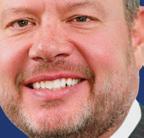







JEFF BALDI: As mentioned,



multi-channel communication is paramount to reaching your player on any platform at any time & leaning into gamification can make even the most basic offerings more appealing. The proliferation of surveillance and business intelligence advancements are continuously creating more nuanced, defined player profiles. Embracing machine learning & various algorithms can enhance personalization in delivering the right strategy to the right player in drastically less time. Furthermore, these same technologies can be used to predict, detect & intervene in security measures of varying gravity including problem gambling or anti-money laundering.











ERICA TESSIER : It is critical to stay current with technology related to player loyalty programs. At Mohegan Sun, we offer on property kiosks for card printing or account information; a personalized online portal for each of our members to view upcoming events and promotions, as well as provide the ability to connect a property Momentum account to an online gaming account in approved jurisdictions. The key is to always evaluate and strategize ways to develop and deliver unmatched experiences for valued guests.



PAUL GORDON : Can anyone survive without their phone, texts or social media? We are now connected 24 hours a day and we are bombarded with information. Information that we seek and information that is thrust upon us by tracking cookies, geofencing and cross-site tracking. Casinos need to embrace that Boomers and every generation after are comfortable with social media and that their player loyalty program needs to use the same tools. Repetition of the casino brand and excitement in the program keep the players accessing the site. Offering new technology products in the rewards program helps make the program current and attractive among all of the other categories.




MATTHEW MORGAN : Embracing new technology throughout the customer experience is extremely important. Our younger guests in particular love technology. The easier we can make something – a transaction, registration, restaurant reservation – the better. Ours is an everevolving industry. New technology emerges every day. It’s up to us to stay abreast of it all and choose the applications that will best suit our individual businesses and which will excite or add convenience to our customers’ experience, both on our property and off.








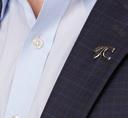



JUSTIN CULP : We must continue to adopt and incorporate new technologies into our loyalty program, including technology to the player portal that makes it easier for customers to access information. Technologies that help an organization that meet their members demands like apps, integrations, online account management, on-demand ordering are important.


JEFF BALDI: Many of the inherent differences between commercial & tribal casinos also extend into loyalty programs. Varying regulatory framework structures dictate what gaming properties can offer, aside from the fact that commercial loyalty programs can be a bit more general. In contrast, tribal properties can feel more localized, lending to a sense of community. Due to this, commercial properties could have more over-arcing loyalty programs with ties to properties they own in other locales which can set the groundwork for motivating a decision of where players want to go simply by knowing they’re under the same umbrella as their favorite property in their area. Additionally, commercial properties are focused on broad geographic appeal, while the funnel for a tribal property is typically narrower.
PAUL GORDON: They really shouldn’t differ in respect to the name brands that are offered. Everyone wants top brands such as Apple, Blueair, Coach, Cuisinart, Solo Stove, SMEG, Tissot, Viking and Victorinox, to name just a few. The differentiation is in the geography of the casino and the economic makeup of the player base. And always use the marketing strategy of segmentation and concentration. One size rarely fits all in any program so segment your players and concentrate the rewards based on what works best for the player. Rymax has over 450 brands and over 20,000 SKU’s and we try to bring on approximately 10-15 new brands each year to stay on top of trends and to keep the programs fresh and unique. Keep the program exciting and the players will be very loyal.
ERICA TESSIER : Commercial and Tribal player loyalty programs can be similar in many ways. Typically, they will all offer some type of “points” as a reward for gaming and other on property spend. However, in my experience, tribal casino loyalty programs tend to create a more personal program. This is what occurs at Mohegan Sun, where Mohegan Tribal culture is infused into the status levels and program names, and guest service is paramount!
MATTHEW MORGAN : For many of our guests, the Tribal casino in their town is an entertainment hub that they visit regularly. They may visit a property’s steakhouse for special occasions, attend a concert or comedy show on the weekends, or stop off after work to meet friends for happy hour. These folks know they’ll be back at the property multiple times per month or quarter and so they may use their loyalty program to accrue points for something special. Maybe it’s a big concert or hotel nights for a staycation. Commercial gaming locations tend to be out of town, or even out of state for most people. That changes the value proposition of a loyalty program. Rewards might be more immediate and quicker to earn, since they are likely to be utilized on the same trip, within hours or a day of earning them.
JUSTIN CULP : At Choctaw Casinos & Resorts, we focus on creating a Rewards Club that our players utilize and find beneficial at all levels. We want our guests to be rewarded for whatever they enjoy at one of our properties, including gaming, dining, hotel stays, shopping, pool cabana rentals, and spa visits. We also want to provide them opportunities to attend major events, travel, and participate in special activations on our property or with our brand partners.
Gaming America reviews products from AGS, Bluberi, Incredible Technologies, SuzoHapp, Interblock and CasinoTrac.
Step into a World Where Tradition Meets Modernity with AGS’s Revel™ Cabinet. Embark on an extraordinary gaming experience where tradition seamlessly converges with innovation with AGS’s groundbreaking Revel™ cabinet. This cutting-edge creation redefines the gaming landscape by combining the nostalgic charm of classic gaming with the sophistication of modern technology.
AGS, a global leader in gaming solutions, has introduced the Revel™ cabinet as the latest addition to its impressive portfolio. Drawing inspiration from gaming’s golden age, Revel™ features traditional stepper elements such as a mechanical arm-pull, reminiscent of vintage slot machines. However, it doesn’t stop there – Revel™ incorporates advanced features like gamestate controlled LED lights and a vivid 4K high definition video paytable display, providing players with an immersive and visually stunning gaming experience.
Revel™ offers an extensive library of thrilling three-reel games, including classics like Triple Treasure™, Liberty Diamond™, Flaming Reels™ and Diamond Reels™. Each game is meticulously designed to cater to players of all preferences, from those seeking the nostalgia of traditional gaming to those craving the excitement of modern features.
What sets Revel™ apart is its versatility and strategic value for casino operators. With its diverse game selection and seamless integration capabilities, Revel™ enables operators to enhance player engagement and drive revenue growth on their gaming floors.
As AGS continues to lead the







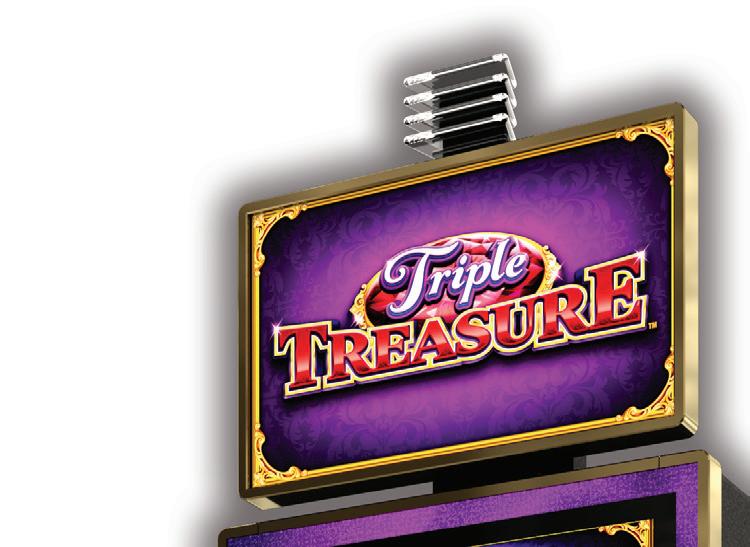


industry in innovation, Revel™ serves as a testament to the company’s commitment to excellence and progress. With its sleek design, captivating features, and proven performance, Revel™ is poised to revolutionize the gaming landscape and elevate the overall gaming experience for players and operators alike.





testament to the company’s commitment design, captivating features, and Revel™ revolutionize the gaming landscape and meets modernity with AGS’s Revel™ you can integrate this groundbreaking gaming establishment and stay ahead
Step into a world where tradition meets modernity with AGS’s Revel™ cabinet. Contact AGS today to discover how you can integrate this groundbreaking cabinet and its exciting games into your gaming establishment and stay ahead of the competition!




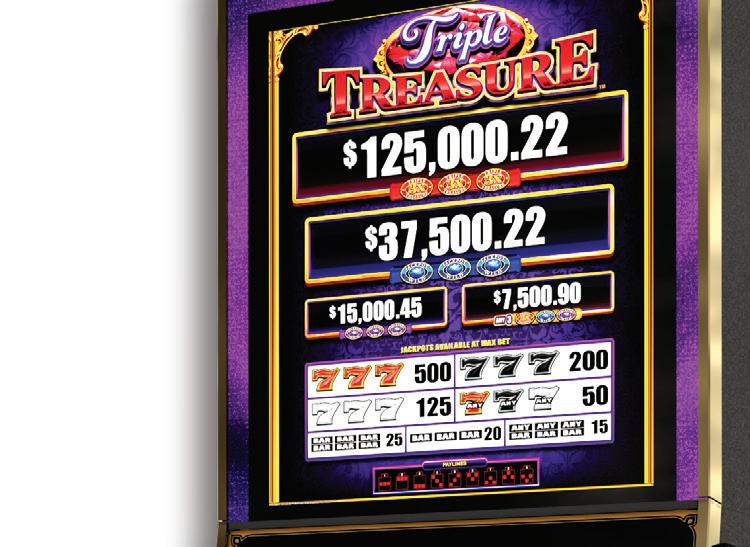





Bluberi’s Devil’s Lock slot game lives up to its name, and is a fun and highly engaging title. The company describes this slot as a “devilishly good game will have players lining up to win prizes so good they are almost bad.”
Well said.
The game is comprised of 15 independent reels that contain several progresses and credit prize amounts. The center square of the reels is where the wild devil symbol will sometimes appear, which unlocks any credit amounts and progressive jackpots that drop down during gameplay.
The graphics on this game are charming and light-hearted, as well as colorful and visually appealing.
Devil’s Lock also features two smiling pigs above the reels that grow each time the devil symbol appears. The devil throws coins into the pigs, which can trigger either six or 12 free games as one of the bonuses.
This is a game that will keep you entertained, despite the sometimes-













endless number of dead spins that are common with higher volatility slot games. Nevertheless, the rewards are worth riding out the storm. Once a player lands the devil symbol or pops one of the pigs for the free games feature, the payout is incredible.




During the free games bonus, the devil symbol is locked in place. Depending on what progressive amounts and prizes land on the other 14 reels, the bonus win can add up fast.







Players can take home wins regardless of their bet amount. Even at a 66-credit wager, which is the minimum on this game, walking away with a great payout can happen more often than expected.

regardless of how large the bet as well,
Players can snag a bonus opportunity regardless of how large the bet as well, a huge plus for this game.




In addition to Devil’s Lock, Bluberi also offers signature games like Highborn Dragon, American Stars 3R5L and Blazing 1199 Link.













Packing the heat for players... Riches rise like lava in Stack Up Pays Island Riches™ from Incredible Technologies, with the newest slot innovation debuting on the sleek Prism Element™ cabinet with island heat.
243 Ways to Win are full of tropical symbols, but players are keeping their eyes peeled for surfboards that help players achieve even bigger prizes. Two golden surfboards on reels one and three in combination with any colored surfboard on reel five will initiate its respective Free Spins Bonus.
Stacked above the reels are Mini, Minor, Major, Grand and Mega Free Spins, each keeping count of the awarded random expansions. Each number corresponds with the number of added reel expansions during the Free Spins.
Free Spins are triggered by surfboards
but can also be awarded with a pick bonus. Sun symbols are wild on the reels, then fly up to the volcano above. The mighty volcano grows and may rumble to spew lava and initiate a pick bonus. Players choose glowing lava rocks to reveal Free Spin bonuses. Once three of a kind are matched, that’s when fun begins and big money can be won.
Each Free Spin event awards 10 free spins. The number of random expands is dependent on just how many surfboards
were collected throughout play and how long the meter has grown. Each bonus has a must-hit-by limit for growing anticipation.
Up to 350 expansions may be awarded and there are more than 100,000 ways to win on each spin. During a free spin, the reels shift and change as a random number of expansions are applied to each spin. Dynamic reels continue to shift until the final spin and all expansions have been used.
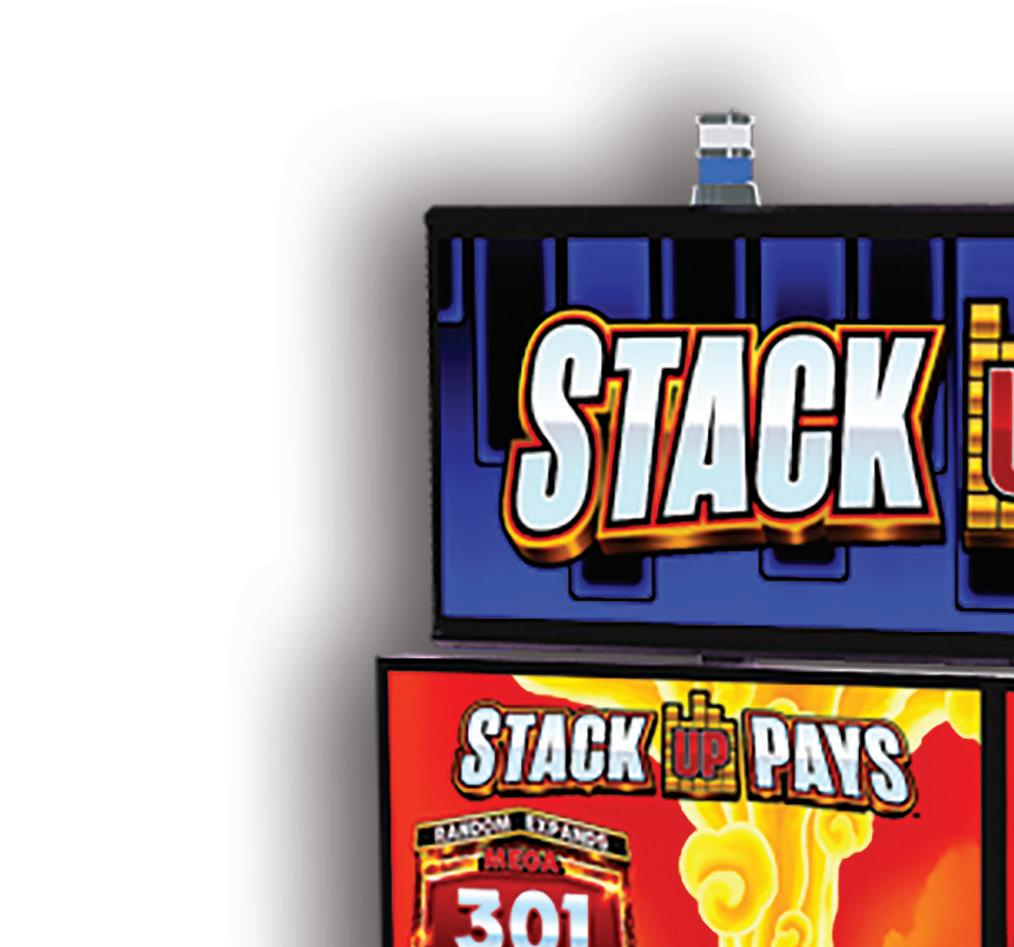


















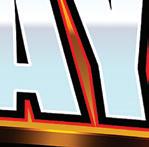







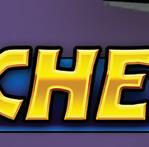
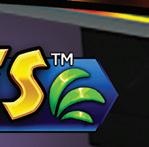


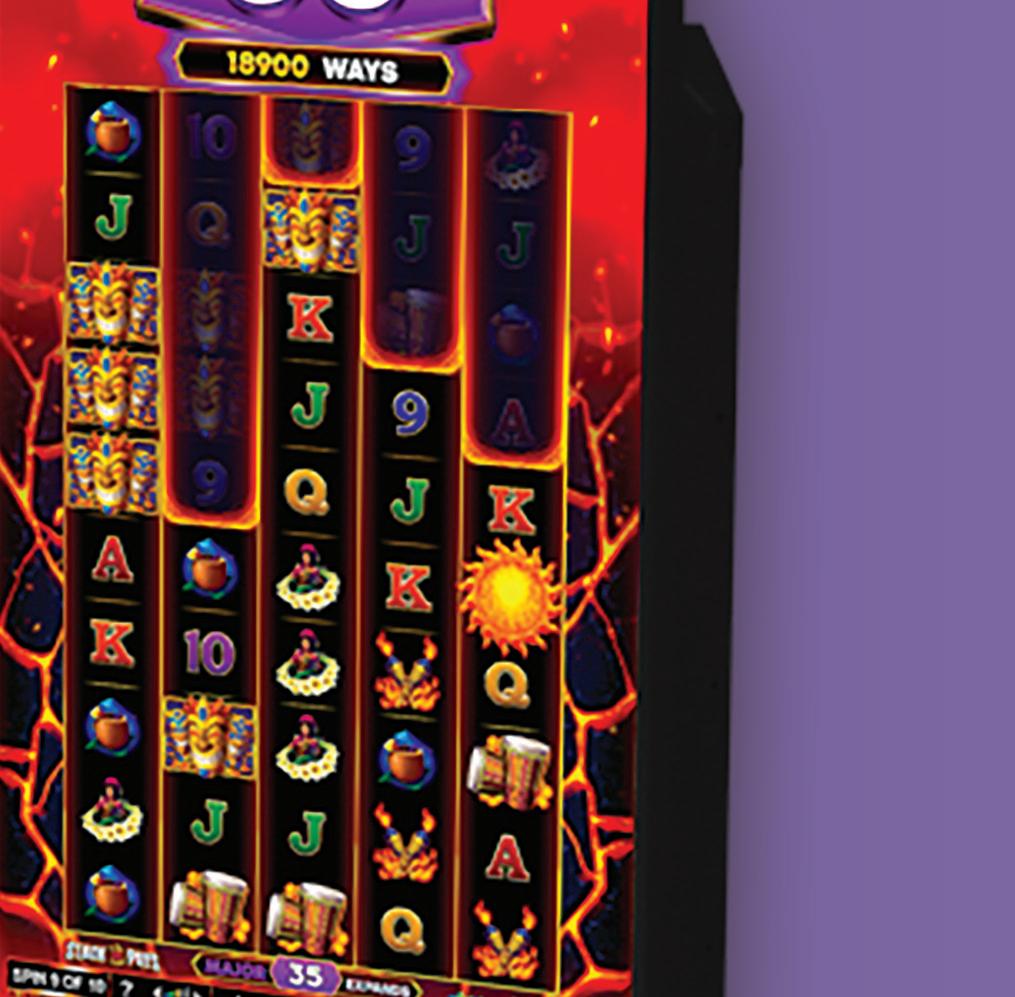
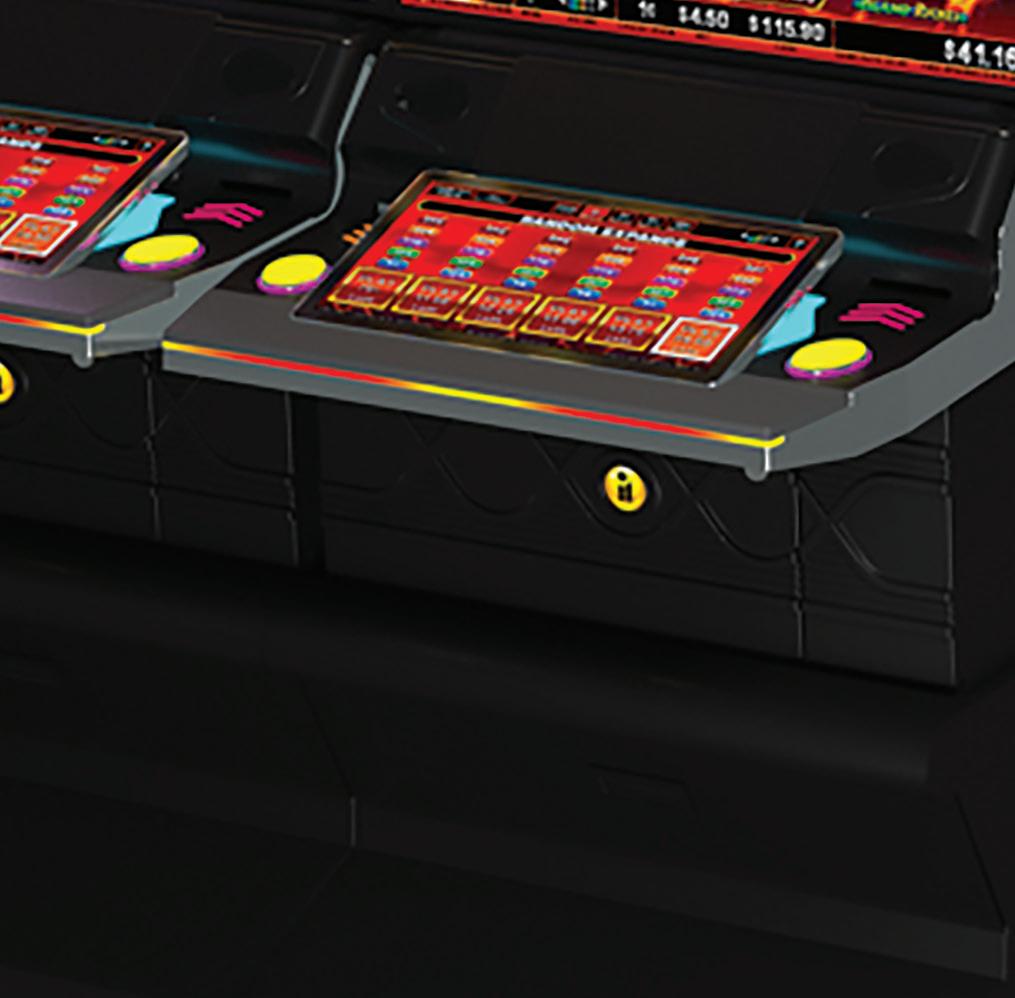


Introducing the new Instant Ticket Vending Machine, the ITV-180. The ITV-180 is an innovative vending machine that revolutionizes the lottery experience. Featuring a user-friendly interface, players can easily select their desired lottery game and purchase tickets all in one place, making the process quick and hassle-free. This efficient solution
boosts ticket sales, eliminates the need for additional staff, and allows easy, self-service ticket purchases at your customers' convenience.
The ITV-180 offers flexibility with its modular design, accommodating up to 15 dispensers with large ticket trays, maximizing sales potential. Equipped with a 32” full HD Elo touch monitor for product selection and advertising, the ITV-
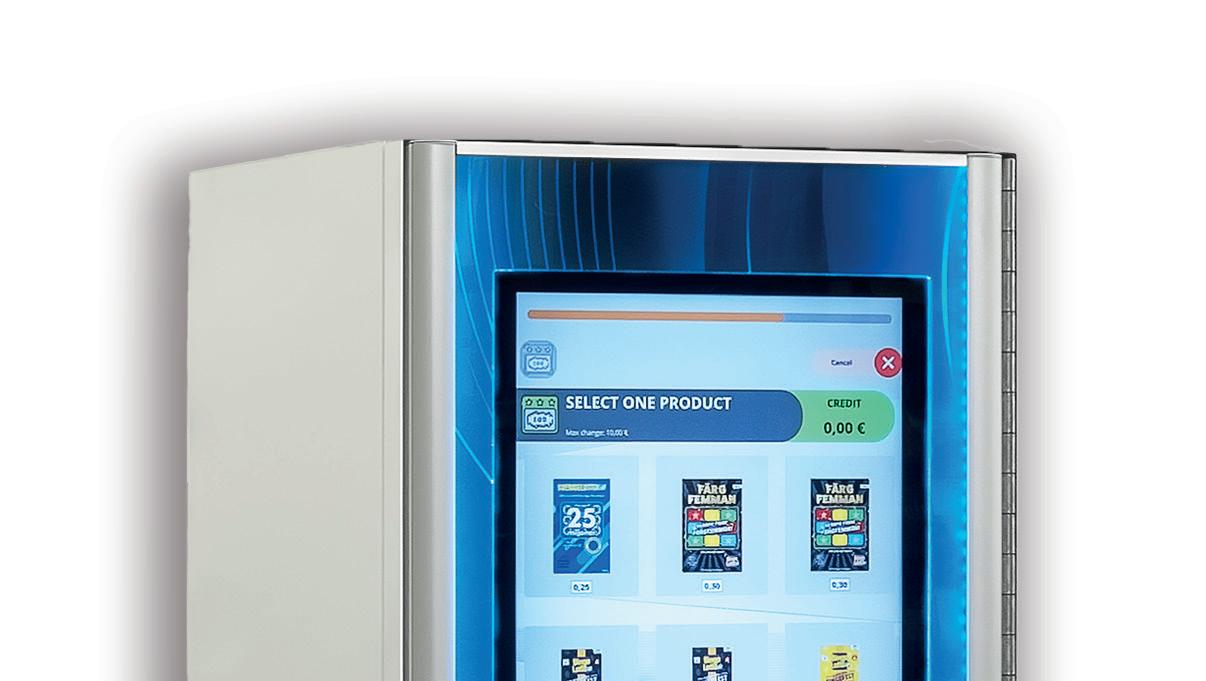

180 engages end users with promos and videos, enhancing the gaming experience.
The ITV-180 has a reinforced steel cabinet equipped with 11-point locking bar, custom lock with Four Eyes Principle and secure hinges over full length of the door making it a high-security option allowing for service outside of staffed hours.
Additionally, the machine offers remote management features that allow operators to monitor inventory, track sales data, receive stock status alerts, and manage settings and software from a centralized location (PC, tablet, mobile phone), streamlining operations and increasing profitability.
Lastly, the ITV-180 accepts various payment methods, including coins, banknotes, contactless, and mobile payments (MDB protocol only), catering to all customer preferences.
Sell your scratch tickets effortlessly with the new ITV-180!





In a new way of playing Craps, Interblock has released its first product since purchasing Aruze Gaming’s table game assets, featuring a shoot-to-win style game that includes best in-class technology and represents the culmination of the two companies coming together. The new machine proudly signals a working collaboration between Interblock’s Tokyo development center and the US/European development center to create the enhanced gaming experience.
The shoot-to-win Craps machine leaves space for multiple users and features three dice in the center that are timed to be bounced into the air by a center control. Shining lights and brightly lit signs sit atop the dice and provide odds and betting information for each user seated.
Many are familiar with shoot-to-win style games as machines of this format have been featured in Las Vegas and around the country for more than 15 years. While many shoot-to-win games are still standing albeit being held up by duct tape and glue, Interblock has revitalized how Craps can be played.
The slotsuiteTM was created and is based upon the partnership between CasinoTrac and TransAct for the coupon feature the game provides for any player. The operator can select a number of options, including

The technology around Interblock’s shoot-to-win game takes everything that was best in-class from Aruze and made the product so successful over the years including the bash button, the sounds, the graphics, as well as the look and feel.
Interblock is extremely excited for the release of this shoot-to-win Craps game and plans on this being one of many new releases between Interblock and Aruze.






















included within it. The player will still have


Interblock took over the game, but the dice and resets itself under BMM and


What Interblock incorporated, however, was a voice-coil patented technology that allows the game to go dramatically faster without actually reducing the player clock included within it. The player will still have the same amount of time allotted before Interblock took over the game, but the machine is able to now recognize the dice and resets itself under BMM and GLI member approval.















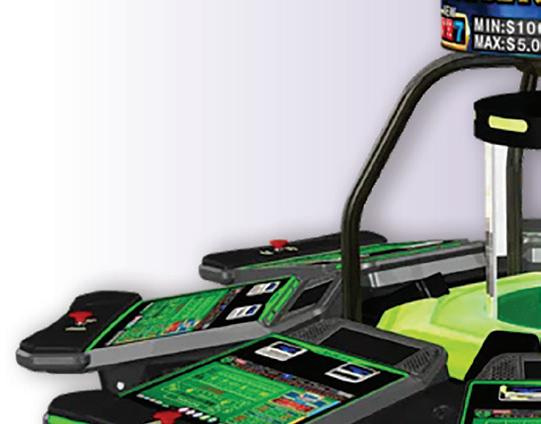





The machine can now and profitability while providing
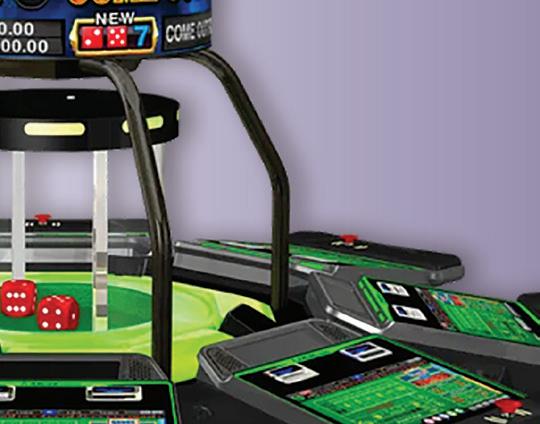
quality of graphics, video cards, sounds
The machine can now generate more handle and profitability for the casino while providing the same look and feel that players are used to while increasing the quality of graphics, video cards, sounds and systems.





a basic redemption and rewards feature for users to choose a symbol or character from, such as a dog dressed in a hot dog costume.
The rewards are based upon the operator’s games alone, so players can use the credit they build while playing different slotsuiteTM machines as real playing money. For customers that do not have a mobile application, customers receive their own pin to redeem rewards and trade in at slotsuiteTM machines to unlock different characters.
The machine will produce a ticket stating the amount of credit the customer has accumulated while playing the game, so it can be easily transferred into any number of slotsuiteTM games the operator makes available.
Customers can also be rewarded while they are playing the game, with random jackpots that are manufactured to appear as often as the operator chooses. When cashing out a large sum, the machine is
capable of delivering a W2G directly into the customer’s hands, automatically reducing the standard tax amount depending on area and providing a direct means for easy cash out with no hassle.
The slotsuiteTM also offers a mystery progressive bonus to carded players, a select offering meant to incentivize being included in the operator’s rewards program. Any credit won from the mystery bonus is available to use on any machine located on the casino floor, but cannot be cashed out for real money.
Players who are using the machines can also receive pre-filled out drawing tickets for prizes including barrel drawings for giveaways. The machine will simply print out the paper containing the customer’s needed information that can be deposited straight into the barrel drawing. These offerings were unheard of before it was made possible by the integration of CasinoTrac with TransAct.

